












The Rt Hon The Lord Patten of Barnes, CH, PC, Chancellor of the University
Jan Royall, Baroness Royall of Blaisdon, PC, MA, (BA Lond)
Lois McNay, MA, (PhD Cantab), Professor of the Theory of Politics and Tutor in Politics
Prateek Agrawal, (BTech Indian Institute of Technology Bombay, PhD University of Maryland), Associate Professor of Physics and Tutor in Physics
Daniel Anthony, MA, (PhD Lond), Professor of Experimental Neuropathology and Tutor in Medicine
Jonathan Burton, MA, (PhD Cantab), Professor of Organic Chemistry and Tutor in Chemistry
Dan Ciubotaru, (BSc, MA Babes-Bolyai, PhD Cornell), The Diana Brown Fellow and Tutor in Pure Mathematics; Professor of Mathematics
Robert Davies, DPhil (BSc Toronto, MSc Ottowa, Associate Professor of Statistics and Tutor in Statistics
Julie Dickson, MA, DPhil, (LLB Glasgow), Professor of Legal Philosophy and Tutor in Law
Samantha Dieckmann, (PhD University of Sydney), Associate Professor in Music and Tutor in Music
Beate Dignas, MA, DPhil, (Staatsexamen Münster), Associate Professor of Ancient History, Barbara Craig Fellow and Tutor in Ancient History
Christopher Hare, BCL, (Dip d’Etudes Jurid Poitiers, MA Cantab, LLM Harvard), Associate Professor of Law and Tutor in Law
Michael Hayward, MA, DPhil, Professor of Inorganic Chemistry and Tutor in Chemistry
Renier van der Hoorn, (BSc, MSc Leiden, PhD Wageningen), Professor of Plant Sciences and Tutor in Plant Sciences (until Jan. 2022)
Michelle Jackson, (BSc, PhD Lond), Associate Professor of Zoology and Tutor in Biology
Simon Robert Kemp, BA, MPhil, (PhD Cantab), Associate Professor in French and Tutor in French
James Kirkpatrick, BPhil, DPhil, (BA Reading, MLitt St Andrews), Philosophy
Robin Klemm, (PhD Max Planck Institute of Molecular Cell Biology and Genetics and TU Dresden), Associate Professor in Medicine and Tutor in Medicine
Margaryta Klymak, (MSc Edin, PhD TCD), Tutor in Economics
Renaud Lambiotte, (PhD ULB Brussels), Professor of Networks and Nonlinear Systems and Tutor in Mathematics
Louise Mycock, (BA Durh, MA, PhD Manc), Associate Professor of Linguistics and Tutor in Linguistics
Karen Nielsen, (Cand mag, Cand philol Trondheim, MA, PhD Cornell), Associate Professor of Philosophy and Tutor in Philosophy
Natalia Nowakowska, MA, DPhil, Professor of Early Modern History and Tutor in History
Patricia Owens, (BSc Bristol, MPhil Cantab, PhD Aberystwyth), Associate Professor of International Relations and Tutor in International Relations
Vivien Parmentier, (PhD Observatoire de la Côte d'Azur), Associate Professor in Physical Climate Science and Tutor in Physics
Luke Pitcher, MA, MSt, DPhil, (PGCert Durh), Associate Professor of Classics and Tutor in Classics
Charlotte Potts, DPhil, (BA Victoria University of Wellington, MA UCL), FSA, Sybille Haynes Associate Professor of Etruscan and Italic Archaeology and Art, Katherine and Leonard Woolley Fellow in Classical Archaeology and Tutor in Classical Archaeology
Elena Seiradake, (PhD Heidelberg), Professor of Molecular Biology and Tutor in Biochemistry
Francesca Southerden, BA, MSt, DPhil, Associate Professor of Italian and Tutor in Italian Charles Spence, MA, (PhD Cantab), Professor of Experimental Psychology and Tutor in Experimental Psychology
Fiona Stafford, MA, MPhil, DPhil, (BA Leic), FRSE, FBA, DLitt (Leic), Professor of English Language and Literature, Tutor in English Literature
Richard Stone, MA, DPhil, FREng, FSAE, FIMechE, Professor of Engineering Science, Tutor in Engineering Science
Almut Maria Vera Suerbaum, MA, (Dr phil, Staatsexamen, Münster), Associate Professor of German and Tutor in German
Annie Sutherland, MA, DPhil, (MA Cantab), Associate Professor in Old and Middle English, Rosemary Woolf Fellow and Tutor in English
Benjamin John Thompson, MA, DPhil, (MA, PhD Cantab), FRHistS, Associate Professor of Medieval History and Tutor in History and Associate Head (Education), Humanities Division
Damian Tyler, (MSci, PhD Nott), Professor of Physiological Metabolism
Philip West, MA, (PhD Cantab), Associate Professor of English, Times Fellow and Tutor in English
Faridah Zaman, (BA, MPhil, PhD Cantab), Associate Professor in History and Tutor in History
Noa Zilberman, MA (BSc, MSc, PhD Tel Aviv), Associate Professor of Engineering Science, Tutor in Engineering Science
Aditi Lahiri, CBE, (PhD Brown, MA, PhD Calcutta), Professor of Linguistics
Stephen Roberts, MA, DPhil, FREng, FIET, FRSS, MIOP, RAEng-Man Professor of Machine Learning
Steven Simon, MA, (PhD Harvard), Professor of Theoretical and Condensed Matter Physics
Rajesh Thakker, MA, DM, (MA, MD Cantab), FRS, FRCP, FRCPath, FMedSci, May Professor of Medicine
Matthew John Andrew Wood, MA, DPhil, (MB, ChB Cape Town), FMedSci, Professor of Neuroscience
Sara Kalim, MA Director of Development
Anne Manuel, MA, (LLB Reading, MA, MSc, PhD Bristol), Librarian, Archivist and Head of Information Services and Keeper of College Pictures
Andrew Parker, MA, (BA Liverpool), ACMA, Treasurer
Stephen Rayner, MA, (PhD Durh), FRAS, MInstP, Senior Tutor, Tutor for Graduates and Tutor for Admissions
Anthony Bell, (BA, MA, PhD Cantab), Emeritus Professor in Physics
Tony Bell, (MA, PhD Cantab), CPhys, FRAS, FRS, MinstP
Amalia Coldea, (MA, PhD Cluj-Napoca)
Stephanie Dalley, MA, (MA Cantab, PhD London), FSA
Colin Espie, (BSc, MAppSci, PhD, DSc(Med) Glas), FBPsS, CPsychol, Professor of Behavioural Sleep Medicine
Sir Marc Feldmann, AC, BSc(Med), MB BS, PhD, MD(Hon), DMSc(Hon), FAA, FMedSci, FRCP, FRCPath, FRS, Professor of Cellular Immunology
Manuele Gragnolati, MA, (Laurea in Lettere Classiche, Pavia, PhD Columbia, DEA Paris)
Sarah Gurr, MA, (BSc, PhD London, ARCS, DIC), Professor of Molecular Plant Pathology
Renier van der Hoorn, (BSc, MSc Leiden, PhD Wageningen)
John Ingram, (BSc KCL, MSc R'dg, PhD Wageningen NL)
Joanna Innes, MA, (MA Cantab)
Muhammad Kassim Javaid, (BMedSci, MBBS, PhD London), MRCP
Patricia Kingori, (BA MSc RHUL, MSc UCL, PhD LSHTM, Professor of Global Health Ethics
Radhika Khosla, MPhys, (PhD Chicago), Research Director
Philip Kreager, DPhil
Simon Kyle, (MA, PhD Glasgow)
Catherine Mary MacRobert, MA, DPhil
Boris Motik, (MSc Zagreb, PhD Karlsruhe), Professor of Computer Science
Frans Plank, (Statsexamen Munich, MLitt Edin, MA Regensburg, DPhil Hanover)
Philip Poole, (BSc, PhD Murdoch)
Mason Porter, MA, (BS Caltech, MS PhD Cornell)
Franklyn Prochaska, (PhD Northwestern University), FRHS
Tessa Rajak, MA, DPhil, FSA
Owen Rees, MA, (PhD Cantab), ARCO, Professor of Music
Alex David Rogers, (BSc, PhD Liv)
Roman Walczak, MA, (MSc Warsaw, Dr rer nat Heidelberg)
Premila Webster, MBE, DPhil, FHEA, FFPH
Jennifer Welsh, MA, DPhil (BA Saskatchewan)
Stephen Weatherill, MA, (MA Cantab, MSc Edinburgh), Jacques Delors Professor of European Law
Pelagia Goulimari (BA, MPhil Aristotelian University, MA University Essex, DPhil Southampton)
Jim Harris (BA, MA, PhD Cortauld, Dip. RADA)
Dan Rogers, (MEng, PhD Imp Lond)
Justin Sirignano, (BSE Princeton, PhD Stanford),
Charlotte Albury, DPhil, (MSc Durh), Medicine
Joel Alves, (BSc Biology Porto, MBGE CIBIO Institute, PhD Cantab), Archaeology
Georgia Drew, (BSc Exeter, PhD Liverpool), Biology
Susan Dunning, (BA Seattle Pacific, MA, PhD Toronto), Classics
Lisa Forsberg, (MA PhD KCL), Philosophy
Jesus Aguirre Gutierrez, (Msc, PhD Amsterdam), Biological sciences
Robert Hein, (BS Jacobs University Bremen), DPhil, Chemistry
Hussam Hussein, (BA, MA Trieste, MA College of Europe, Warsaw, PhD UEA), International Relations
Kinga Kozminska, DPhil, (MA Warsaw, MA Chicago), Linguistics
Gowri Kurup, (B.Tech Indian Institute of Technology, PhD Cornell, Physics
Huiqi Lu, (BEng Jilin, PhD Sussex), Engineering
Yvonne Lu, (BEng Jilin, PhD Sussex), International Relations
Ferenc Mozes, DPhil, (BEng, MSc Petru Maior University), Medicine
Eoghan Mulholland, (MEng, PhD Queen's Belf), Medicine
Shobhana Nagraj, MRCS, MRCGP, (BSc UCL, MPhil Cantab, MBBS UCL), DPhil, SFHEA, Medicine
Belinda Nicholson, (Bsc, MSc Melbours, DPhil University of Southern Queensland), Physics
Thomas Nicol, (BBMedSci, PhD), MRSB, Medicine
Hadrien Oliveri, (MEng Grenoble Institute of Technology, PhD Montpellier), Mathematics
Godelinde Perk, (BA, BSc, MA, PhD), English
Gitalee Sarker, (MBBS Dhaka, MSc Bonn, Dr sc ETH Zurich), Medicine
Ludovic Scyboz, (BSc, MSc ETH Zurich, PhD MPP Munich), Physics
George Ward, (BA MSc UCL, MS PhD MIT Sloan School of Management), Economics
Lewis Webb, (BMedSci Flinders, BA, MPhil Adelaide, PhD Gothenburg), Philosophy
Fay Probert , (BSc, MSc, PhD Warwick), Chemistry
Margaret Adams, MA, DPhil
Pauline Adams, MA, BLitt, (Dipl Lib Lond)
Lesley Brown, BPhil, MA
Marian Ellina Stamp Dawkins, CBE, MA DPhil, FRS
Katherine Duncan-Jones, MA, BLitt, FRSL
Karin Erdmann, MA, (Dr rer nat Giessen)
Barbara Fitzgerald Harvey, CBE, MA, BLitt, FBA, FRHistS
Judith Heyer, MA, (PhD London)
Carole Jordan, DBE, MA, (PhD London), FRS
Julianne Mott Jack, MA
Norma MacManaway, MA, (MA, MPhil Dublin, DEA Paris)
Helen Morton, MA, (MSc Boston, MA Cantab)
Hilary Ockendon, MA, DPhil, (Hon DSc Southampton)
Josephine Peach, BSc, MA, DPhil
Stephen Guy Pulman, MA, (MA, PhD Essex), FBA
Frances Julia Stewart, MA, DPhil, FAcSS
Adrianne Tooke, MA, (BA London, PhD Cantab)
Angela Vincent, MA, MB, BS, (MSc London), FRS, FMedSci
Lord Powell of Bayswater, KCMG, OBE
Lady Margaret Elliott, MBE, MA
Sir Geoffrey Leigh
Rober t Ng
Mr Gavin Ralston, MA
Wafic Rida Saïd
Kevin Scollan, MA
Susan Scollan, MA
Gopal Subramanium, SA, Bencher (Hon.), Gray’s Inn
Baroness Williams of Crosby (d. 12 April 2021) CH, PC, MA
Kiri Jeanette Te Kanawa, DBE, AC ONZ, Hon DMus
Carolyn Emma Kirkby, DBE, OBE, MA, Hon DMus, (Hon DMus Bath, Hon DLitt Salf), FGSM
Joyce Maire Reynolds, MA, (Hon DLitt Newcastle-uponTyne), FBA
Hazel Mary Fox (Lady Fox), CMG, QC, MA
Averil Millicent Cameron, DBE, MA, DLitt (PhD London), FBA, FSA
Baroness O’Neill of Bengarve, CH, CBE, MA Hon DCL, (PhD Harvard), FBA, Hon FRS, FMedSci
Kay Elizabeth Davies, DBE, CBE, MA, DPhil, (Hon DSc Victoria Canada), FRS, FMedSci
Baroness Jay of Paddington, PC, BA
Irangani Manel Abeysekera, MA
Paula Pimlott Brownlee, MA, DPhil
Julia Stretton Higgins, DBE, CBE, MA, DPhil, Hon DSc, FRS, CChem, FRSC, CEng, FIM, FREng
Doreen Elizabeth Boyce, MA, (PhD Pittsburgh)
Ruth Hilary Finnegan, OBE, MA, BLitt, DPhil, FBA
Janet Margaret Bately, CBE, MA, FBA
Margaret Kenyon (Mrs), MA
Clara Elizabeth Mary Freeman (Mrs), OBE, MA
Jenny Glusker, MA, DPhil
Ann Rosamund Oakley, MA, (PhD London, Hon DLitt Salford), AcSS
Baroness Lucy Neville-Rolfe, DBE, CMG, MA
Judith Ann Kathleen Howard, CBE, DPhil, (BSc Bristol), FRS
Victoria Glendinning, CBE, MA
Nicola Ralston, BA
Antonia Byatt, DBE, CBE, BA, FRSL
Anna Laura Momigliano Lepschy, MA, BLitt
Rosalind Mary Marsden, DCMG, MA, DPhil
Harriet Maunsell, OBE, MA
Hilary Spurling, CBE, BA
Catherine Royle, MA MScEcon (Wales)
Nancy Rothwell, DBE, BSc, DS, (PhD London), FMedSci, FRS
Baroness Shriti Vadera, PC, BA
Elizabeth Mary Keegan, DBE, MA
Carole Hillenbrand, CBE, OBE, BA, (BA Cantab, PhD Edinburgh), FBA, FRSE, FRAS, FRHistS
Angela McLean, DBE, BA, (MA Berkeley, PhD Lond), FRS
Michele Moody-Adams, BA, (BA Wellesley, PhD Harvard)
Judith Parker, DBE, QC, MA
Esther Rantzen, DBE, CBE, MA
Caroline Barron, OBE, MA, (PhD London), FRHistS
Fiona Caldicott (d. 15 Feb. 2021), DBE, BM BCh MA, (MD (Hon) Birm, DSc (Hon) Warwick), FRCPsych, FRCP, FRCPI, FRCGP, FMedSci
Emma Rothschild, CMG, MA
Venkatraman Ramakrishnan, Kt, (BSc Baroda, PhD Ohio), Nobel Laureate, FRS (President)
Tessa Ross, CBE, BA
Joanna Haigh, CBE, MA, DPhil, FRS, FRMetS
Akua Kuenyehia, BCL, (LLB University of Ghana)
Baroness Wolf of Dulwich, CBE, BA, MPhil
Lorna Margaret Hutson, BA, DPhil, FBA
Caroline Mary Series, BA, (PhD Harvard), FRS
Sacha Romanovitch, BA
Alice Prochaska, MA, DPhil, FRHistS
Margaret Casely-Hayford, CBE, MA
Dame Elan Closs Stephens, DBE, BA
June Raine, DBE, CBE, BA MSc BMBCh, MRCP
Farhana Yamin, BA
Julia Yeomans, BA, DPhil
Clair Wills, BA DPhil Oxf, HMRIA
Christophe Barnabe, (MA Paris-Sorbonne, PhD Bern, French
Ayla Barutchu, (BSc, DPhil La Trobe), Psychology
Alice Blackwood, A.B University of Chicago, MPhil DPhil Oxf, History
Achas Burin, BCL, DPhil, (LLB Leeds), Law
Esther Cavett, (BMus Kings College, MSc Birmingham City University , PhD Kings College, LRAM Royal Academy of Music), ARAM, Music
Oliver Clarkson, (BA Leeds, MA PhD Durham), English
Yvonne Couch, MSc, DPhil, Medicine
Andrew Elliott, MPhil, DPhil, (BA Cantab), Economics
Rachel Exley, (BSc Leeds, PhD Paris XI), Medicine
Leo Fang, B.A.Sc in Mechanical Engineering University of British Columbia, DPhil Oxf, Engineering Science
David Harris, MBiochem, DPhil, Biochemistry
Tom Hickling, MEng Durham, DPhil Oxf, Engineering Science
Matthew Hosty, BA Mst DPhil Classics
Sarah Jones, BA MA King's College London, DPhil Oxf French
Holly Kennard, BA MPhil DPhil Linguistics
Quentin Miller, DPhil, (BMath Waterloo, Canada), Computer Science
Ain Neuhaus, MA, DPhil, BMBCh, Medicine
Kamel El Omari, (BSc Paris VII, MSc, PhD Paris VI), Biochemistry
Naomi Petela, MBioChem, DPhil, Biochemistry
Xon de Ros, DPhil, (Fellow of LMH), Spanish
Nisha Singh, MSc, DPhil, Medicine
Graeme Smith, MPhys, DPhil, Physics
Kerstin Timm, (PhD Cantab), Medicine
Timothy Walker, MA, Horti Praefectus, Plant Sciences
Susan Anthony, (MBBS London), MRCP, FRCR, Medicine
Richard Ashdowne, MA, DPhil, Linguistics
Vilma de Gasperin, DPhil, (Laurea Padua), Modern Languages
Pippa Byrne, BA MSt DPhil, History
Dean Sheppard, MChem, DPhil, Chemistry
Linus Ubl, Mst, DPhil, (BA, MA, Eichstätt-Ingolstdt), German
Hanne Eckhoff, (Cand Mag, Cand Philol, Doctor artium, Oslo), Russian
Helen Ashdown, BMBCh, (MA Cantab), MRCP, MRCPG, DCH PGDip (Health Res), Janet Vaughan Tutor in Clinical Medicine
Helen Johnson Lektor
Ole Hinz
Katy Fifield, (BA Durham, PhD Newcastle), Academic Registrar
Joanne Ockwell, (BA, MA University of Gloucester), Welfare support and Policy Officer
Saphire Richards, Graduate and Tutorial Officer
Victoria Wilson, Scholarships and Funding Officer
Hannah Pack , (MA Cantab, PGCE Oxford Brookes), Access and Outreach Officer
Claire Cockcroft, MA (PhD Cantab), Director of the Thatcher Scholarship Programme
Jessica Mannix, (MA St Andrews), Campaign Director
Vinita Govindarajan, (BA
Christ University Bangalore, PGDip Asian College of Journalism), MSc, Partnerships and Communications Manager
Radhika Khosla, MPhys, (PhD Chicago), Research Director
Susan Elizabeth Purver, MA, Assistant Librarian
Matthew Roper, MA, (MA Durham), Library Assistant
Clare Finch, Deputy Development Director (Operations)
Niamh Walshe, (BA, MSc Edinburgh), Regular Giving and Alumni Relations Executive
Matt Phipps, (BA York, MPhil Cantab), Communications Manager
Liz Cooke, MA, Joint Secretary to the Alumni Association
Lisa Gygax, MA, Joint Secretary to the Alumni Association
Dave Simpson, Catering and Conference Manager
Elaine Boorman, College Accountant IT
Chris Bamber, Systems Manager
Mark Ealey, Lodge Manager
Will Dawes, (PGDip RAM, BMus (Hons) Edinburgh), Director of Chapel Music
Utkarsh Sharma, (MSc Warwick, MFin Cantab, BEng Surrey), Chapel Director
Steve Johnson, Estates Manager
Sophie Walwin, (Kew Dip), Head Gardener
Further details of all administrative staff are to be found on the College website.
Two years ago in this Report, I wondered whether we would look back on 2020 as a turning point. I asked whether the disruption and uncertainty of life under Covid-19 might even offer us a choice: between a world of deepening economic inequality, polarised politics and climate insecurity or a world realigned along the principles of equality, dignity and freedom. Today, the choice of which path we’ll follow still seems to hang in the balance. Perhaps it always does. Certainly, the crises have come thick and fast since 2020, darkening the geopolitical landscape with new war and fresh assaults on our democratic values, soaring inflation, mass migration and, looming above it all, the catastrophic toll of the climate crisis.
And yet, despite the many troubles in the world, I still believe in the answer I gave to that question back in 2020. Back then, I said that our community’s undiminished energy and creativity had convinced me that, here at Somerville at least, the choice of which path to follow was clear. We were ready to help make a better world.
We are still ready to make that better world. In the fight against climate change, for example, our entire community is working hard to make Somerville a home for sustainable thinking, solutions and practice.
Our Oxford India Centre for Sustainable Development saw its scholar Guarav Dubey launch the Climate Change Research Portal, a world-first platform aggregating information on climate change research around the world. Following a summer of extreme heatwaves, the OICSD’s Research Director, Professor Radhika Khosla, was one of the leading voices in The New York Times, among others, calling on governments to adopt sustainable strategies for coping with extreme heat. The OICSD also curated its second OpenAg Symposium, welcoming panellists from around the world to propose policies and interventions that will put agriculture at the heart of our path to Net Zero.
The path to Net Zero requires both small steps and big ideas. One of those small steps was the replacement of our Maintenance team’s vehicle with an electric van (pictured above). Big ideas, meanwhile, came with the appointment of Adriana Mordente as our new Sustainability Officer. A current member of the MCR reading for a PhD in freshwater ecology, Adriana is now managing the sustainability audit that will generate the campaigns and policies that transform our sustainability culture over the next five years.
Of course, sustainability is just one of the issues galvanising the Somerville community. We are fortunate, therefore, that our academics have once again led the way this year in creating knowledge with the power both to tackle today’s issues and inspire today’s students.
Somerville researchers led by Professor Daniel Anthony and Dr Fay Probert have developed a powerful new diagnostic
test that has gained national media attention for its capacity to detect both cancer and MS. In response to the war in Ukraine, our Janet Vaughan Tutor in Clinical Medicine, Dr Helen Ashdown, established supply lines to doctors on the frontline to whom she is now sending vital surgical supplies.
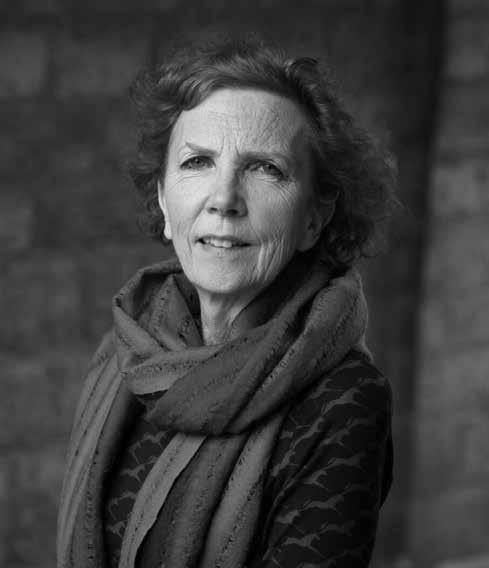
Our Senior Research Fellow Patricia Kingori this year became the youngest Black woman to attain a full professorship in Oxford and Cambridge history, in recognition of her outstanding work on global health ethics. Another trailblazer is our Fellow in International Relations, Professor Patricia Owens, who this year published International Women’s Thought, the first ever anthology to collect and thereby codify the contributions made by women in the field of International Relations.
We also welcomed the publication of Openness in Medieval Europe, the fourth volume by the Somerville Medievalist Research Group. Conceived as a defiant response to the cultural foreclosures of Brexit and featuring fifteen essays by Somerville academics past and present, the book offers eloquent proof not only of the openness of medieval culture, but the power of the humanities to create community.
Perhaps the most dynamic example of openness at Somerville is the unprecedented work we are doing as a College of Sanctuary. This year Somerville will host five fullyfunded Sanctuary Scholars, including one undergraduate from Afghanistan, two students from Ukraine, one from Ethiopia and one from Somalia.
Our Sanctuary scholars are able to be here through the titanic efforts of our Development team and Scholarships Officer –but also thanks to the amazing support you have extended towards this cause. I would like to offer my heartfelt thanks to everyone who supported sanctuary at Somerville, not least those North American alumni and friends who responded so generously to the urgent, somewhat ad hoc call to support a Ukrainian postgraduate at Somerville which I made during my recent US trip. You can learn more about our exciting work as a College of Sanctuary at our forthcoming Sanctuary Celebration this autumn (check the website for details).
Doubtless inspired by their tutors, our students seem hardly to have stopped this year. Our Finalists have achieved phenomenal academic success, securing 23 Archibald Jackson Prizes (awarded to graduate finalists who achieve a Distinction) and 47 Mary Somerville Prizes (awarded to undergraduate finalists who achieve a First or Distinction).
Of particular note is Althea Sovani (2018, Classics and Oriental Studies), who received the Gaisford Prize for Greek Verse, the Comparative Philology Prize, the Boden Prize for an outstanding performance in Sanskrit and the Craven Prize for second-best performance across Classics and Joint Honours degrees. Also of note is Chloe Green (2019, Music), who secured the Gibbs Prize for best overall performance in Music.
Aside from our Finalists, many other students continue to illustrate Somerville’s academic edge. Twenty nine Somervillians secured College Prizes for achieving a First or Distinction in the First Public Examination. Notably, Ingrid Yu (2020, Experimental Psychology) received the Susan Mary Rouse Memorial Prize for best overall performance in the Introduction to Psychology Prelim, the Weiskrantz Prize for best performance in Psychology Part I and the Braddick Prize for best overall performance in PPL Prelims. Our second year medics also turned in a stand-out performance, with Alisha Kenward (2020, Medicine) coming top in the year for Psychology, Sarafina Otis
(2020, Medicine) securing proxime accessit for best overall performance and the cohort as a whole achieving 3 distinctions, 8 merits and 2 commendations.
From the MCR, I was delighted to see our doctoral candidate and Stipendiary Lecturer Tom Hickling (2018, DPhil Engineering) win the 2020 ASME Gas Turbine Award, and fellow doctoral student and current Mary De Zouche Scholar Aavika Dhanda (2019, DPhil Zoology) receive the Rufford Foundation’s Rufford Small Grant. The latter will support Aavika’s research into the effects of land use changes on forest bird communities in the eastern Himalayas.
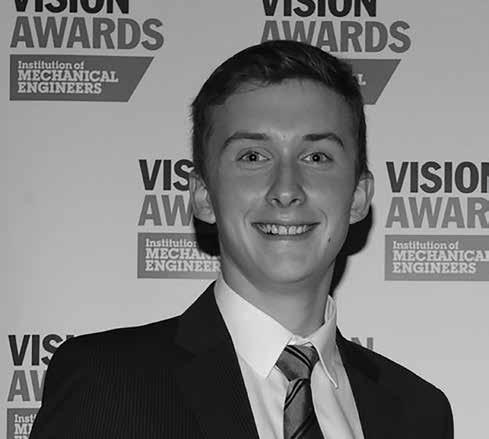
As always, however, academic success is only half the story. Outside exam schools, our students have seemed determined to storm the barricades of both sport and the arts. They won Drama Cuppers, took silver in Dancesport Cuppers, captained the women’s fencing team to victory at the Varsity and put on a fantastic show at Summer VIIIs, where the Women’s 2nd boat came joint-second.
In music, the Somerville College Choir spent several of the hottest days of the year pretending it was snowing as they recorded their forthcoming Christmas album, The Dawn of Grace. In a nice Somerville twist, the new album – generously enabled by Virginia Ross (1966, MSt International Studies) and available to buy for Christmas – will exclusively feature works by female composers.
The Somerville Music Society also went from strength to strength this year, including the curation of a moving evening of music for Ukraine. Not wishing to miss out on the limelight, the Somerville Drama Society ended the year with a production of Twelfth Night in the Arcadian settings of Waterperry Gardens.
Of final note is the fact that student mental health has clearly become an urgent priority following the pandemic. In response, both our JCR and MCR committees have stepped up to support the excellent work being done by our Welfare Officer, College
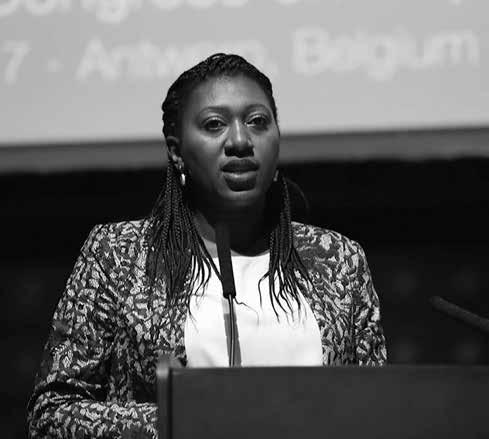 PROFESSOR PATRICIA KINGORI
PROFESSOR PATRICIA KINGORI
Nurse and Decanal team. Students have led wellbeing initiatives such as knitting and gaming nights, pizza-making sessions and llamas on the quad, as well as reintroducing the joint-sports day with Girton College and staging our first Humanities vs Science quiz in The Terrace (a roaring success). They also let their hair down at a beautifully organised Somerville-Jesus Ball featuring Ferris wheels, live music, circus performers and gourmet food trucks.
Our Development team has spent the past year strengthening Somerville on several key fronts, in addition to its work on sanctuary.
Over two days in March, we were privileged to welcome Professor Brenda Stevenson, the inaugural Hillary Rodham Clinton Chair in Women's History to our Foundation Day lecture, followed by Dame June Raine and Dame Kate Bingham to our Spring Meeting. After these eloquent proofs of Oxford’s seminal role in world affairs, our Foundation Fellow and former Solicitor General of India, Gopal Subramanium confirmed his intention to honour the Bingham family, who have long-standing connections at Oxford, by creating the Bingham Law Scholarship at Somerville. The scholarship will enable an outstanding law undergraduate to progress onto postgraduate study at Somerville without financial anxiety.
No conversation about Somerville’s impact on the world stage would be complete without mentioning Shirley Williams. This lion of British politics, the greatest Prime Minister we never had, was also a committed internationalist and academic who helped draft the constitutions of Ukraine and South Africa. Following her death in 2021, there seemed no better way to honour Shirley’s contribution than through a Fellowship in Politics, to ensure that the subject she loved will always be taught at Somerville.
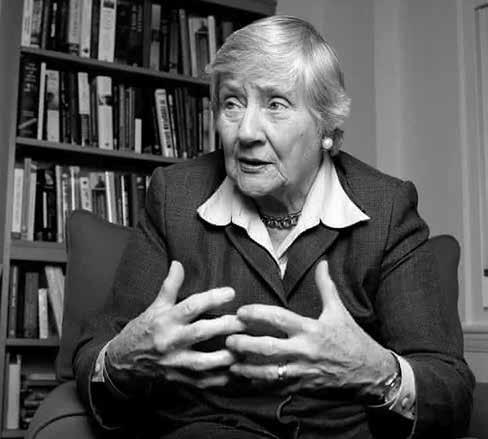
Clearly, our appeal struck a deep chord with the Somerville community, because I am delighted to confirm that we are
now in a position to name our current Vice-Principal, Professor Lois McNay, as the new Shirley Williams Fellow in Politics. The £450,000 required to endow this Fellowship was met through generous contributions from Westminster and Somerville, as well as an exciting crowdfunding campaign that saw us raise the final £50,000 in just ten days – with special thanks to Nicola Ralston (History, 1974) and Omar Davis (PPE, 1997) for agreeing to match the first £25,000 donated to this project. Last but by no means least, I come to our alumni community – always a cause for great happiness. As you will know, we returned to a calendar of primarily in-person events this year. It was delightful to spend time with so many of you at these events, across everything from the 1970-71 reunion to the Supporters’ Lunch, Christmas Carol Service, Spring Meeting and our largest ever Gaudy in June.
So many memories remain from these occasions – from dancing at the Gaudy to seeing our Emeritus Fellow Lesley Brown mobbed by adoring former tutees at a lecture on the Somerville quartet of philosophers. We sipped Pimms by the river ahead of the Boat Club’s Centenary Dinner –which enabled us to raise vital funds for a new Women’s Boat – but also found time for remembrance at our annual Commemoration Service.
Next year I hope to see even more of you, as well as to take forward more of the projects which I and the College perceive as so important – mental resilience, inclusivity, sustainability and academic excellence, all four pillars of our new RISE project. I also hope to replicate my trip to North America with similar visits to India, Berlin and Asia, knowing that Somervillians are nothing if not international!
Until then, I very much hope you enjoy this record of our College’s activities.
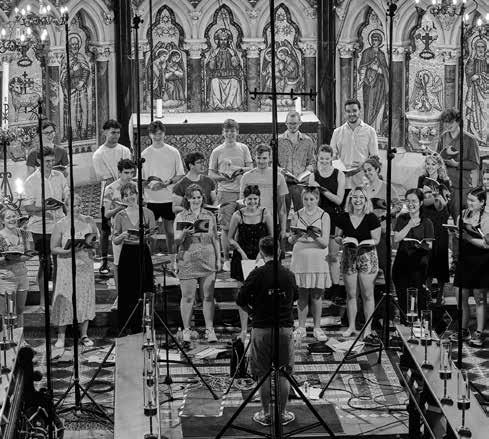 JAN ROYALL , Baroness Royall of Blaisdon, Principal of Somerville
SOMERVILLE COLLEGE CHOIR DURING RECORDING SESSIONS FOR THEIR UPCOMING CHRISTMAS ALBUM, DAWN OF GRACE
SHIRLEY WILLIAMS IN 2015
JAN ROYALL , Baroness Royall of Blaisdon, Principal of Somerville
SOMERVILLE COLLEGE CHOIR DURING RECORDING SESSIONS FOR THEIR UPCOMING CHRISTMAS ALBUM, DAWN OF GRACE
SHIRLEY WILLIAMS IN 2015
Happily, we have seen the impact of Covid recede significantly this year. We have still had some of our students and staff reporting positive tests but the more relaxed rules about selfisolation and the success of the vaccination programme have meant that the disruption to college life has been much less significant. For the most part we have returned to in-person teaching and we have been able to restore our weekly guest nights during term time, which have proved more popular than ever – not least because our new kitchen facilities have allowed our catering staff to excel themselves!
Financially, our conference income has begun to recover and this year will be about two-thirds of pre-pandemic levels. Our shop rents are beginning to return to normal, although there are still some significant arrears to be managed with our smaller tenants. In broad terms we expect to break even this year, with the impact of the reduced income and inflationary cost pressures in recent months being offset by a very strong year with unrestricted donations.
We haven’t yet had any year-end valuations, but early indications are that our endowment may have lost a little value compared to last year which, if confirmed, would be a good result given all the uncertainty about rising inflation and the economic outlook.
Work over the summer includes fitting acoustic panels to the Dining Hall ceiling, which we very much hope will make eating in Hall less of an assault on the ears, and we have almost completed the refurbishment of the two flats above 26 and 27 Little Clarendon Street – the property that we bought last year. We are also increasingly turning our attention to what we need to do to our buildings in forthcoming years to help with the move to being carbon neutral.
Finally, we heard last month that the Catherine Hughes Building has won a RIBA award for the South of England, which we think reflects both the quality of the design and the construction.
Looking forward, we expect our finances to come under some pressure. The impact of rising inflation, especially in utilities, will feed through to our costs very quickly but our income will not rise in the same way – partly because UK tuition fees are frozen but also because we want to be as supportive as we can be with our students in setting rent and food prices for next year.
ANDREW PARKER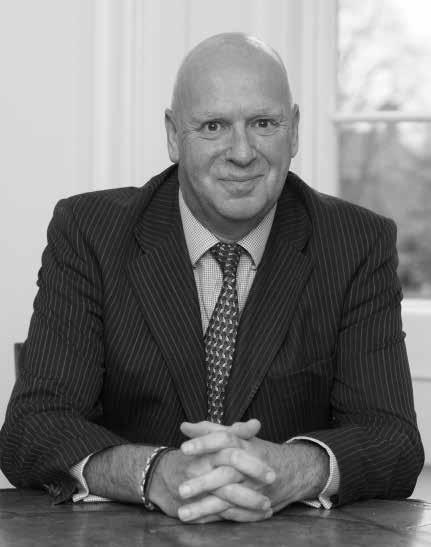 ANDREW PARKER, COLLEGE TREASURER
Picture by John Cairns
ANDREW PARKER, COLLEGE TREASURER
Picture by John Cairns
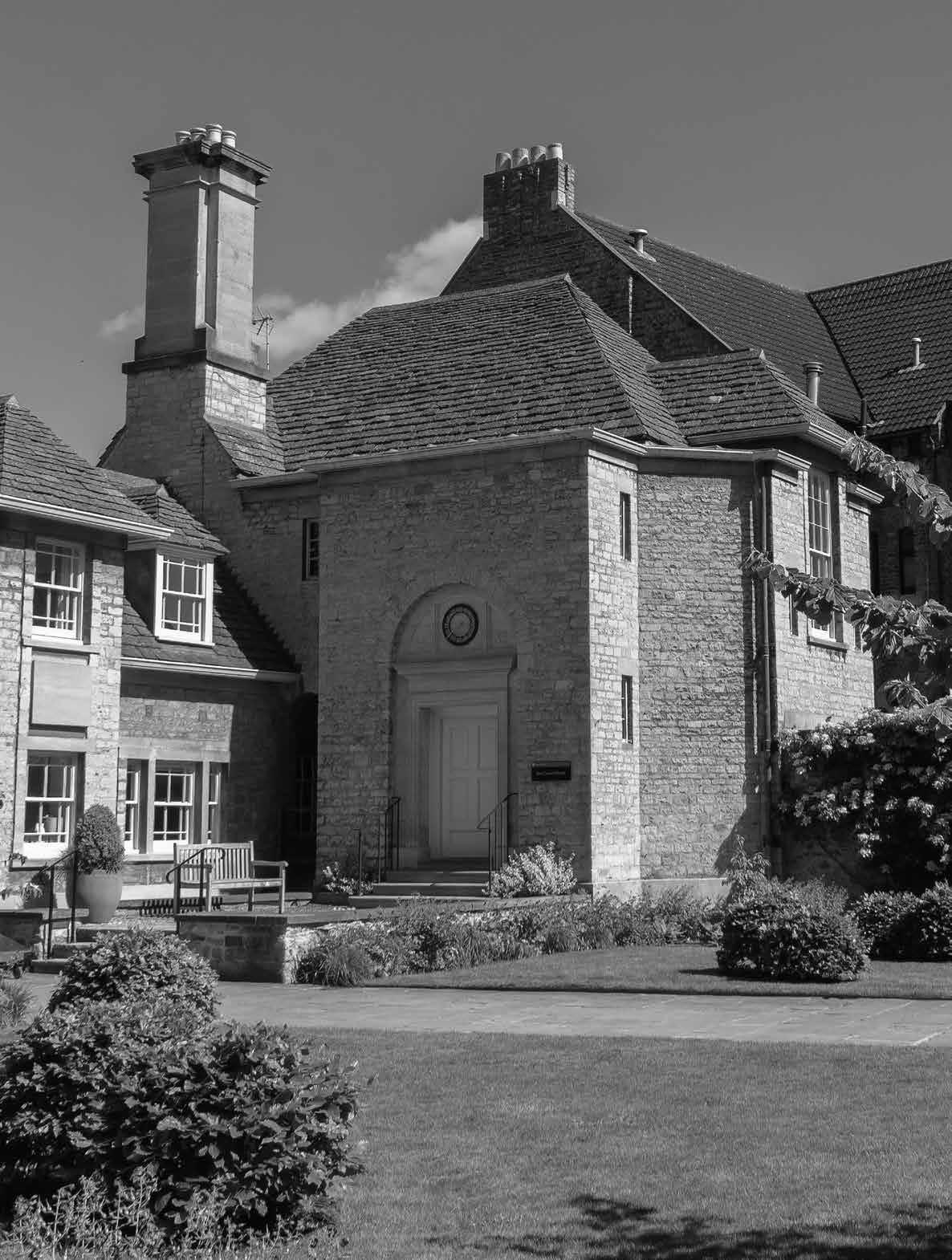
Dan Rogers is a Principal Investigator on a recent grant on energy storage for grids: https://gow.epsrc.ukri.org/ NGBOViewGrant.aspx?GrantRef=EP/ W02764X/1. He and his collaborators in Engineering Science have done a lot of work in the interesting field of Transcranial Magnetic Stimulation technology (zapping the brain with large magnetic fields: see https:// en.wikipedia.org/wiki/Transcranial_ magnetic_stimulation for an intro). They have built a new type of TMS machine in their laboratory that is now being used in human neuroscience trials. They have also filed two patents in the field and are actively working with industry to commercialise their ideas. Dan has a new DPhil student joining his group (https:// eng.ox.ac.uk/power-electronicsgroup/) in October, funded by a local Oxford tech company (YASA motors: https://www.yasa.com/; as an aside, YASA were spun out of the Department of Engineering Science and have been a real success story).
Professor Steve Roberts continues to work at the interface of theory and application of large-scale machine learning. Over the last year he has focused on healthcare applications (particularly for Covid detection and analysis), ecology (further extending work looking at the detection and analysis of malarial mosquitoes), finance (with continued emphasis on risk averse trading models and better quantification of uncertainty in real systems) and physical systems (using deep learning methods to discover underlying dynamics from complex systems). Over the past year Steve has stepped down as director of the Oxford-Man Institute of Quantitative Finance and taken up his role as Associate Head of Department (Research).
Professor Richard Stone’s final two DPhil students have completed this year. One is now working for NASA and the other is now employed as a postdoc in the Department by Felix Leach (one of his former research students). Various
projects will continue after Richard’s retirement, and he is expecting to maintain some involvement with both the Stirling engine work and the EPSRC/ Jaguar Land Rover/Siemens prosperity partnership. Richard is also reviewing projects for the ERC and this will mean a week in Brussels in October.
Professor Noa Zilberman’s group is exploring ways to build scalable, sustainable and resilient digital infrastructure. Their research this year ranged from mechanisms for developing trustworthy AI systems (published in Science Magazine), to making the Internet carbon-intelligent (a collaboration with Intel, Yale and others). Noa’s team developed a new low-cost platform called P4Pi (pronounced ‘puppy’) for teaching how the Internet works and making computing more accessible. P4Pi is already used for undergraduate teaching at Oxford, and if funding is secured will also be used for outreach activities at schools. This year, Noa was chosen to join the DCMS College of Experts and the UKRI NERC Digital Research and Infrastructure strategy group, in addition to her membership of the UKRI EPSRC e-Infrastructure Strategic Advisory Team. She was also elected to the Open Networking Foundation P4 Technical Steering Team and co-chaired the USENIX 2022 Annual Technical Conference.
Pippa Byrne has been working on manuscripts about health and heresy in southern Italy and Sicily in the twelfth and thirteenth centuries. She has enjoyed mapping the hot springs of the medieval gulf of Naples (sadly a research trip is out of the question as most of these sites are now underwater). She is pleased to have managed to attend her first in-person conferences and outreach sessions since 2019.
Natalia Nowakowska was on sabbatical and Lady Carlisle leave in the academic year 2021-22, working on two books
in progress: a study of the Renaissance concept of dynasty, and a new history of the Jagiellonian dynasty (1377-1596). In February 2022, Natalia gave the annual Ilchester Lecture for the Modern Languages Faculty at Oxford. Following the invasion of Ukraine, she gave media interviews on the region’s long-term history, and spoke on an International Relations panel at Cambridge University on Ukraine and her Neighbours
Benjamin Thompson’s role as Associate Head of the Humanities Division was at last able to diversify from Covid fire-fighting, in particular to focus on the new Schwarzman Centre for the Humanities, which will be built next to Somerville on the Radcliffe site. With seven Humanities faculties, a suite of performance-spaces including a concert hall, and other facilities and institutes besides, it opens up significant opportunities both for interdisciplinary collaboration and for connecting academic research to artistic performance. He turned his academic attention to visitations of monasteries, perhaps rather too close to his dayjob of regulating teaching in the ten Humanities faculties.
Faridah Zaman’s year has been full of teaching and admin, and of rediscovering the pleasures of in-person college life. She has had little chance to do much research but has a piece forthcoming in the journal Twentieth Century British History on the subject of British socialism and empire in the early twentieth century.
The Academic year 2021-22 saw Professor Julie Dickson’s new book, Elucidating Law (https:// global.oup.com/academic/ product/elucidating-law9780198727767?cc=gb&lang=en&) published by Oxford University Press. She is delighted with this hard-won achievement and is now working on a short introductory book on the topic of content-independence in
law for Cambridge University Press.
Professor Dickson also continued with her undergraduate and postgraduate teaching in Philosophy of Law and European Union Law. Together with her colleagues she would like to thank Dr Achas Burin, Early Career Lecturer in Law at Somerville, for all she has given the College and its law students over the past four years, and to wish her well in her new permanent post at Oxford Brookes University. With continuing alumni support for which the law school in College is extraordinarily grateful, Somerville hopes to appoint to a new Early Career post in Law in due course.
Professor Stephen Weatherill, one year on from taking early retirement in part as a result of the sheer exhaustion caused by trying to engage with the shapeshifting dishonesty and ignorance of Brexit and its cheerleaders, has not had reason to regret his choice. Rather the reverse. He continues to supervise his existing DPhil students – a source of great joy and pride – and he continues to follow the shaping of EU law, but he also has more time for watching sport and walking. He retains an interest in the implications of the Protocol attached to the EU-UK Withdrawal Agreement which addresses the unique circumstances arising on the island of Ireland, addressed in part while the UK was a member of the EU by the acceptance of common rules on trade regulation by the UK, Ireland and the rest of the EU but jeopardised by Brexit’s commitment to the UK choosing its own divergent path. He wrote ‘Interpreting the Protocol’, pp. 69-79, Chapter 6, in C. McCrudden (ed), The Law and Practice of the Ireland-Northern Ireland Protocol (Cambridge: CUP, 2022). The Protocol’s solution is to place a regulatory and customs border down the Irish Sea, between Great Britain and Northern Ireland, but not only have the architects of this solution – most notably Boris Johnson – refused to admit this was what they agreed, they have even gone so far as openly to deny it. Meanwhile Conservative MPs fall over themselves to squeal about how terrible the Protocol is and how it must be dismantled – even though every single one of them voted for it in Parliament and it exists only in consequence of their support for it. This slack-jawed flight from reality could be funny – if it were not so seriously damaging to the UK’s international reputation. Professor Weatherill
watches in dismay and despair as the government pumps out paperwork which is peppered with falsehoods about what Brexit is and what Brexit can be –see for example ‘Hunting the Benefits of Brexit’, Blogpost on EU Law Analysis, 8 February 2022 (https://eulawanalysis. blogspot.com/2022/02/huntingbenefits-of-brexit.html). He also writes on the development of the UK’s internal market now that the UK has quit the EU’s internal market, which in particular concerns the need to reconcile the desire for unimpeded trade within the UK with the scope for divergent market regulation, in areas previously regulated in common by the EU, by the devolved administrations in Cardiff, Edinburgh and Belfast. ‘Comparative Internal Market Law: the UK and the EU’ (Yearbook of European Law 40 (2021), pp. 431474) seeks to show how and why the UK has selected a market model which is slightly different from that found in the EU, and in particular one that is less tolerant of diversity and local autonomy.
Dr Louise Mycock reports: ‘This year, Somerville’s Linguistics community has continued to forge ahead in the face of the continuing challenges presented by the pandemic. In-person teaching has returned and it has been wonderful for us to meet with each other again or for the first time. Our time together feels even more precious after having to spend so long communicating via our respective screens. With respect to admissions and access activities, as well as taking part in the College’s Open Days, I provided a session at the recent Linguistics course that is part of the UNIQ summer school (https:// www.uniq.ox.ac.uk/linguistics). It was wonderful to welcome young people from across the UK to Oxford and to give individuals with huge potential and enthusiasm the chance to learn more about my subject and what it would be like to study here. My research time this year has been devoted to writing a book comparing and analysing the structure of questions in a variety of unrelated languages, focusing in particular on English, Hungarian, Indonesian, Japanese, and Malay. I will spend the summer completing the manuscript, as well as continuing my research on the history of the pronoun tag construction (“It’s
good, that”) based on data extracted from a corpus which spans from the 13th century to the early 20th century. I have also attended further remote meetings of the research network of which I am a member (Syntax Beyond the Canon: Cutting-edge Studies of Non-Canonical Syntax in English). Our first in-person meeting for over two years will be held in Germany in September. Sadly, our network meeting in Spring 2022, which was scheduled to be held at Somerville, had to be postponed because of the uncertainty surrounding international travel in the early part of 2022. Instead, we will be meeting at Somerville in Spring 2023. This year sees the retirement of Professor Aditi Lahiri CBE FBA MAE, Professor of Linguistics and Fellow of Somerville College. It has been an honour to work alongside her in the Faculty and at Somerville, though this is certainly not goodbye: Professor Lahiri will continue her research work at Oxford after becoming the first Oxford academic to be awarded a third ERC Advanced Investigator Grant. I was a member of the electoral board to appoint Professor Lahiri’s successor, who will be joining Somerville as a Professorial Fellow next year.’
Dan Ciubotaru was on sabbatical from the Maths Institute for half the academic year, postponed from the year before due to Covid. This allowed him to accept two invited visiting professorships (one month each), at Sorbonne-Université de Paris and at Université de Lorraine. These visits led to new collaborations, some unplanned: in Paris, it happened that two American professors in his research area (from Columbia and MIT) were on sabbatical at the same time, and they have started new projects together that he is very happy about and hopes will lead to serious advances. In a different direction, with his DPhil student (Okada) and a postdoctoral fellow (MasonBrown), he wrote two papers in abstract harmonic analysis and Lie theory that generated substantial interest, and they are now working on a sequel. He reported on his research in seminars at Jussieu Paris, Metz, and Michigan-JHU (online), MIT (online), and at a satellite conference for the vICM (online). Okada graduated this summer and secured an excellent three-year postdoc in Singapore at
NUS. Dan had a second DPhil student finishing in June, Xin Zhao, with a nice thesis in algebraic representation theory. In other happy news, our Somerville JRF in Mathematics, Beth Romano, received a permanent lectureship at King’s College London, starting in May. Beth contributed extensively to College Maths teaching and outreach and Dan is really delighted that her research career benefited as well.
Renaud Lambiotte reports: ‘20212022 was great in many ways. We could regain some form of normality, brainstorm on our whiteboards (which is truly essential for mathematicians) and, believe it or not, I finally met in person my second-year PhD students. But it was also nice to discover some of the fruits of the crisis, in particular the publication of my second book in December 2021, Modularity and Dynamics on Complex Networks, finishing with the sentences ‘Most of this book has been written during the Covid-19 pandemics, at a time when lockdowns and school closures transformed our personal and professional life. We are thus particularly indebted to Bram, Charlie, Thyl, and Charlie for the hours they gave us with relative, intermittent silence in these unusual times.’ With the reopening of the College, and the creative interactions that it encourages, I was more than happy to discover that my colleague James Kirkpatrick had found this book lying in the Senior Common Room and wanted to discuss the network structure of Philosophy. Hurray for random encounters.’
Naveed Akbar undertook a fourmonth lab visit to Harvard Medical School where he worked with medical engineers to design a new device to determine the diagnostic potential of extracellular vesicles, which are released into the blood following injury to the heart (Akbar et al. 2022 Cardiovascular Research). This new device may identify patients who need additional therapy following a heart attack to help the heart heal and prevent heart failure.
Professor Elena Seiradake’s research team has focused on a new discovery, revealing that two proteins
found on brain cells during embryonal development (GPC3 and Unc5) work together to help cells navigate to their correct destinations within the brain. The team showed how they form a beautiful sandwich-like shape (‘complex’) as they come together in a formation that includes four of each protein and found that this complex is essential for proper brain development, but it also gets ‘hijacked’ by cancer cells. For example, it is repurposed by neuroblastoma tumour cells as they spread. The discovery of how these proteins work together has paved the way for a better understanding of brain development, which is generally poorly understood, and could lead to new cancer treatments. The work was submitted for publication in the journal Cell (this is the best journal in Elena’s field), and is now undergoing the process of peer review and revision.
Professor Raj Thakker has been awarded the American Society of Bone and Mineral Research (ASBMR) Avioli Founder’s Lecture Award 2021. He has served as President for the Society for Endocrinology (UK) (2019-2022) and Chairman for the ASBMR meeting (2022); he has also been appointed Editor-in Chief for 2023-27 for the Journal of Bone and Mineral Research (JBMR; journal of the ASBMR, USA). He has spoken at seven conferences in Europe and the US, edited three journals, and published numerous peerreviewed articles and reviews; he has also acted as Section Editor for the ‘Parathyroid Gland Calcitropic Hormones and Bone Metabolism’ and ‘Multi System Endocrine Disorders’ sections of DeGroot’s Endocrinology 8th Edition
Simon Kemp reports: ‘It’s been quite a different year for French in Somerville. In important ways we’ve been getting back to normal, with a year of inperson teaching in classes, seminars and tutorials without enforced recourse to teaching through a screen. The teaching itself has had some new faces, though. Dr Sarah Jones, a specialist in nineteenth-century French literature and the topic of health and medicine (including epidemics) has been in charge of French teaching for the year during my three terms of research leave. And
the College’s language teaching too has had to adapt to a post-Brexit world in which our arrangements for speaking and listening practice through an invited lectrice from the Ecole Normale Supérieure in Lyon were no longer viable. With the aid of a very generous, and very timely, donation, we have been able to create a new full-time post of Lecturer in French Language, combining the roles of the lectrice with those of the language instructor. A trial-run single year posting, held by the excellent Christophe Barnabé, was very successful, so we will be making the post a permanent arrangement, offering mentoring and career development in research and teaching to the holder as a springboard for early-career academics in French language, literature and culture. While at least technically on leave, I have been keeping a close eye on all this through the year, while also continuing as Outreach Director for the Modern Languages Faculty and taking on the role of Senior Examiner for the Final Honours School in French for the year. I have nevertheless managed some research around the edges, and am well underway with a monograph project called Reading the Mind, a sequel of sorts to the book Writing the Mind that I published a few years ago. The new book is going to explore ideas on the mind from faith, philosophy, psychoanalysis and science to see what they can offer to literary analysis, and how the same story can look radically different when viewed from these different perspectives. It has a little way to go still, but I’m very much enjoying having the time to get back to writing books.’
Francesca Southerden has spent the year working on several research projects. Her monograph, Dante and Petrarch in the Garden of Language, is forthcoming with Legenda in October 2022, and she is currently writing two articles, which offer readings respectively of a contemporary work by Caroline Bergvall entitled ‘Via’: 48 Dante Variations, and the figure of Narcissus in Petrarch’s lyric poetry. She is also completing an essay, co-authored with Manuele Gragnolati (Paris-Sorbonne; ICI Berlin, Senior Research Fellow, Somerville), on Zanzotto and Dante. She has recently been exploring eco-critical approaches to literature and is looking forward to developing this interest further in the coming months. In April,
she travelled to Fiesole to take part in a workshop on Dante and Performance organised and hosted by Georgetown University. She continues to be an active member of SMRG (the Somerville Medieval Research Group), who recently celebrated the publication of Openness in Medieval Europe, edited by Manuele Gragnolati and Almut Suerbaum (ICI Berlin Press). Francesca has enjoyed teaching students in person again this year, including tutorials on poetry outside in the quad during Trinity term. She was also pleased to meet prospective Modern Languages applicants at the recent Open Day.
Almut Suerbaum reports that between pandemic and the impact of the war on Ukraine, looking after the faculty of Medieval and Modern Languages has at times felt like more than a full-time job. It was wonderful therefore to be able to complete the latest volumes of the Somerville Medieval Research Group: the volume on ‘Temporality’, co-edited with Annie Sutherland, came out in Michaelmas term, and Manuele Gragnolati and Almut collaborated online to complete Openness in Medieval Europe in the spring. It was a particular delight therefore to celebrate the launch in person in June. In March, Almut was elected as a corresponding fellow of the Academy of Sciences, Göttingen, in recognition of her research. Just published: Openness in Medieval Europe, ed. Manuele Gragnolati and Almut Suerbaum, Berlin 2022 (https://press. ici-berlin.org/catalogue/doi/10.37050/ ci-23), and Medieval Temporalities: The Experience of Time in Medieval Europe, ed. Almut Suerbaum and Annie Sutherland, Boydell & Brewer, 2021 (https://boydellandbrewer. com/9781843845775/medievaltemporalities/).
James Ravi Kirkpatrick, who is the new Fixed-Term Fellow in Philosophy, has enjoyed the gradual return to normality, with most teaching returning to inperson. He has just seen his first set of students through from Prelims to Finals with stellar results, each of whom should be very proud of themselves and what they’ve achieved. In terms of research, he has most recently published an article on the meaning of indicative conditionals and epistemic introspection in Mind, as well as an article on the communication and retention of context-sensitive information in Philosophical Perspectives He has continued his collaboration with Professor Joshua Knobe at Yale University; a paper summarising their work is under review. He is starting work on how polarisation within communities can lead to ruptures in how their members understand and communicate with one another, as well as on a new collaborative project with his Trinity College colleague, Dr Christopher Fowles, on narrative.
Lesley Brown gave two named lectures in the summer of 2022, one in person at the British School of Athens (on Aristotle on Self-sufficiency) and one online to the International Plato Symposium held in Athens, Georgia. While staying at the British School of Athens she was able to read the newly-donated diary of Emily Penrose, who was there in 1887 while her father was the first Director, before Emily became a student at and later Principal of Somerville.
Politics Fellow Patricia Owens cocurated a public exhibition, Women’s International Thought (https://www. lse.ac.uk/library/events/exhibitions/ women’s-international-thought), that will run at the London School of Economics library through to 2 September 2022. It coincides with the publication of a new co-edited anthology, Women’s International Thought: Towards a New Canon (Cambridge, 2022).
Professor Charles Spence has published his long-awaited follow-up to Gastrophysics, called Sensehacking: How to Use the Power of your Senses for Happier Healthier Living. Unfortunately, it largely disappeared during the Covid pandemic, though he has been presenting at a few literary festivals (including one organised by Sam Knights (1990), the Shute Literary Festival). Professor Spence was also auctioned off to the highest bidder for a gastrophysics multisensory experiential dinner in College. The event was a great success and the Somerville kitchens managed to pull out all the stops in terms of delicious dinner to help illustrate the science. When not entertaining Somervillians over dinner, he continues to develop his multisensory garden in the cloud forest outside Bogota, Colombia. He is currently trying to grow some miracle fruit from seed, ready for his multisensory experiential dinners in c. 2027! He is also happy to report that a number of the Somerville psychology students have been doing phenomenally well over the last couple of years, and have been hoovering up a rather large proportion of university prizes for outstanding academic performance.
Stephanie Dalley finished two years of advising the National Museum in Oman on the cuneiform component (c. 2,100 BC) of their new galleries. She took part in a documentary and advised for Windfall Films, ‘Lost Cities of the Bible’, for Discovery Channel, broadcast in late 2021, and is now advising for a second film in the same series. She advised the Norwegian National Museum in Oslo on impounded antiquities from a private collection, and has written a paper identifying a supposed stela of Nebuchadnezzar II as a fake. Stephanie also completed three contributions for Festschrifts in honour of three colleagues, one in Changchun (China), one in Israel, and one in the UK. Her book The City of Babylon: A History, c.2000 BC - AD 116, was published in July 2021 by CUP. A lunchtime event for TORCH in Oxford is booked for Wednesday 12 October, with Paul Collins (Ashmolean) and Tom Holland (author).
Joanna Innes and her colleagues completed work on the third volume in their ‘Re-imagining Democracy’ series, Re-imagining Democracy in Latin America and the Caribbean 1780-1870, and submitted the manuscript to OUP. They are now starting work on the fourth and final volume in the series, on central and northern Europe.
As ever, Somerville has a vibrant population of Junior Research Fellows (JRFs), competitively appointed postdoctoral researchers from a wide range of fields. I’m pleased to report that since the relaxation of the pandemic restrictions our JRFs have grabbed the opportunity to form an active community that particularly enjoys getting together for dinner in the Private Dining Room in College every Wednesday. Our JRFs are all doing excellent research covering a number of different fields. What follows are a few highlights drawn from annual reports submitted to the College.
Susan Dunning is a Fulford JRF working in Classics; her research project is ‘Humans As Gods in the Roman World’. She has been awarded a grant from the American Council of Learned Societies and will be their Barrington Foundation Centennial Fellow in Classics this coming year. She looks forward to returning to Somerville from maternity leave this autumn.
Charlotte Albury works in the Nuffield Department of Primary Care Health Sciences (conveniently located next door to Somerville in what used to be the Radcliffe Infirmary outpatients building). Charlotte’s primary focus is on language use and conversational patterns that clinicians can use that are likely to support people who attend weight-loss services. Charlotte is also involved in a new project aiming to develop a new intervention to support type 2 diabetes remission. In addition to this, Charlotte has been working with the Behavioural Insights Team providing methodological advice and training, and with the Wildfowl and Wetlands Trust training their research teams in qualitative methods. Charlotte has recently been awarded ‘Principal Investigator of the Year’ by the Society for Academic Primary Care.
Yvonne Lu works at the Institute of Biomedical Engineering in the Department of Engineering Science. Yvonne’s research focuses on using machine learning to provide engineering solutions to monitor patients with chronic health conditions.
Yvonne has received a three-month grant to employ a PostDoctoral Research Assistant (PDRA) of her own from the Oxford John Fell Fund (£4,600, PI) and a one-year Industrial fund (£10,000, CI) from the Royal Academy of Engineering.
Yvonne is leading a clinical trial at the John Radcliffe Women’s Centre for women with diabetes during their pregnancy.
Yvonne has had two Somerville interns, whom she describes as ‘amazing’, in the summer of 2021. One intern did brilliant work on asthma patient monitoring. A joint paper has been accepted by IEEE Sensors, one of the top journals in this area. Apart from research, she is active in public engagement, outreach events, and enthusiastic in serving our Somerville community. For the past year, Yvonne has been a JRF representative at Somerville’s Governing Body.
Hussam Hussein works in the Department of Politics and International Relations, focusing on analysing possibilities for transboundary resource management in the Jordan and Nile basins. Hussam has also looked at how transboundary
freshwater agreements change over time and the political economy of water scarcity in the Middle East. Hussam has made successful applications for funding from the University’s John Fell Fund and from the Council for British Research in the Levant.
Georgia Drew works in the Zoology Department (soon to combine with the Department of Plant Sciences to form the Department of Biological Sciences). Georgia’s work focuses on the evolution of host-microbe interactions. Georgia’s laboratory experiments explore the relative effectiveness of a model host’s immune response to a pathogen and the protection afforded by a microbial agent. Georgia will soon start a science communication project, which will combine a public biology lecture and art exhibition to highlight all the fantastic things microbes do (from serotonin synthesis to crop growth promotion). The project ‘Unseen workers: the beneficial roles of microbes’ has secured its first chunk of funding (thanks to the British Ecological Society) and will take participants on a visual, acoustic and literary journey through the microbial world.
Joel Alves has been awarded two research grants. The first grant was awarded by the British Academy/Leverhulme Trust and will focus on the use of genetics and archaeology to study the intertwined history of rabbits and ferrets. The second grant was awarded by the Oxford John Fell Fund and aims to investigate the evolution of camouflage in the Australian desert. He has also been a co-author of a publication in The Science of Nature journal (https://link.springer.com/ article/10.1007/s00114-022-01804-x) studying the effect of apex predators on ecosystems, and has had a major first author publication accepted at PNAS studying the biological invasion of Australia by rabbits. He has been leading the team that is building the first Ancient DNA laboratory in Portugal at CIBIO Institute as the result of the European-funded Biopolis project (https://www.biopolis.pt/en/). Finally, he has established a collaboration between Biopolis and one of the major Portuguese newspapers (Público) to create a journalistic project on Environment and Sustainability with a dedicated team of ten journalists (https://www.publico.pt/azul), to improve scientific communication and outreach to the general public.
Shobhana Nagraj works in the Nuffield Department of Medicine, pursuing a range of research interests linked by
design and evaluation of complex interventions to serve the needs of rural populations globally. Shobhana is also investigating healthcare workforce issues. Shobhana is involved in projects relating to preterm birth in India and Indonesia, climate change and health, and childhood malnutrition, as well as supervising students/interns researching task-sharing for healthcare workers in the NHS and a review of healthcare workers in the Pacific Islands.
Ludovic Scyboz works in the Physics Department, modelling the way that fundamental particles interact at high energies with a view to improving the interpretation of data from high energy colliders such as the Large Hadron Collider (LHC) at CERN. Ludovic is a member of the PanScales collaboration and has given a number of invited talks. Whilst some of these have been online, it is a sign of increasing return to normality that he also delivered invited talks in Pisa and Dubrovnik.
Robert Hein reports that the detection of ions – small, charged molecules – is of the utmost importance in a wide
Our 2021/2022 year marked the gradual re-emergence of normality from a tumultuous year of Covid and lockdowns, but was accompanied with tumult all of its own – not least of which was serving my portion of the term of office remotely from Hong Kong!
The beginning of the new executive term saw a mixed set of priorities from the structural to the practical. On the structural side, we had a particular focus on making the MCR more compliant with contemporary data privacy practices, including bringing much of the MCR’s activity within the college’s IT protection and promoting the use of systems that would prevent the copying or retention of materials that should not be retained after a term of office has ended (regardless of whether they would be stored at Mar-a-Lago).
Other large issues were a listening period and application to amend the Travel Grant scheme to better match graduate student schedules, and a major outreach on collaboration with the JCR. On this latter goal, the MCR and JCR were proud to work together on the activities of Refugee Week, as well as on a jointly written proposal for an extended close to Trinity term containing numerous formal dinners and social events to help to enhance the experience of those students who had not got the full Somerville experience over the years of the pandemic. Sadly, for this last activity, however, a resurgence of the dreaded lurgy put paid to the extension plans. Nonetheless, the collaborations produced a close and highly enjoyable working relationship that we hope will be maintained and continued well into the future.
On more practical fronts, the MCR also took the opportunity of a physical return to College to finally implement many refurbishments and enhancements that had been planned
range of technological, environmental and medical scenarios, but remains underdeveloped. To address this challenge, his recent work has focused on the development of a range of electrochemical and optical anion sensors. This includes the development of a novel electrochemical ion-sensing methodology, enabling real-time continuous ion detection under flow (patent pending), as well as more fundamental studies of novel intermolecular interactions for anion recognition and sensing. In addition to these electrochemical detection approaches, his work has successfully explored optical methodologies for the sensing of environmentally relevant anions in water. He further contributed to the development of a novel electrochemical assay for the ultrasensitive detection of disease-relevant biomarkers; some of this work was presented at conferences in Mainz, Germany, and in Visegrad, Hungary, as well as at a Somerville JRF Symposium
DR STEVE RAYNER, Senior Tutorfor many years but had yet to be achieved. The first of these was a much-needed reupholstering of the MCR couches and chairs, with excellent results. Funding for several other projects, including the replacement of the MCR’s non-functional piano, was also authorised. The year also saw the re-opening of the Associate Membership programme after a hiatus, and we were pleased to see so many eager applicants flocking back to the MCR in this capacity. We were also proud to re-initiate the disbursement of the Barbara Craig awards, which had been sorely missed in the previous year.
Unfortunately, working remotely for a community that was very quickly returning to in-person activities meant that the arrangement of the MCR executive proved difficult once the new academic year had started, making it untenable for me to continue while a return to Oxford was at the mercy of Coviddelayed UK visa and ATAS processes. As a result, the MCR was fortunate to have the steady leadership of Shreya Dua for an interim period before the former MCR social secretary Joel Pollatschek was elected to the presidency.
Joel’s contributions to the social life of the MCR were already deeply appreciated during the earlier parts of the year, and in his presidential capacity (amongst his other goals and achievements) he further enhanced an ambitious social calendar for the MCR, with no expense spared.
In all, it was a year with its full complement of challenges and more than its full complement of presidents – but most importantly it was proof positive that, no matter the times, the fundamentals at the heart of the Somerville MCR are unchanging.
JEFFREY MARTIN, Part-time MCR President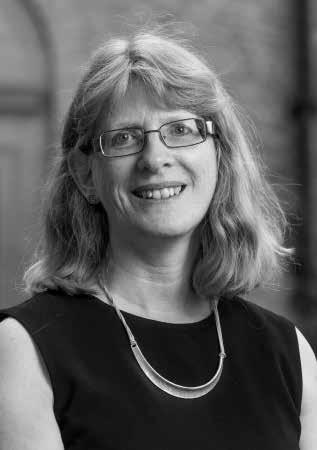
This year has seen the return to normal service in the library with 24-hour opening again available to library users. Inductions were held at the beginning of the year not only for freshers but also for returning second years, many of whom had not been able to access the library at all in their first year. As might be expected, lending at 7,790 items has been well below pre-Covid levels (2018-19, the last ‘normal’ year, was 10,874). More material than ever is available online and students are now used to using online materials rather than physical ones. Time will tell whether this is an ongoing downward trend or whether borrowing will stabilise at around this figure.
The library accessioned 1,870 books in the year (2020-21 1,225) of which 430 were gifts. Early in the
year we received a small but valuable collection of 17th-century books by Sir Paul Rycaut (1629-1700) and his contemporaries from the bequest of Sonia Anderson (1962). We also received, through the auspices of Professor Aditi Lahiri, almost 500 books on linguistics from the library of Professor Mary Dalrymple. Most recently we selected 80 books from the library of Dr Cathy King on classics and ancient history. A gift from Tisa and Stratton Hibbs (2016) of twelve framed woodcuts of the heads of Roman Caesars was received in 2019 and has now been hung on the walls of the ground floor corridor in the library. A big thank you to our donors.
As ever we are very grateful to all those who have given books and papers to the library and a list can be found at the end of this report. Many thanks to all of you!
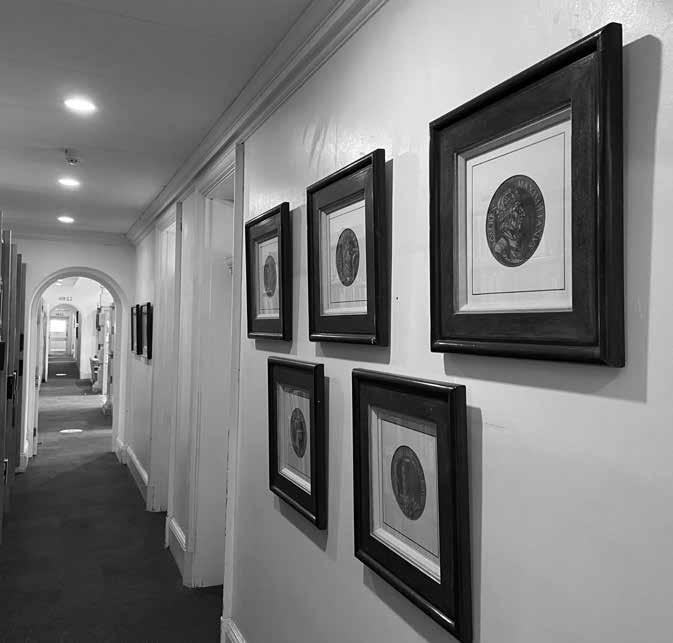
The archives were opened up again to researchers who were all extremely grateful to be able to gain access once more! Donations this year included a substantial number of letters written in the first few years of the 20th century between alumna Helen Mary Smith (1898) and her fiancé at Trinity Cambridge. We are very grateful to the Zvegintzov family for this interesting collection. We were also delighted to receive a collection of memorabilia, lecture notes and correspondence from alumna Honor Godfrey (1968). This was especially welcome as we have little in the archives from that period. If anyone else would like to contribute to our archives from this period (60s and 70s) we would be very grateful for your donations of photographs, posters, programmes etc.
Over the Long Vacation we welcomed two interns to the special collections. Caitlin Kelly, a current student (2020), carried out some valuable work on our collection of facsimile letters by and to Edward Lear (from the research collection of Vivian Noakes). Lucia Qureshi, a recent graduate from Newcastle University, also visited to carry out some research on Women and Sport in the early days of the College. We wish them both luck in their future careers!
Picture by John Cairns DR ANNE MANUELExhibitions in the loggia space included displays on Black History Month and LGBTQ+ History Month, on Sonia Anderson and her antiquarian collection, and on Egyptologist Amelia Edwards, early donor to the College; all of these have taken place alongside a wider variety of Book of the Month exhibitions, some of which tied in with the themes of the other loggia displays. Our display space in Green Hall has showcased: Somervillian French Tutor and Oxford eccentric, Enid Starkie; Somerville Buildings and the names behind them; Henry Pelham, and the watercolours of Amelia Edwards.
The Henry Pelham exhibition coincided with an event organised by Trudy Watt (1971) at Trinity College, Oxford and Somerville in October 2021. Pelham was President of Trinity and a significant figure in the foundation of Somerville, serving on the Council for 28 years, 20 of them as President. The much-postponed event marked the restoration of his family grave in St Sepulchre’s cemetery in Walton Street. https://www.some.ox.ac.uk/news/ henry-francis-pelham-somerville-cofounder-at-175/
The watercolours of Amelia Edwards exhibition celebrated the republication of her most famous book A Thousand Miles Up the Nile, in which she described the various tombs and
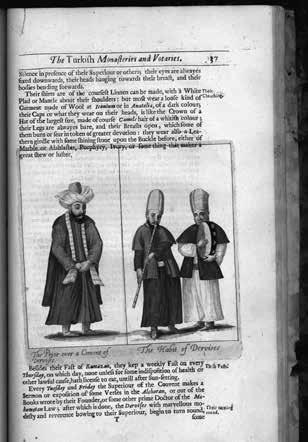
temples she came across as well as the everyday life of Egypt in the late 19th century. The new edition has been published by the Egypt Exploration Society (which Edwards established in 1882) with photographs of her watercolours replacing the engravings of them in the original book. Many of the photographs were taken by our own AV technical services manager Dave Young.
We were very pleased to be able to recommence the John Stuart Mill Library programme this year. Our American partner, Professor Albert Pionke from the University of Alabama, was finally able to visit again in March and May 2022 to continue photographing the marginalia in the books. Our Michaelmas Term Open Day was very well attended and featured Professor Roger Crisp talking about the ten unpublished letters by John Stuart Mill that we had acquired in 2018-19. In March 2022 we held a seminar featuring alumna Dr Helen McCabe (2002) talking about her book John Stuart Mill, Socialist, as well as contributions from Professors Crisp and Pionke, Professor Menaka Philips (University of Tulane) and the Librarian. Our last event of the year was the ever-popular annual John Stuart Mill Lecture – this year delivered by Professor John Skorupski (University
of St Andrews) on the subject of Democracy. Finally we were delighted to welcome Jane Macintyre (1976) who will be helping us catalogue the marginalia in the last few books in the Mill library.
This is my final report as Librarian of Somerville College as I will be retiring at the end of the Long Vacation. It has been a huge privilege to look after the fantastic collections at Somerville and I have loved every minute of it! Highlights? The Great War Roadshow of 2014, the development of the John Stuart Mill programme, and of course meeting HRH The Prince of Wales! My heartfelt thanks go to Sue Purver, Matthew Roper, Kate O’Donnell and Jane Robinson, who have supported me so ably over the years and my very best wishes go to my successor, Sarah Butler, who comes to us from Bader International Study Centre (BICT) which is the UK arm of Queens University, Kingston, Ontario, based at Herstmonceux Castle in Sussex. Sarah has headed up the Learning, Information and Communication Resource centre there.
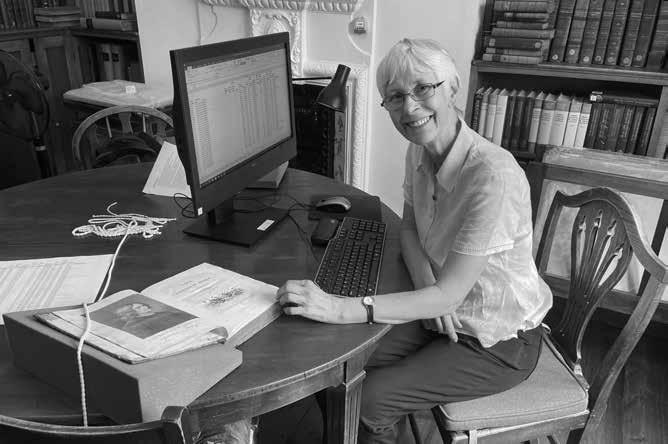 JANE MACINTYRE
PAGE FROM PAUL RYCAULT’S THE PRESENT STATE OF THE OTTOMAN EMPIRE (1667)
JANE MACINTYRE
PAGE FROM PAUL RYCAULT’S THE PRESENT STATE OF THE OTTOMAN EMPIRE (1667)
Satoko Aizawa (Classics, 2014)
Sonia Anderson (History, 1962)
Linda Appleby (Jones, PPE, 1975)*
Angelika Arend (Manyoni, DPhil Mod. & Med. Languages, 1977)*
Helen Brock (Hughes, Lit. Hum., 1956)
Ann Buxton (Boggis-Rolfe, Modern Languages, 1971)
Jamie Chen (Law with European Law, 2018)
Gillian Clark (Metford, Lit. Hum., 1964)*
Margaret Cone (Beckham, Sanskrit, 1964)*
Clare Mac Cumhaill*
Ruth Finnegan (Murray, Lit. Hum., 1952)*
David Frydrych (DPhil Law, 2011)*
Julia Gasper (English, 1979)*
Aivin Gast (CAAH, 2018)
Sarah Gibson (English, 1979)*
Victoria Glendinning (Seebohm, Mod. Languages, 1956)*
Elizabeth Graff (Spranger, English, 1945)
Clare Hatcher (Lawrence, History, 1974)*
Alis Hawkins*
Richard Hitchman
Helen Keating (Caisley, Music, 1957)*
Meriel Kitson (De Laszlo, Medicine, 1968)*
Daniel Kurowski
Orla Lavery (English, 2019)
Renaud Lambiotte*
Benjamin Lipscomb*
Anne Manuel
Brian McMahon*
Lois McNay*
Valerie Mendes*
Rosemary Moore (Filmer, PPE, 1950)*
Janice O’Brien*
Rosie Oliver (Rogers, Maths, 1976)*
Gillian Opstad (Spicer, Mod. Languages, 1964)*
Emma Payne (Classics, 2005)*
Alison Peden (White, History, 1971)
Matthew Roper
St Edmund Hall Library
Ann Schlee (Cumming, English, 1952)*
Monty Sharma
Elizabeth MacRae Shaw (Masters, History, 1966)*
Cathryn Sinclair (Higham, DPhil Physical Sciences, 1970)*
Francesca Southerden*
Charles Spence*
Ginny Stacey (Virginia SharpeySchafer, Physics, 1962)*
Fiona Stafford*
Joseph Sterrett*
Ludek Sykera
Charlotte Graves Taylor (1958)*
Peter Turner
J. S. Watts (English, 1979)*
Duncan Weldon (PPE, 2001)*
Sarah Whitley (Experimental Psychology, 1977)*
Marisa Wray (Le Masurier, Medicine, 1991)*
Zvegintzov family
* Indicates donor’s own publication
The 2022 Spring Meeting and AGM, my last as President, was a truly wonderful occasion. This was in part simply because we were able, once again, to be in Somerville, meet in person, and enjoy informal contacts and conversations with each other, as well as the formal proceedings. But it was also wonderful because of our two inspiring speakers, who were able to tell us so much about how we had come through the pandemic faster and with fewer losses than seemed possible even a year before.
Dr Dame June Raine (1971) is Chief Executive of the Medicines and Healthcare Products Regulatory Agency (MHRA).
Dame Kate Bingham (Christ Church 1983, and daughter of Somervillian Lady Elizabeth Bingham (Loxley, 1957)) chaired the UK government’s Vaccine Taskforce, steering procurement of vaccines during the Covid pandemic. Many of us were already aware both that the Taskforce had adopted an enormously successful approach to vaccine procurement, and that the UK’s regulatory authority had ensured very rapid approval of developed vaccines, without compromising safety. But I think everyone will have learned a huge amount from the completely fascinating, impressive and inspiring presentations that our speakers made. We were privileged to hear them.
This year, like so many others, has seen Somervillians honoured in the New Year and Queen’s Birthday Honours. Warmest congratulations are extended to:
Dame Nia Griffith MP (1975) awarded a DBE for her tireless efforts on behalf of her local community, and in promoting issues of human rights
Sue Barratt (1974; Mrs Williamson) awarded an MBE for services to the Library Sector; she is currently Director, Libraries, for Arts Council England
Professor Hilary Winchester (1971) awarded an AM in the Queen’s Birthday Honours (Australia) for significant services to governance and university administration
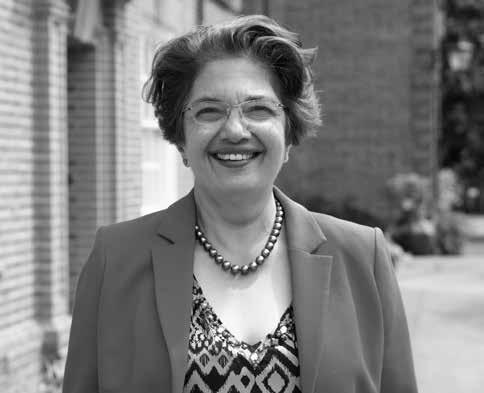
On behalf of the Somerville Association, I would like to congratulate them all.
I was very happy, at the AGM, to hand over the Presidency to Nermeen Varawalla, a distinguished biomedical entrepreneur whom many of you – especially the medics – will already know. I am completely confident that she will be a great Association President. I also extend my thanks to the Association committee and year reps for all their work on behalf of the College, and to Liz Cooke and Lisa Gygax for, as always, offering enormous ongoing support to the Association and to alumni everywhere. It has been a great honour and privilege to serve as President, and I look forward to seeing the College, and the Association, continuing to go from strength to strength
ALISON WOLF (Potter, 1967)At the Somerville Association AGM held on 5th March 2022 I was honoured and delighted to take on the mantle of serving as its new President. As is true for so many Somervillians, Somerville remains an important and treasured aspect of my life. Since I arrived from Mumbai in January 1989, having completed my medical training in Obstetrics and Gynaecology, to take up my Rhodes Visiting Research Fellowship at Somerville, the College has gifted me with not only exceptional educational and research opportunities but also contributed to my personal development and wellbeing in a myriad of ways. Whilst being a member of the Senior Common Room with observer Governing Body privileges, I carried out my DPhil research at Oxford’s Weatherall Institute of Molecular Medicine following which I embarked on my NHS career which included the Oxford Radcliffe and Birmingham Women’s NHS Trust hospitals. With an MBA from INSEAD I transitioned to the pharmaceutical industry where over the past 20 years I have held numerous leadership roles related to global clinical development. Notably I have set up and exited from a pioneering business that allowed for hospitals in India to be included in global clinical trials, led programs for FDA approval of innovative medicines and served as a Trustee of the Malaria Consortium. Presently I am Chief Medical Officer at Relief Therapeutics, a Swiss biopharmaceutical company, working on delivering treatments for rare genetic diseases.
Through the eventful past decades, I have been fortunate to remain closely connected with Somerville, having served on the Somerville Medics Committee since its inception in 1993, been a past member of the Somerville Association Committee and more recently as a member of the International Advisory Board of Somerville’s Oxford India Centre for Sustainable Development. These connections have enabled me to remain engaged with ongoing developments at the College and with the vibrant Somerville community, a source of many special lifelong friendships. It is truly extraordinary how our College continues to evolve and respond to the challenges of our times whilst remaining steadfast in its core values. A feat that calls for wider recognition and celebration.
With the help of my excellent committee, and wholehearted support from the College administration, particularly our Principal, Baroness Jan Royall, I seek to build on the stellar contributions of my predecessor Professor Baroness Alison Wolf as we strive to enable even greater engagement and participation within the Somerville community. A programme of varied events will remain core to this purpose with the
added resource of online and ‘hybrid’ events to complement the in-person events calendar. Apart from organising in-person events at Somerville, in London and other parts of the UK, in recognition of the international Somerville diaspora I am keen to help with strengthening ties with Somervillians living outside the UK. Engaging younger Somervillians will remain a focus as we seek to maintain a vibrant community, diverse in all possible ways. With strengthening the Somerville community in mind, I am delighted that the College’s mentoring platform, Somerville Connect, has recently been updated and encourage you to take a closer look (details below).
To celebrate and connect with many more Somervillians, the Somerville Association will organise an annual black tie dinner at college to coincide with the University’s Meeting of Minds weekend conference. I look forward to welcoming many of you to the inaugural dinner on the evening of Saturday 17th September 2022 and urge you to pack your dancing shoes. We have much to celebrate!
DR NERMEEN VARAWALLA MD, DPhil, MBABaroness Alison Wolf (Potter, 1967), retired 5 March 2022
Dr Nermeen Varawalla (1989), elected 5 March 2022
Liz Cooke (Greenwood, 1964)
Lisa Gygax (1987)
Isabel Ireland (2013, English)
Joanne Magan (1984, PPE)
Hilary Manning (1977, History)
Pia Pasternack (1982, Philosophy & Mod Langs)
Virginia Ross (MCR, 1966)
Joe Smith (2013, Mod Langs)
Zoe Sprigings (2004, History)
Benjamin Thompson (Fellow and Tutor in Medieval History)
Fiona Stafford (Fellow and Tutor in English)
Luke Pitcher (Fellow and Tutor in Classics)
Francesca Southerden (Fellow and Tutor in Mod Langs )
To help alumni stay in touch with each other and with the College, we are building up a system of year reps.
To see who is your year rep, please follow the link https:// www.some.ox.ac.uk/alumni/year-reps/.
Ideally there will be more than one rep per year, and some years have as yet no rep at all.

The Alice Horsman Scholarship was established in 1953. Alice Horsman (1908, Classics) was a great traveller who wished to provide opportunities for former Somerville students to experience other countries and peoples, whether through travel, research or further study. The Alice Horsman Scholarship is open to all Somerville undergraduate and graduate alumni with the exception of Bachelor of Medicine and Bachelor of Surgery students at other Oxford colleges. Applicants should be in need of financial support for a project involving travel, research or further study that is intended to enhance their career prospects. Applicants who have secured a place on the Teach First, Police Now or Step up to Social Work schemes will be looked on favourably. Priority will be given to applicants who have not received previous awards. For information about the application process please email academic.office@some.ox.ac.uk
Applications are accepted each term.
This Fund was established to provide small sums to help alumni with unforeseen expenses and hardship. We have also been able to use it to subsidize the cost of individuals attending College events which would otherwise have been unaffordable for them. We hope that people who find themselves in need will not hesitate to call upon the Fund. We are glad to hear from third parties who think that help would be appreciated. We are always grateful for donations to this Fund.
Applications for grants should be addressed to elizabeth.cooke@some.ox.ac.uk or lesley.brown@some.ox.ac.uk
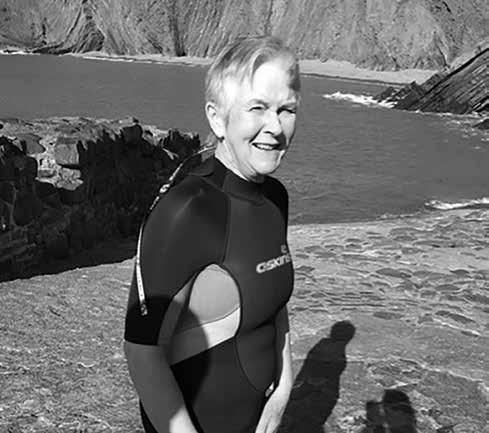
In 1966 Sophia graduated from Cambridge with a degree in French and Russian. She subsequently changed fields completely, took a place at the Royal College of Surgeons in Dublin to read medicine, but left before taking her final exams to accept a place at the Oxford medical school. This proved to be a turning point and Somerville changed her life permanently. She spent nineteen years in Oxford. She then moved to Nottingham to do her Senior Registrar psychiatric training in Psychotherapy and ended up in Chichester, setting up a new Psychotherapy Service as part of the NHS Mental Health Services. She retired from her consultant post in 2007, qualifying as a group analyst the same year and moved to Lewes. Since then she has been improving her languages, learning the long Wu form of Tai Chi, and enjoying music, the sea, family and friends.
Born in London. To Cambridge for six months with my mother to avoid the buzz bombs. Left asleep in pram in churchyard while my mother bicycled to market. A dress with smocking made me by my mother for ‘being a brave baba when the bombs dropped’. Back in London. In pram, licked chocolate from top of chocolate buns my mother had queued for hours to buy. Walking round the walls of Holland Park, my sister in a pushchair. Stories from my mother of beautiful little Clarence, too beautiful to be allowed out, kept in the house and park behind closed gates, but always managed to get out and have adventures. An attic bedroom with stars painted on the ceiling. Nursery school. Shut in a room standing against the wall with a barking black spaniel when I was naughty.
Seaford and staying in a hotel with my grandmother. First visit to the coast. Teddy ran away to sea. Telegram to London. a substitute had to be quickly provided by my mother. Bears scarce in 1948. Sylvie came from under the counter at D. H. Evans.
Unwrapping her in front of the hotel staff.
Hampstead. Primary school. Holding a lighted candle and waiting to go on stage for a Nativity play, setting light to the hair of the girl in front. Quickly blown out.
My parents discovered the school did not take Jewish girls; promptly removed me.
New school. Singing ‘Past three o’clock on a cold frosty morning’ as a solo in the Nativity play in a church. Hearing the slow movement from a Haydn quartet played by a visiting string quartet and falling in love. Being shut in the library to finish the fish pie I had refused to eat at lunch. The Marriage of Figaro at Covent Garden when I was eight.
Cornwall. Night trains to Wadebridge. Terrified the tide would come in so fast we wouldn’t have time to get away. Sitting on window-seat of Grandma’s rented cottage looking at the sea. A new sister. A house of our own in Cornwall. Burying
disposable nappies on the beach and pushing the ancient pram across the sand. Cowrie shells in pools on Booby’s Bay. Riding lessons. Being read to after lunch at home or on beach.
Told I would probably not pass 11+ in Maths. New school. Reading a 1930s translation of The Odyssey, one sentence at a time round the class. Asked to name the tune played on the piano, then told it was not ‘Oh Polly you might have toyed and kissed’ from The Beggar’s Opera but ‘Golden Slumbers’ (it was both). Putting on the 78 rpm record every morning for Assembly. Singing in the ripieno chorus in the St Matthew Passion in the Festival Hall. Never got over the horse in gym. Hockey – yuk.
Trip to Tours to do French course for foreigners. Grass in France is the same as grass in England! Back home, taught myself the Charleston, holding on to the baby grand piano.
New school. Only rule was not smoking in bed. Posh girls with posh boyfriends at Sandhurst. Latin and French W Level, Russian O Level. Tutors in London. Discovering I could read The Barber of Seville in French. Being taught to think. Toasted corned beef sandwiches for lunch from café next door.
Russian lessons for two hours on my own in Highgate with bortsch and Russian gypsy music after the grammar.
One or two trips to Count and Countess Kutuzov-Tolstoy outside Dublin to improve my Russian. A few other students. Very cold house, never enough to eat. Trips on bike to Greystones Café to fill up. Wonderful stories of the Count’s background. Films at Greystones cinema, incomprehensible because so much had been cut.
Cambridge. At interview: ‘Can you tell me the difference between poetry and prose, Miss Storr? Do shut the door and come and sit down.’ Smell of chrysanthemums in the market in autumn. Mistakenly given ten times the dose of thyroxine;
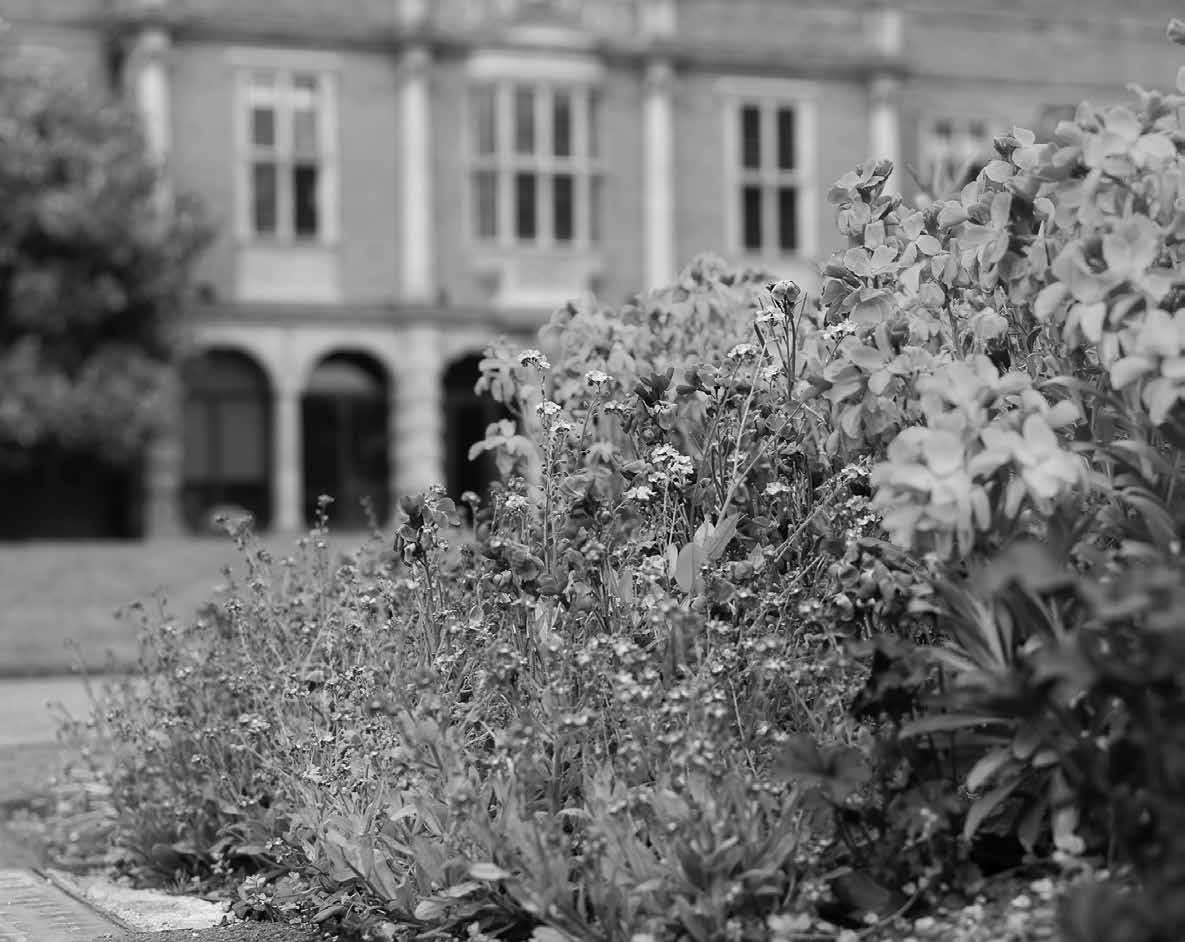
panic attacks and claustrophobia. Parents separating. Singing the Verdi Requiem in King’s College Chapel and Ely Cathedral.
London. Science A Levels at tutors, repeated at City of Westminster Technical College. Mr Gadd (chemistry teacher) and ‘dynamic equilibrium’ – a concept for life. No luck in getting a place in medical school. ‘If you get married and have children, that will be ten years off your working life’. Dublin and Royal College of Surgeons. Rejects from various countries especially Norway and South Africa. Girls at the front of lecture theatre, boys behind them. Known by your seat number, not your name. Bewleys cafés and the smell of roasting coffee. Smell of beer from Guinness breweries. A new friend living in adjoining bedsit. Scrabble over a blue teapot.
Apply to Oxford to do the clinical part of the course. Accepted! Write round the women’s colleges just in case they might take me for the preclinical. YES! By Jean Banister at Somerville. Pack up before end-of-year exams in Dublin. Move to graduate block in Little Clarendon Street. Start of a new era.
If you have a news item which you would like to appear in the next College Report, please send in your contribution before July 31st.
Daphne Swan (Mrs Sleigh) writes: ‘I did not expect to be bringing out another book at the age of 95, but this one is a 2021 reprint of my 1990 book, The People of the Harrison. It is a history of the early people – both Indigenous and European newcomers – on Harrison River and Lake (in Canada’s Fraser Valley). Out of print for several years, it has now found a new publisher – the Fraser Heritage Society. During Covid’s monotonous spell, I turned to poetry writing, and provided a small distraction in my apartment building by putting up a monthly poem on the notice board in the lobby (and on the internet). Another poet wrote humorous verse. Both our efforts were appreciated.’
Lindsey Miller (Mrs March) writes: ‘I am living in Oxford and active in Extinction Rebellion in London and Oxford, seeking arrest. Continuing to circle dance. Keen to host anyone from my cohort (1951-4).’
Jenifer Weston (Mrs Wates) has had a late flowering of inspiration during the lockdowns, and held two exhibitions of her recent paintings. The ‘Corona’ paintings were shown at the Museum of Oxfordshire in Woodstock in July 2021, and the ‘Magnificat’ series in St Mary Magdalene's church, Woodstock, in March 2022. These abstract and radiant paintings, shown alongside poems and other writings exploring the thoughts behind them, seek to express the turning point we face as a world as a result of the pandemic and the climate emergency, and the vision of peace and justice we need to pursue.
Reziya Ahmad (Mrs Harrison) has a grandson at Somerville about to sit his finals and another about to set off for three months in South America as
part of his gap year. Reziya is building up a practice as a psychoanalytic psychotherapist; after battling a certain amount of ageism to get accepted onto a good training course, she qualified in October.
Esther Rantzen writes: ‘My life at the moment seems filled with memorial services – unsurprising perhaps at my age – the two most recent were for Dame Vera Lynn where her medals and honours were formally processed up the aisle of Westminster Abbey and placed on the altar, and Nicholas Parsons CBE, where Dame Sheila Hancock read ‘The Owl and the Pussycat’ by Nicholas’s favourite author, Edward Lear, and on cue a black cat strolled up to the dais, walked across it, and without hesitating, deviating or interrupting the ceremony, disappeared again. I do think we Somervillians have a duty to make our funerals as entertaining as possible. I am torn between “Wish Me Luck as You Wave Me Goodbye” as the final piece of music, or “Come On Baby Light My Fire”.’
Carol Bishop (Dr Morrison) writes: ‘I decided to celebrate turning 80 by starting a new job. I joined an artist collective, Art1274Hollis, in Halifax, Nova Scotia, and was the featured artist for the month of March.’
Sally Senior writes: ‘Now, in one’s 80s, the major achievement is being still upright. Even my five grandchildren are virtually adult.... One has just got a conditional place in medical school, which we gather is a virtual miracle this year.’
Maya Bradshaw (Dr Slater) has had the following publications since 2019: Boris Pasternak, Doctor Zhivago,
translated by Nicolas Pasternak Slater (The Folio Society, 2019), Editor and Picture Editor, Maya Slater; Ivan Turgenev, Love and Youth: Essential Stories, translated from the Russian by Nicolas Pasternak Slater and Maya Slater (London: Pushkin Press, 2020); Fyodor Dostoevsky, A Bad Business: Essential Stories, translated from the Russian by Nicolas Pasternak Slater and Maya Slater (London: Pushkin Press, 2021); Ivan Turgenev, Fathers and Children, translated from the Russian by Nicolas Pasternak Slater and Maya Slater (New York: New York Review of Books, 2022); Review of Le ‘Vieux Magasin ’ de La Fontaine by Tiphaine Rolland, in July 2021 issue of French Studies (75.3).
Caroline Pinder (Mrs Cracraft) writes from Chicago: ‘I have happily moved to a “retirement facility”, The Admiral at the Lake, and am loving it. My only complaint, the food is so good that I am putting on weight. I was so very disappointed that Covid-19 restrictions prevented the College from organising a 60th reunion for 1961.’
Cynthia Smith (Mrs Floud) is doing oral history, recording the memories of the 86-year-old ex-milkman in Haddenham, Bucks. To keep him on topic, she records him as they walk his old rounds. Transcripts via otter.ai, with photographs, are to be deposited in Haddenham Museum and available with the audio files on the internet. She is encouraging others to use this method.
Alison Skilbeck writes: ‘2021 saw things open up both in my Communications Skills work for RADA and with acting generally. I trained top managers from Michelin in France, then filmed, quite dangerously, on Honister Crag, above a slate quarry. I also had a nice cameo role in a famous Netflix series about which I cannot speak until
it is shown! I shall be taking my onewoman Mrs Roosevelt Flies to London to Edinburgh this August – her message seems so timely – and trying out my new show Uncommon Ground at the Buxton Festival (Fringe) in late July. Good to be at Somerville for Supporters' lunch.’
Sue Watson (Mrs Griffin) has recently become Chair of the Oxford University Society in Cambridgeshire. They organise events and activities for Oxford alumni who live in Cambridgeshire, including talks, visits and social events. In September they hope to give the local freshers an opportunity to meet up before they start their first term at Oxford. Membership currently includes 15 Somervillians with matriculation dates ranging from 1953 to 2007.
Edwina Brown writes: ‘I am still enjoying work despite the stresses of Covid changing clinical working habits and talks for overseas meetings being delivered from the dining-room table. In August, I become the president of the International Society for Peritoneal Dialysis for two years. Fortunately this is happening as Covid-related travel restrictions are gradually being lifted so I am looking forward to opportunities of meeting colleagues old and new overseas, and in particular being able to improve access for people with kidney disease to have dialysis in lower income countries. At the same time, there is the challenge of “passing on the baton” for various clinical and educational activities. Meanwhile, there is the pleasure of seeing my two sons finish their medical training and approaching consultant jobs, and being involved with increasing numbers of grandchildren.’
Julie Weston (Mrs Baddeley) writes that Chapter Zero, the UK climate network for directors which she founded in 2019, now has more than 2,000 members, and the international movement, the Climate Governance Initiative or CGI, spans 30 countries. She hopes to mobilise these key business influencers to deliver the transition to net zero emissions and help to keep global warming to 1.5 degrees, in line with the Glasgow Climate Pact agreed at COP26. This will require the biggest
transformation to the economy in our lifetimes and we have fewer than 2,800 days to halve emissions worldwide. The urgency and current lack of pace of change is terrifying to Julie, as a Somerville zoologist, but there is a huge amount of work going on in Oxford to help tackle the challenge.
Baroness Lucy Neville-Rolfe has been appointed Minister of State in the Cabinet Office
Cathryn (Cathy) Higham (Dr Sinclair) has retired from her work as a professional scientist and management consultant and has published a book of poetry about her lockdown experience: A Lyrical Life in Lockdown. Cathy explains that producing the book was totally unintentional. When lockdown began, she decided to keep in touch with friends by writing a few poems about what was happening, but lockdown continued for so long that in the event she wrote 230.
Sabina Lovibond has the following recent publications: ‘Wittgenstein and Moral Realism: The Debate Continues’, in Richard Amesbury and Hartmut von Sass (eds.), Ethics after Wittgenstein: Contemplation and Critique (Bloomsbury, 2021); ‘Philosophy, Literature, Politics: The Cases of Rorty and Collingwood’, in Giancarlo Marchetti (ed.), The Ethics, Epistemology, and Politics of Richard Rorty (Routledge, 2022); ‘The Unquiet Life: Salience and Moral Responsibility’, in Sophie Archer (ed.), Salience: A Philosophical Inquiry (Routledge, 2022); ‘Aesthetic and Ethical Attitudes’, in ZEMO (Zeitschrift für Ethik und Moralphilosophie), April 2022 (online).
Hilary Mutton (Professor Winchester) took up the position of University Secretary at Charles Darwin University in April 2021, overseeing governance, regulation, legal, policy, risk and related matters. She also became a Commissioner for Oaths (NT) earlier this year. She is enjoying the beautiful Darwin landscape and climate and has no plans for retirement any time soon. We warmly congratulate Hilary on her award of an AM in the Queen’s Birthday Honours (Australia).
Ruth Sillar writes: ‘I have been volunteering at the Bar Convent, York, firstly in the permanent exhibition (pre-Covid) and now in the archives. This feels a reasonably safe activity for someone like myself who was classified as ‘clinically extremely vulnerable’ during the pandemic. Two of us have transcribed the Convent diary for the years 1939-1945. The diary itself was damaged during the “Baedeker Raid” of April 1942, when the Convent took a direct hit, and is now on display. My WEA art class has continued to function online, with the help of our enthusiastic and supportive tutor.’
Sue Barratt (Mrs Williamson) is currently Director, Libraries, for Arts Council England and we warmly congratulate her on her award of an MBE for services to the Library Sector in the Queen’s Birthday Honours list.
Frances Crane (Mrs Sinha) writes: ‘I have spent my working life based in India, where I co-founded M-CRIL, a development consultancy that provides research, evaluation and other services for financial inclusion and poverty reduction. One of my last pieces of work for M-CRIL, before I “semi-retired”, was as Team Lead for the Mid-Term Evaluation of UNCDF’s Expanding Financial Access Programme in Myanmar. This has received a 2022 UNDP Evaluation Excellence Reward for Gender Responsive Evaluation. I am not aware that I did anything different in this report from other evaluation reports for the UN. Maybe being in Myanmar attracted attention. But I am pleased, nonetheless! http://web.undp.org/ evaluation/award/evaluations/2022/ uncdf-gender.shtml.’
Felicity (Fiz) Markham is studying Composition for a Masters degree (MMus) at Royal Holloway part-time. She is also enjoying conducting a community choir, singing, and playing clarinet and piano in various groups. She has recently completed a City and Guilds Award in Education and Training. Other activities include learning the duduk for a module on her course and visiting her 104-year-old mother in a local care home.
Jenna Orkin’s new-ish book is out: How to Say ‘F— Your Mother’ in Chinese: A Teacher’s Guide (independently published; available from Amazon).
We are delighted to congratulate Nia Griffith most warmly on her appointment as Dame Commander of the Order of the British Empire in the Queen’s Birthday Honours list 2022.
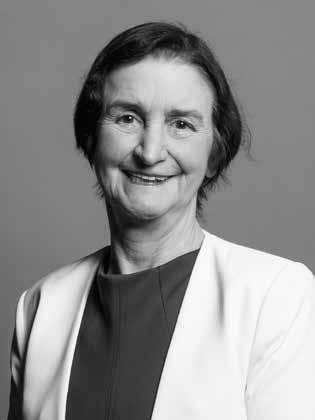
Philippa Tudor’s biography of Mrs Gustav Holst: An Equal Partner? was published in March 2022.
Helen Goodman writes: ‘I have been appointed Professor in Practice in the School of Government and International Affairs and my first lecture was on “Parliament is Too Weak!”. I’m also on the Durham Energy Institute Board trying to help with translating their R+D into renewable technologies into practice and I’m very keen to talk to colleagues also working on net zero. I’m a trustee on a few charities: Church Action on Poverty, Zacchaeus 2000 and Banana Link. Finally, or rather most recently, I’m hosting a refugee family from Ukraine.’
Jane Macintyre has for the last five years been volunteering at the Courtauld Institute helping to digitise a collection of million or so architectural photographs. This stirred her interest in architecture and design, and so before lockdown she applied to study for the Masters in History of Design at Oxford’s Continuing Education department. She recently graduated from this thoughtprovoking and very enjoyable course. Next, she will be helping with the John Stuart Mill marginalia project at Somerville library and looking out for more volunteering opportunities that allow her to stay connected to her recent studies.
Ellen McAdam writes: ‘I have received a grant from the Art Fund to carry out a survey of civic museum collections in England that have been designated as being of national significance. I am working with the Civic Museums Network to complete this. If you have never been involved with museum collections other than viewing the 2% on display, you cannot imagine how entrancingly weird and diverse they are. Working on this survey is a little like being locked up in an up-market, multi-disciplinary version of the Middle
of Lidl. I do not allow myself to have favourites, but the Pinto Collection of Treen will always occupy a special place in my esteem.’ Rosie Rogers (Mrs Oliver) writes: ‘One 2019 highlight was being part of a co-operative of women writers who edited and published a science fiction anthology, Distaff. I was absolutely delighted when one of its stories was included in the Best of British Science Fiction 2019. It was such fun that we’re now in the process of producing a sister fantasy anthology, Femme Fae-Tales. Another highlight was judging handicrafts in my first year as a qualified Nation Federation of Women’s Institutes (NFWI) craft judge. People’s talent never ceases to amaze me. Sadly Covid-19 put paid to this, but has given me more time to do my needlework.’
Lesley Gregory is Chair of law firm Memery Crystal, and is proud to have established a 150+ network of ‘Women In Business’ comprising female entrepreneurs, NEDs, mentors and other like-minded professionals who want to support female business founders. They run seminars, events and dinners in London.
Janet Bush writes: ‘Late last year, I was elected to be a public governor of what was until recently the Royal Devon University Healthcare NHS Foundation Trust. The old Royal Devon and Exeter NHS Foundation Trust (RD&E) is merging
with the Northern Devon Healthcare NHS Trust. I was treated at the RD&E some years ago and decided to play a role if I could. I originally signed up to meet and greet at the hospital but then this governorship came up!’
Kamila Ebrahim (Professor Hawthorne) has had a longstanding interest in health inequalities, working with BAME communities in Nottingham, Manchester and Cardiff, and was awarded an MBE for services to general practice in 2017. She is currently Head of the Graduate Entry Medicine programme at Swansea University, while maintaining her clinical interest in general practice in Mountain Ash, in the Welsh Valleys. This year she has been elected as the next Chair of the Royal College of GPs and will serve a three-year term from November 2022. We are delighted to congratulate Kamila on her appointment.
Michele Moody-Adams shares two pieces of news: ‘I was elected a Fellow of the American Academy of Arts and Sciences in April of 2021. Here is one version of the announcement from the Columbia University website: https://news.columbia.edu/news/ columbians-who-are-new-2021american-academy-of-arts-andsciences-inductees. I have also just published a new book with Columbia University Press, entitled Making Space for Justice: Social Movements, Collective Imagination, and Political Hope. Here is the page on the Columbia Press website : https://cup.columbia. edu/book/making-space-forjustice/9780231201377. I hope that students, faculty and staff at Somerville
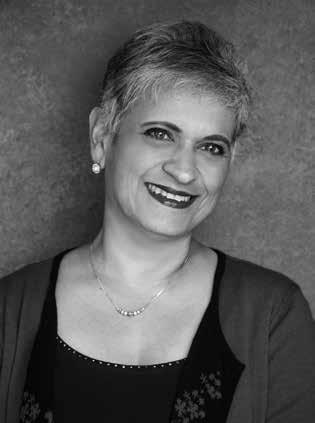
had a relatively smooth transition to an almost post-pandemic world. I have just ended a three-year term as Philosophy Department Chair at Columbia and the three years have truly felt like “dog years”.’
Tanya Szrajber (Mrs Firth) has been nominated a Fellow of the Society of Antiquaries (under her professional name, Szrajber) and is Collections Manager for the Goldsmiths Company.
Julia Gasper published her last book, Anne-Marie Fauques de Vaucluse: a Tiger among the Bluestockings, in 2021 and gave a copy to the College library. It is a critical biography of a very neglected 18th-century woman writer. Julia is now on the Advisory board of the group called Academics for Academic Freedom. https://www.afaf.org.uk/
Caroline Rae has been honoured by the French Government for her services to French music and was made a Chevalier de l’Ordre des Arts et des Lettres in 2018. Her most recent book, André Jolivet: Music, Art and Literature, the first on the composer in English, was published by Routledge in 2019. Our warm congratulations to Caroline.
Deborah Taylor is this year’s Treasurer of Inner Temple. ‘It is a good year, as the Inn is re-opening after a major building project to provide a new education and training centre. This year is also the 100th anniversary of the first woman to be called to the Bar, so we have much to celebrate. Whilst being Treasurer I am continuing as Resident Judge at Southwark and Recorder of Westminster.’
Jacqueline Watts, writing as J. S. Watts, had her latest novel, Elderlight (the last book in the Witchlight series), published in December 2021 while she was stuck in a hospital bed – ‘not the most auspicious launch for a new publication.’
Jacky Roynon (Mrs Rattue) writes: ‘After many years living in various parts of the UK and in Spain, I found myself moving back to Oxford in 2017. I’m thoroughly enjoying it, and work as a careers adviser at the local Further Education college (City of Oxford College) with young people who are figuring out what they want to do in
life, helping them set out in the right direction.’
Sarah Pope (Mrs Wardle) writes: ‘I am currently living in Truro, Cornwall with my husband Hugh, and two of my five children. I am kept very busy with my full-time job working as a Senior Advisory Teacher of the Deaf within the Sensory Support Service at Cornwall Council. As I have a level 6 qualification in British Sign Language (BSL), a lot of my work is with deaf children and young people using BSL as their first or preferred language in mainstream settings in the county. Outside of work I enjoy walking our two Cairn terriers, swimming and catching up with friends and family.”
Danielle Lux writes: ‘I was awarded a Fellowship of the Royal Television Society in 2021 – which was absolutely wonderful and a huge surprise: https:// rts.org.uk/article/rts-awards-2021fellowships. We won a BAFTA last year for Best Entertainment Programme – for a poetry show we do called Life and Rhymes.’ Danielle and her management team, CPL Productions, were one of a select few ‘indie legends/unsung heroes’ who were honoured and received a special tribute from PACT at their summer party on 24th June. Danielle was applauded for ‘inspiring staff to do better and reminding them why they went into TV in the first place – to produce good telly, have fun and make life better’.
Fiona Forsyth writes: ‘I’m still in Qatar but my news is that I have become a published author. Three novels set in the world of Ancient Rome were published earlier this year and they are all available on Amazon of course!’
Collette Lux has been Executive Director of Communications and Marketing for University College London. In this role Collette has developed advertising campaigns and reshaped the approach to international student recruitment, hiring the first incountry officer in India. The sector has acknowledged the impact of her work, and her team was shortlisted for the THE Award for Outstanding Marketing/ Communications Team, and won
Best PR/Communications Campaign Initiative in the HEIST Awards, Marketing Campaign of the Year in the PIEoneer Awards, and Gold in The Drum Design Awards; they were also finalists for Best Education Campaign in the 2020 CIPR Excellence Awards. In 2022, Collette became the first Chief Marketing Officer of the Vocational Training Charity Trust.
Rachel Wright re-joined the BBC World Service in the last couple of years and is now regularly presenting The Newsroom programme and the BBC’s flagship Global News Podcast. Here is one she did earlier: https://www.bbc.co.uk/ sounds/play/p0bzdr6p
1987
Sally Prentice’s main news is that she graduated with an MSc with Distinction in Grantmaking, Philanthropy and Social Investment from the Centre for Charity Effectiveness, Bayes Business School, City University.
1988
Alex Bailey (Mrs Hems) writes: ‘From September 2022 I shall be taking up a new position as the Head of the Aldenham Foundation, a group of independent schools in Hertfordshire. I am very excited to be making this move and looking forward to becoming their first female Head of Foundation.’
Essaka Joshua writes: ‘I’ve been elected a Fellow of the Society of Antiquaries of London, and have joined the editorial board of the book series ‘Cambridge Studies in Romanticism’ and the editorial committee of the journal PMLA . I’m having a great deal of fun as a consultant to an exhibition of the works of disabled artist Sarah Biffin (1784-1850) at the Philip Mould gallery on Pall Mall. The exhibition opens in November.’ See https:// philipmould.com/exhibitions/31-sarahbiffin-1784-1850/
1989
Therese Coffey was appointed Secretary of State for Health and Social Care and Deputy Prime Minister on 6 September 2022. This appointment makes her the first woman to serve as Deputy Prime Minister.
Vanessa Panini (Mrs Lawson) writes: ‘Matthew and I are still living in South
Wales and I’m still an accountant working in a small practice founded ten years ago with a colleague. Our sons are 13 and 16 and we do a lot of orienteering as a family. The boys have been selected for their national age group talent camps and are thriving. One is already too quick for me and the other will be soon. I do a lot of open water swimming and have very much enjoyed the challenge of my first winter of swimming. I find it very therapeutic and look forward to more. We still do a lot of hillwalking and fell running and generally love being outdoors in our spare time.’
Marisa Le Masuier (Dr Wray) writes: ‘In 2020, at the start of the first Covid lockdown, I was diagnosed with breast cancer. I have just published a memoir about my experience of navigating cancer services in the NHS during Covid. Cancer, Covid and Me is available on Amazon.’ If anyone would like to contact Marisa, please get in touch with the Alumni Office at Somerville.
Laura Gray writes: ‘I am still based just outside of Siena with Marco and our three children. After twenty years of running a small winery, Il Palazzone, I am on the brink of going freelance and hope to find the time to complete my project, The Magpie’s Guide to Montalcino
Bourby Norman (Mrs Webster) writes: ‘My news is that ten years from founding and running Perth Symphony Orchestra, we’ve got large enough for me to take Long Service Leave and appoint a new CEO to replace me, to take the orchestra into the next decade. We’ve grown to be one of the largest arts companies in Western Australia and have a unique business model that enables us to innovate, create and sustain ourselves without relying on philanthropy and funding, despite being a charity. Despite the pandemic, we performed to over 100,000 patrons last year, many in rural and remote parts of Western Australia giving work to over 150 musicians and engaging many more suppliers and casual workers in the arts sector.’
Camilla Baker writes: ‘I have been living back in my great-grandfather’s home, and have found myself spearheading a campaign to keep ours and other small National Trust properties open: https://chng.it/fXn5NsHk. Here is an article: https://www.kentonline. co.uk/gravesend/news/family-fightto-protect-herbert-baker-ancestralhome-from-cl-263370/. I have been grateful of support from fellow Somervillians, who have given their time even during this time of global unrest.’
Jane Aspell has been promoted to Associate Professor of Cognitive Neuroscience at Anglia Ruskin University. In December she was interviewed about her research on the BBC Radio 4 programme All in the Mind. She is still living in Cambridge with her daughter, Isabel, and their two cats.
Eleanor Reid (Mrs Smith) is a consultant commercial property solicitor and very much appreciates the flexibility it brings, whilst keeping her working
and thinking and doing something she enjoys. Her boys are 13 and 10 now, growing fast and she is enjoying watching that too. She and her family have recently moved to Tonbridge and she would welcome Somervillian visitors (email via Somerville Alumni Office).
Joanne Clement was this year appointed QC. Joanne specialises in public law and human rights.
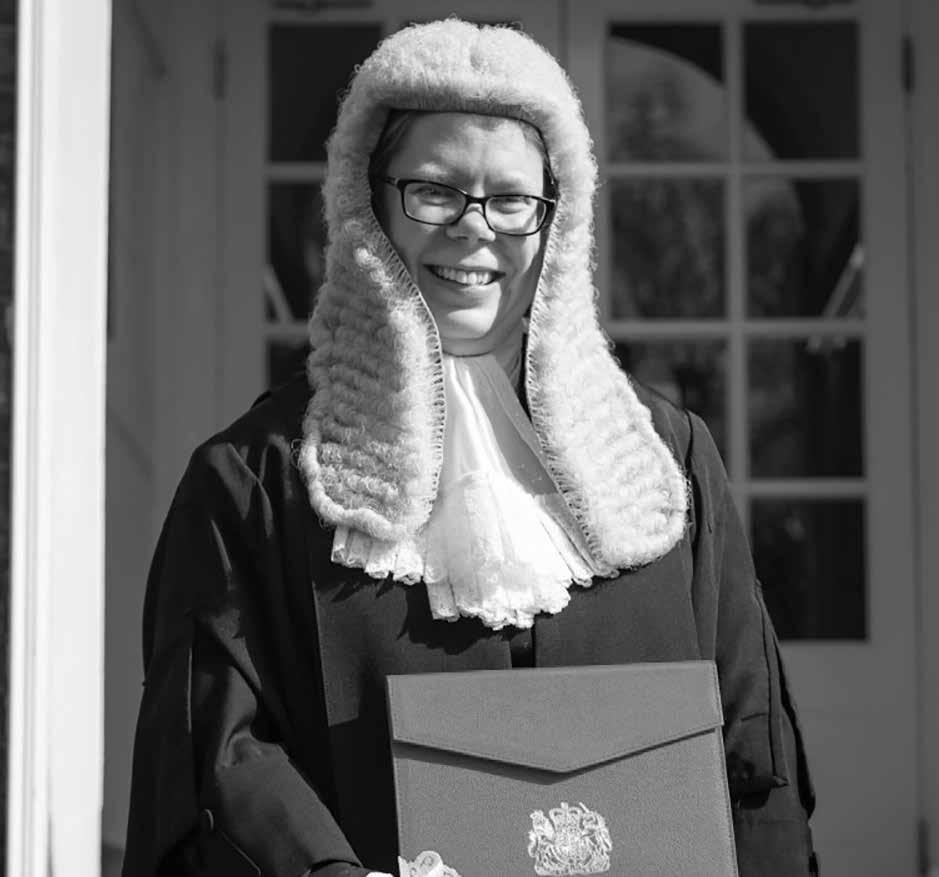
Louisa Radice writes: ‘I took part in the latest series of Mastermind : episode 19, transmitted 17 January 2022. My specialist subject was the Pre-Raphaelite Brotherhood.’ https://www.bbc.co.uk/ programmes/m0013nzf
Zoe Cokeliss (Mrs Cokeliss Barsley) writes: ‘After twenty years in London, I am back in north Oxford where I live with my husband and our son. I work at Oxford University Press as Director of Sustainability, so have the pleasure of proximity to Somerville!’
Caroline Smith (Mrs Lytton) writes: ‘The day before the Boat Race, I was very proud to be asked to umpire the first Veteran Women’s Boat Race held on the same course as the men’s race –roughly the first mile and a half of the traditional Putney-to-Mortlake course. I was even happier that the Oxford women went on to win, even though I’m meant to be impartial as the umpire!’
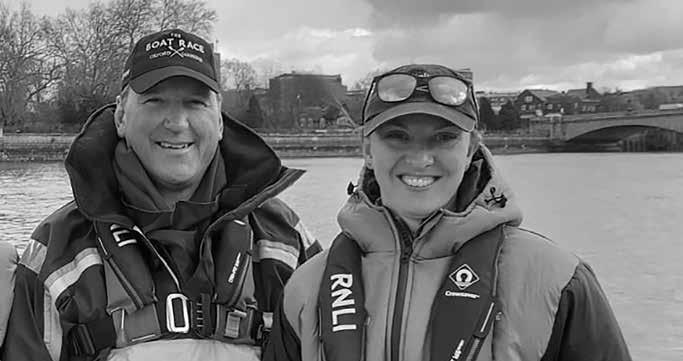
Alistair Fair was promoted to Reader in Architectural History at the University of Edinburgh in 2020 and completed his latest book, Peter Moro and Partners, for Historic England/Liverpool University Press in 2021. He is now CoInvestigator on a Leverhulme-funded project examining the architectural and social histories of Scotland’s post-war new towns.
Rachel Boakes was very sadly diagnosed last year with an incurable brain tumour. Since her diagnosis, Rachel has been determined to make something positive from her very difficult situation and in particular to raise crucial funds for Brainstrust, a charity researching brain tumours (https://brainstrust. org.uk/). Rachel’s close Somervillian friend, Elie McDaniell (2009), has made a magnificent contribution to these fundraising efforts by undertaking an epic challenge, cycling 190 miles from London to Paris on 2 April before running the Paris Marathon the next day. All funds raised from Elie’s challenge have gone to support the charity. If you would like to support this, here is
the link to the JustGiving fundraising page: https://www.justgiving.com/ fundraising/rachel-boakes.
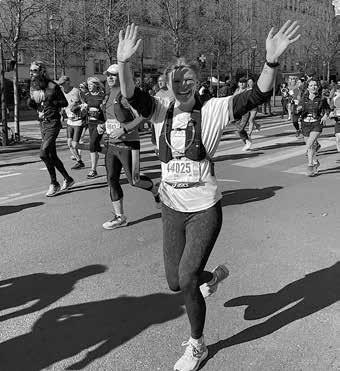
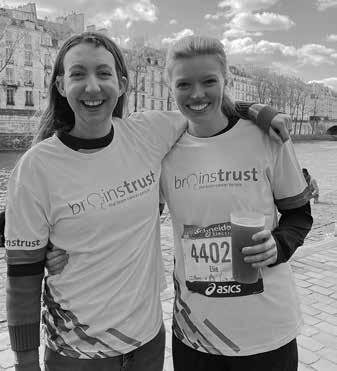
Anusha Couttigane wrote at the end of May: ‘As the Cannes Film Festival reaches its climax, Vogue Business Head of Advisory Anusha Couttigane (20092012) has led a short film production in partnership with the UK Department for International Trade to celebrate the contribution of British fashion talent to the film and television industry. In British Fashion on the Big Screen: A Private Viewing, she goes behind the scenes with three iconic costume designers: Anna Robbins, designer for Downton Abbey, Sophie Canale, designer for Bridgerton and the eminent Sandy Powell OBE, three-time Academy Award winner for Best Costume Design. The film also features Samata Pattinson, CEO of Red Carpet Green Dress and Jeremy Angel, Production Director and seventh generation leader of family-run Angels Costumes, the oldest costume
maker in the world.’ See https:// www.voguebusiness.com/fashion/ british-fashion-on-the-big-screen-aprivate-viewing-uk-department-forinternational-trade
Racha Kirakosian is currently a Fellow at the Hamburg Institute for Advanced Study.
Jae Young Park writes: ‘I worked as a Foundation Doctor from July 2021 to November 2021, after which I had left the medical profession to be an investment banker. I am currently working at UBS Investment Bank’s Healthcare Division. At present, I am an Off-Cycle Intern (Long-Term intern), with a signed contract to convert into a full-time analyst in July 2022.’
Devaang Savla writes: ‘Completing my BCL in the year 2020 I have returned to India and resumed my litigation at the High Court of Judicature at Allahabad, Uttar Pradesh, where I and three other partners have established a law firm, M/s Lawbridge Partners. Apart from our regular practice, we are fighting various pro bono cases helping and aiding litigants who belong to socially backward communities and are also financially challenged. This pro bono work is in furtherance to the objective undertaken and program facilitated by LASDES (Legal Aid and Social Development Educational Society), an NGO founded by me in the year 2017 (www.lasdes.com).”
CAROLINE LYTTON NEE SMITH 1999 WITH SIR MATTHEW PINSENTBurr
To Sacha (Wason, 2007) and Steve Burr on 22 February 2021 a daughter Orla Burr
Payne
To Emma Payne (2005) and William Knighton on 1 December 2021 a son Rupert Arthur Geoffrey Payne-Knighton
Starritt
To Alexander (2004) and Stella Starritt in November 2021 a son Wolfgang Robert Starritt
Carter
April Carter (Tutor and Fellow in Politics, 1976-1984) on 16 August 2022
Aged 84
Duncan-Jones
Katherine Duncan-Jones (Tutor and Fellow in English, 1996-2001, Senior Research Fellow 2001- 2012, Emeritus Fellow 2012-2022) on 16 October
2022 Aged 81
Reynolds
Joyce Maire Reynolds (1937, Honorary Fellow 1990) on 11 September 2022
Aged 103
Galan - Gems
On 28 August 2021 Manuela Galan (2009) to Alex Gems (2009)
Goldrei
Derek Goldrei (Lecturer in Mathematics 1978-2003) on 2 July 2022 Aged 74
Barker
Elizabeth (Elspeth) Roberta Cameron Barker née Langlands (1958) on 21 April 2022 Aged 81
Beesley
Patricia Jean Beesley née Mears (1945) on 31 December 2021 Aged 94
Bosanquet
Joanna Camilla Bosanquet (1968) on 26 July 2022 Aged 76
Bown
Lalage Jean Bown (1945) on 17 December 2021 Aged 94
Britton
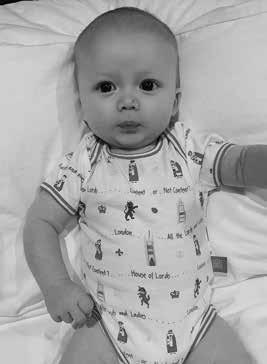
Barbara Britton née Marshall (1953) on 4 September 2021 Aged 87
Broadie
Sarah Broadie née Waterlow (1960; Honorary Fellow 2005) on 10 August 2021 Aged 79
Cansick
Alicia Phyllis Cansick née CarewRobinson (1965) on 28 May 2022
Aged 73
Cave
Kathryn (Kate) Patricia Moir Cave née Wilson (1966) on 3 December 2021
Aged 73
Clout
Celia Clout (1951) on 21 April 2020
Aged 87
Coggins
Lesley Frances Coggins née Watson (1962) on 5 April 2022 Aged 78
Cramer
Inge Cramer (1971) on 7 May 2022
Aged 69
Davies
Bridget Ann Davies (1950) on 28 April 2022 Aged 91
Davies
Janetta Kathrine (Jan) Davies née
Hawthorne (1964) on 23 August 2022
Aged 76
Davies
Rhiannon Davies (1961) on 9 March 2022 Aged 79
WOLFGANG STARRITDixon
Mary Evelyn Dixon née Barnett (1949) in about January 2022 Aged 90
Donson
Helen Cripps Donson (1951) on 11 July 2022 Aged 89
Durie
Catherine Elizabeth Durie née Green (1971) on 9 October 2021 Aged 71
Hitchins
Elizabeth Fortescue Hitchins née Baldwin (1946) on 28 November 2021 Aged 94
Freeman-Attwood
Marigold Diana Freeman-Attwood née Philips (1941) on 23 May 2021
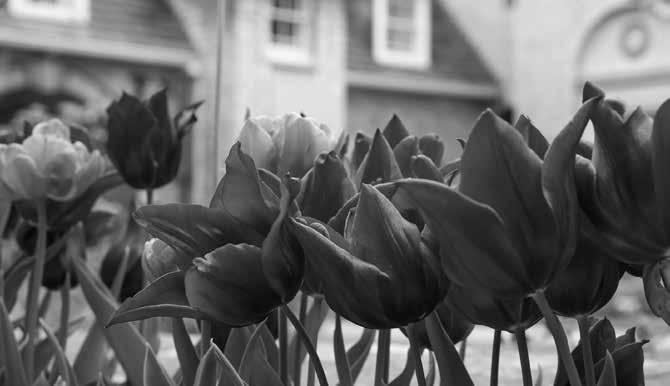
Aged 98
Garvie
Francisca Anne Garvie (1961) on 10 August 2021 Aged 78
Gibbs
Jane Cicely Gibbs née Eyre (1954) on 26 June 2021 Aged 86
Green
Rosslyn Yeo Green née Hawkins (1953) on 28 September 2022 Aged 97
Hall
Ann Hall (1954) on 10 April 2022 Aged 86
Hansen
Ann Natalie Hansen (1959) on 28 February 2019 Aged 91
Holmes
Carol Holmes née Bentz (1967) on 15 June 2021 Aged 77
Ibbotson
Patricia May Ibbotson (1944) on 24 November 2021 Aged 95
King
Catherine (Cathy) Elizabeth King (Mary Ewart JRF 1973-75) on 1 January 2022
Aged 86
Lack
Katherine Joan Lack née Taylor (1977) in 2021 Aged 62
Littleton
Cecily Littleton née Darwin (1945) in April 2022 Aged 95
Lonsbrough
Elizabeth Annie Uttley Lonsbrough née Nelson (1942) on 15 May 2022 Aged 98
McNeil
Barbara Cordelia (Cordy) McNeil née Collins (1962) on 14 April 2022 Aged 77
Mackie
Gillian Vallance Mackie née Faulkner (1949) on 17 September 2021 Aged 90
Moffat
Jane-Kerin Moffat (1949) on 10 December 2021 Aged 90
Moore
Lynden Margaret Moore (1954) on 4 January 2022 Aged 86
Morrison
Isobel Margaret Stewart Morrison née Taylor on 16 August 2022 Aged 87
Nelson
Marian Joyce Nelson (1960) on 4 January 2022 Aged 81
Osborn
Lesley Margaret Osborn née Clough (1969) on 10 May 2022 Aged 73
Perry
Daphne Claire Perry (1952) in 2021 Aged about 88
Potts
Barbara Phyllis Potts née Kidman on 14 March 2022 Aged 94
Saunders
Gillian Saunders née Gaisford (1951) on 15 September 2021 Aged 89
Shampan
Linda Anne Shampan (1968) on 21 April 2022 Aged 72
Stockwell
Juliet Mary Stockwell née Butler on 14 October 2021 Aged 82
Stokes
Prudence Mary Stokes née Watling (1948) in February 2022 Aged 92
Tomlinson
Claire Janet Tomlinson née Lucas (1963) on 12 January 2022 Aged 77
Turner
Lucia Turner née Glanville (1951) on 11 April 2022 Aged 89
Velecky
Jean Elizabeth Velecky née Stanier (1941) on 6 March 2022 Aged 99
Vice
Elizabeth Joan Spencer Vice née Wright (1948) on 11 March 2022 Aged 91
Wason
Enid Ray Wason née Lancaster (1947) on 22 October 2021 Aged 93
Webber
Cerys Ann Webber née James (1981) on 18 May 2022 Aged 59
Webber
Miriam Leah Webber née Kay (1943) on 13 September 2022 Aged 97
Woodside
Marilyn Dorothy Woodside née Wright (1960) in 2021 Aged 79
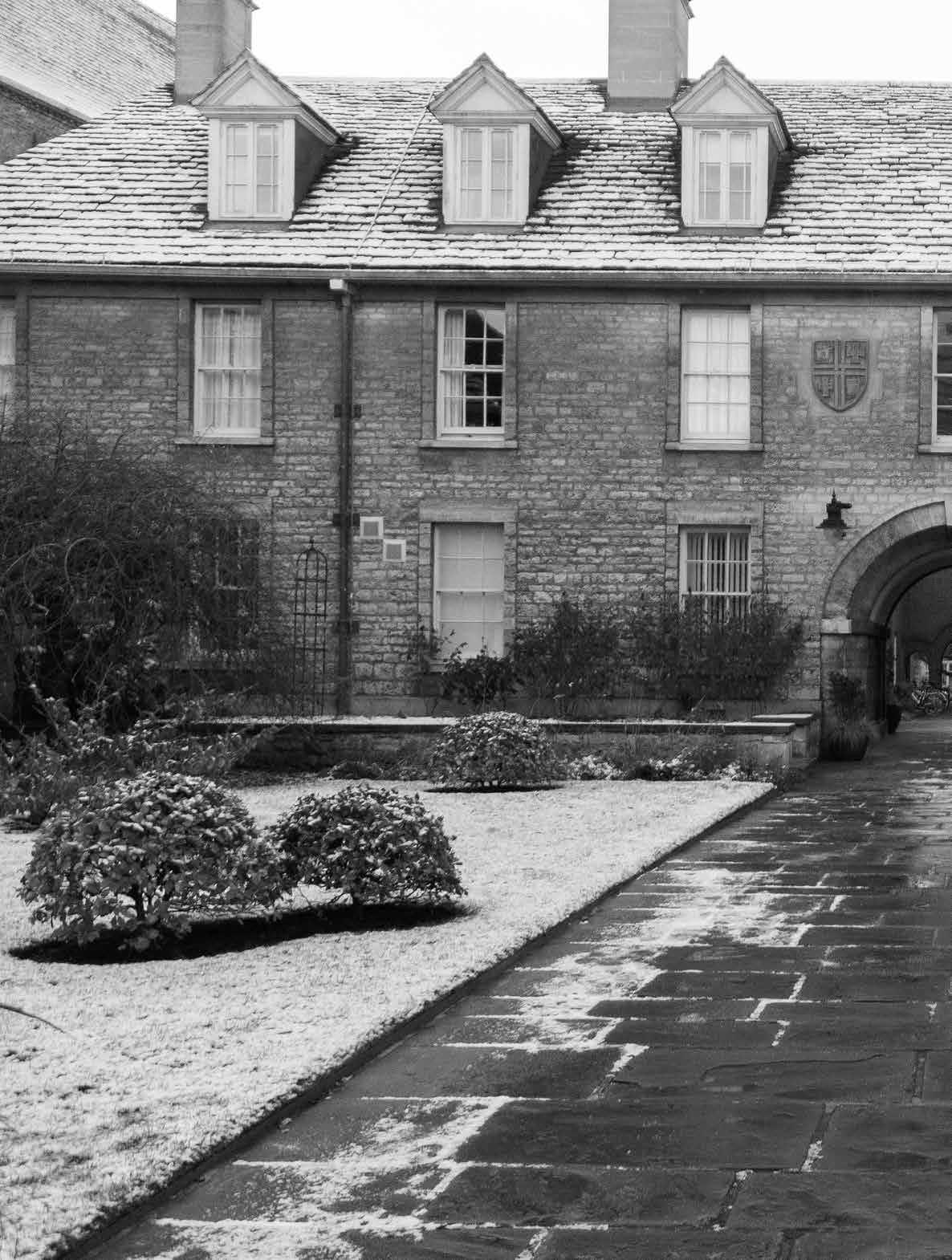
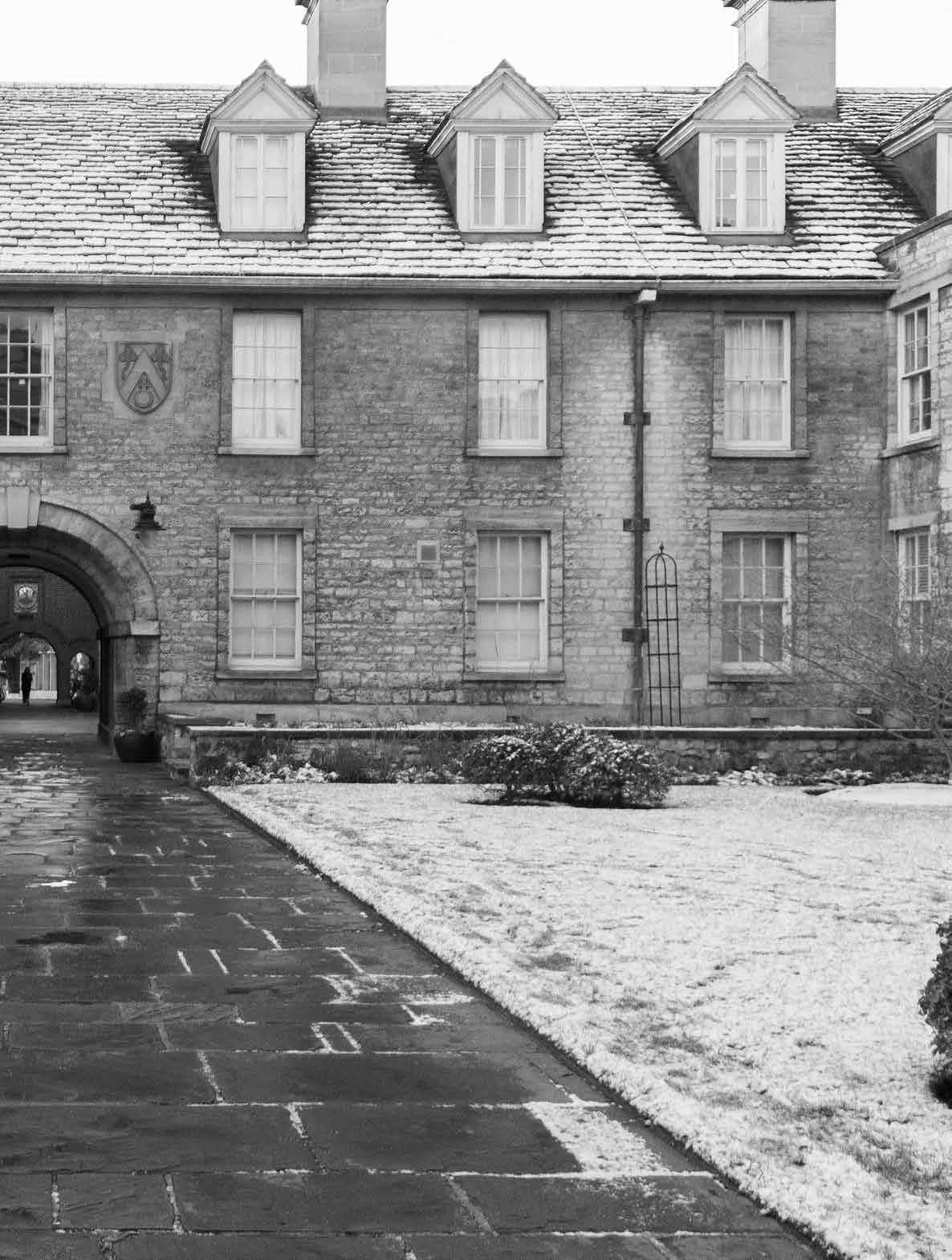
The following alumnae have died very recently and we plan to include their full obituaries in next year’s College Report : April Carter, Katherine Duncan-Jones, Joyce Reynolds, Rosslyn Green and Miriam Webber.
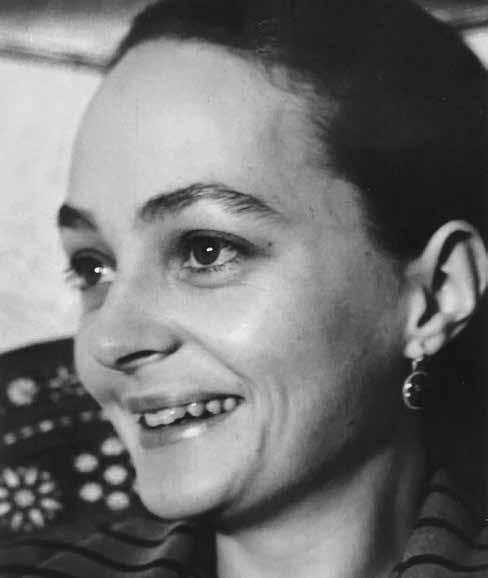
Sarah Broadie (1960, Lit. Hum.) had a distinguished career as a teacher of ancient philosophy and author of influential books on Aristotle and Plato. Her academic career after Oxford began in Edinburgh, where she married Frederick Broadie, and continued at various US universities including Yale. In 2001 she took up a prestigious position at St Andrews, where she remained, active in teaching and writing, until her death in 2021. She was much loved and sought after as a teacher and lecturer both in the US, where her distinctive voice marked her as an old-world scholar, and in the UK. Honours were heaped on her: a Fellow of the British Academy, she was made an Honorary Fellow of Somerville, and awarded an OBE in 2017.
Sarah retained an affection for Somerville and gratitude to her teachers: Mildred Taylor to whose memory she dedicated one of her books, and her philosophy tutors Miss Anscombe and Mrs Foot. Invited to speak at the memorial symposium for Philippa Foot, Sarah gave a talk on Aristotle on Practical Truth, inspired by a famous article on the subject by Elizabeth Anscombe. Generations of students and scholars have benefited from her most successful book Ethics with Aristotle (Oxford, 1991).
At Somerville we were a group of five friends. Sally Waterlow was the one who brought a philosophical slant to our conversations, once getting us to experiment being completely honest in everything we said (we ended up skewering each other); another time wanting us to discuss how we knew that dogs couldn’t read. She had a wild sense of humour, and a fund of silly songs from between the wars – I can still hear her voice, with its very characteristic upper-class timbre, singing ‘Button up your overcoat when the wind blows free. / Take good care of yourself, you belong to me …’.
I remember visits to her parents’ country house in Wiltshire, and her parents: John, a distinguished medic, who cultivated a flourishing midden derived from the family’s earth closet, and Angela, a gentle, affectionate woman and a passionate painter.
I remember bumming round Greece one summer vacation, the two of us and Sally’s cousin Philippa, Sally reciting Euripides
to a museum curator, who retaliated with the same speech pronounced as modern Greek – each was incomprehensible to the other. At one point she insisted on carrying my travel bag as well as hers, claiming that it was easier to be weighted down on both sides. This was characteristic of her as a friend: she was very keen to shoulder others’ burdens, sometimes literally. I remember, too, us riding up Mount Olympus on donkeys, fighting off predatory Greeks (Sally once striking an importunate museum attendant with our copy of the Blue Guide), hitching and sleeping rough, and coming back feeling we had been wildly adventurous.
She had been very standoffish with a number of admirers, but then in her final undergraduate year I remember her philosophical romance with an American philosophy postgraduate, Loren, who was quirky and fun. He once summoned me to ‘come and quiddify’ with them, and another time infuriated the head waiter at the Elizabeth restaurant by whisking out a collection of toy cars and getting his guests to zoom them noisily across the table. When the relationship didn’t work out, they decided to try marriage to see if that would help. It didn’t and they split up almost at once.
SARAH BROADIEI remember the damp flat along the canal which we then shared as graduate students. Typically, she insisted on my having the big main room, which was also our sitting room, while she inhabited a tiny back room – she said she needed privacy, but I felt it was more like privation. We had our circle of new, younger friends: Marina Warner, Emma Rothschild, Tim Jeal and others.
When she was a university lecturer in Edinburgh, I went there to meet her much older husband and fellow philosopher, Frederick, who played the violin, and her immature but full-sized great Dane called Dandy, who insisted on sitting on my knee.
Later, as she was promoted, she and Frederick settled in the USA, and later still, back in Britain, they lived miles away in Scotland. But we kept in touch. On her last ever visit to London we shared an Indian curry, and in her final months we used to talk regularly on the phone, long conversations, mostly about books. As always, she made me feel on my mettle not to allow myself sloppy comments or lazy thoughts. She was an intense reader of fiction, with idiosyncratic tastes (I particularly remember Sybille Bedford, Theodor Fontane). She would buy all the works of a writer she admired and binge-read them avidly. More recently, I admired her stoical acceptance of her failing lungs, which handicapped her so badly that she spent her days in bed. And I vividly remember our last conversation – her book on Aristotle had just come out, and she said calmly that she would be unlikely to write anything more. Her mind was fizzing as always, and our conversations were so thrilling that I find it hard to remember that she has died.
Maya Slater (Bradshaw,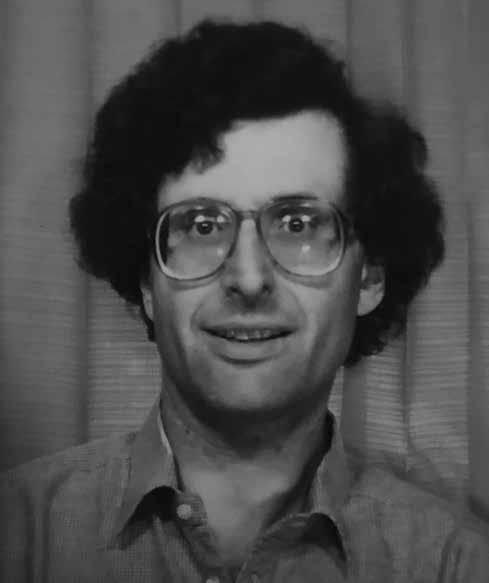
Derek Goldrei died unexpectedly on 2 July 2022 – his 74th birthday.
Derek’s real job was at the Open University where he spent his whole career, but each Thursday in term time he would descend from Boars Hill to Somerville for lunch followed by an afternoon of tutorials. His tutorials were much appreciated and enjoyed and gales of laughter could often be heard coming from House 10. He got to know the undergraduates he taught well and offered wise guidance to many over the years. He loved teaching and conveying his own enthusiasm for mathematics and, although he was able to devote himself to teaching at the OU, he appreciated this chance to meet real students regularly.
In 1978, when Jane Bridge, Somerville’s tutor in pure maths, married and moved to the USA, Derek came to our rescue. He took over a large part of Jane’s teaching and the organisation of the maths school for the year 1978-79 while her successor was appointed, and fortunately we were able to persuade him to continue, with a reduced load, for the next 25 years.
Derek’s connection to Somerville went back even earlier. His sister Diane had been an undergraduate at Somerville, and when he came up to Magdalen in 1967 he spent a lot of time in Somerville where he made many friends. When the JCR first set up a bar in the Reading Room, Derek was a regular barman
and his congeniality did much to make this venture a success. He stayed on in Oxford to do a DPhil in Logic under the supervision of Robin Gandy, thus following in Jane Bridge’s footsteps, before going to work at the OU.
Derek was a larger-than-life character both physically and in the social activity that was generated around him. He made friends with many members of the SCR and impacted on a whole generation of Somerville maths undergraduates. In 2003 he moved to Mansfield College where he was made a Fellow and continued to teach undergraduates until he retired.
Hilary Ockendon, Emeritus FellowJean Velecky died on 6 March 2022, at the age of 99. With the help of her wonderful neighbours, carers and family she was able to live at home until the end, as Jean had hoped would be possible.
Born in Victoria, British Columbia, while her parents were living there, Jean was the youngest of four children. They returned to Britain when she was two, and lived in Hythe before moving to Winchester. Jean was educated at home by her mother using the PNEU system until she was eight, and then moved on to St Swithun’s in Winchester, where she was very happy.
Jean won a scholarship to study Natural Science at Somerville in 1941. During war-time, degrees did not follow the usual pattern; Jean studied Natural Science 1941-43 and Physiology 1945-46, being awarded her BA in 1944 and MA in 1948.
She thoroughly enjoyed her time in Oxford, and as well as her studies she took part in sports including cricket and lacrosse, becoming a Double Blue.
From 1943-45 she worked at the National Institute for Research in Dairying. She was at the Biochemistry Department in Oxford with a Medical Research Council grant 1950-52, receiving her DPhil in 1950. She worked in a team studying under-nutrition after the Second World War in Wuppertal, Germany, investigating the volume and composition of the milk of mothers in Wuppertal and comparing it with that of mothers in different situations. Her other research work included mucoproteins, in the Biochemistry Department at Oxford, and hyaluronic acid in cattle knees, at the Medical Research Centre in Harwell. Later she moved to Southampton University where she researched the hepatopancreas of crabs.
She left her academic career in 1965 when she married Lubor Velecky, whom she had met playing recorders in Oxford. Playing recorders in small groups remained a pleasure throughout her life. Together they made their life in Southampton, where they raised their family and were both very involved with the local community. Among other local activities Jean was much involved in Southampton Commons and Parks Protection Society, the Friends of Southampton Old Cemetery and stewarding at St Michael’s Church Southampton. She also ran activities for Girl Guides and Brownies, including many Guide camps; she volunteered in the resources centre at a primary school, and she read to children in the children’s ward at the hospital. Jean helped the local orienteering group in many ways, having acquired an interest in orienteering from Lubor. Orienteering formed a large part of their life, Jean continuing into her 90s, representing England as a veteran and winning many national trophies.
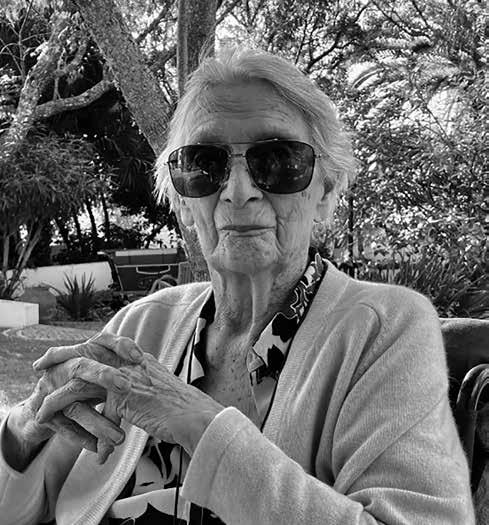
Jean was modest and unassuming and a hugely loved member of her family. She is survived by her two children, Alan and Sarah, and by five grandchildren.
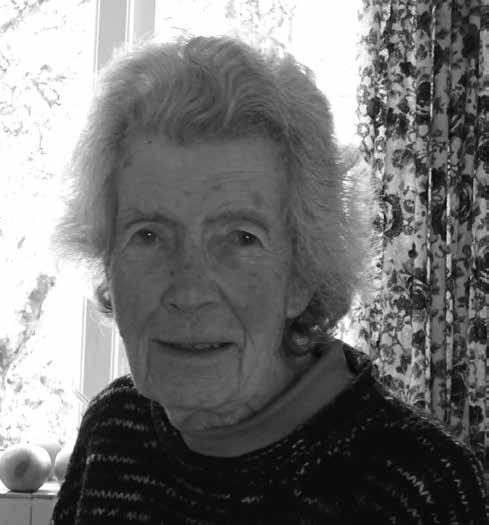
Ruth Stanier, niece
Pat and I came up in 1945 to a heady Oxford mix of straightfrom-school and just-back-from-war-service. It was Janet Vaughan’s first year as Principal, with few ex-service Somervillians but the next year they arrived in force.
Vacations started in Sartre’s Paris where bread was still maize yellow and coffee chicory-flavoured dandelion extract, the comparative luxury of Switzerland for German language learning, and back through Strasbourg, now made French again, where tram signs read ‘Parler français, c’est chic’ and women were washing their clothes in the river. That was postwar Europe.
Armed with her degree in French and German and a six-month secretarial course, in 1949 Pat went to the newly-formed Council of Europe in Strasbourg. There she met Hugh Beesley, whose national service had been as a navigator in the Royal Navy, then a senior scholar at Cambridge. His brother, Alan Beesley, had been one of the foremost names in post-war Oxford, with his friend, the sunburst Kenneth Peacock Tynan.
Pat and Hugh were married in 1951 by the British Ambassador in Paris and returned to a buzzing Council of Europe, now the principal meeting place for top European politicians. Miraculously they were adopted by a sought-after Hungarian cook, Mme Bonnar, who knocked on their door saying she would like to work for a young couple.
PATRICIA BEESLEY, OCTOBER 2021Thus started their semi-diplomatic life, entertaining visiting delegates as well as friends. Pat, an only child, always had a gift for friendship, her friends coming to encircle the globe. Their three children were educated in Strasbourg, later London and Paris.
The formation in 1958 of the European Economic Commission with its Council of Ministers meant that much European political power moved to Brussels. The Council of Europe, however, with its wide membership rising to 47 states, kept a significant place.
Hugh’s application to join the Commission, with an equally able colleague, both brilliant linguists, was rejected by a British recruitment wary of too European an outlook. Hugh retired as Council of Europe Director of Information in 1987.
Having long had a coastal holiday house in the Portuguese Algarve, they built there, above the golf course in a new upmarket development, Quinta do Lago. Both were keen on golf. They travelled widely: Australia, India, China, Alaska. Hugh’s knowledgeable interests ranged from art, music and science to theatre and good food and wine, many of which Pat shared. Hugh died in 1995.
After Hugh’s death, Pat set up a two-centre life in well-placed flats in London and near Quinta. Later she was joined by Bob Weeks, a friend from Oxford days, now a retired and widowed Cardiff neurosurgeon. They had twenty happy years together until Bob’s death in 2018.
Pat moved to an English retirement home near a daughter above Faro where she died on 31 December 2021. Pat’s family are spread through Germany, Switzerland, Portugal, France, Belgium, Norway and the UK. Truly European.
Josie Millar (1945)Professor Lalage Bown, a well-loved member of the Somerville community and a notable advocate for global Adult Education and in particular women’s literacy, was born in Croydon on 23 May 1927, the eldest of four children. Her unusual name derives from an ode by Horace. Her father, Arthur Mervyn Bown, was in the Indian Civil Service, working in the then Burma. She saw little of her parents and was educated at Wycombe Abbey and Cheltenham Ladies’ College, coming up to Somerville in 1945 to read History. She subsequently did a graduate course in adult education and economic development.
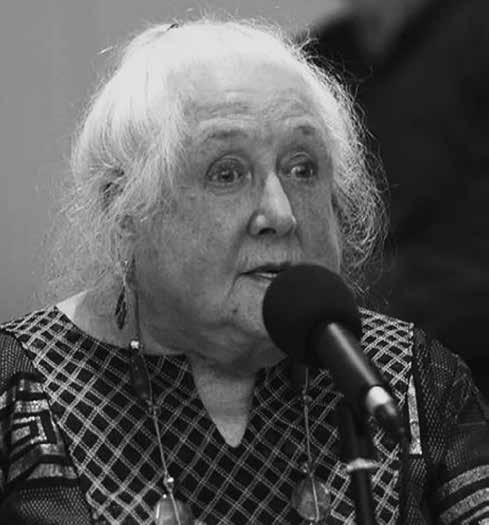
1945 was still a time of austerity in Somerville, as recalled by Lalage when describing entering college under the arch: ‘There wasn’t a garden at all, but an ugly quadrangular, black-edged tank of brownish water. It was apparently originally there to help the fire-fighters in case of war-time incendiary bombs. We frivolous undergraduates said it was where the Bursar kept the baby whales to feed us, as whale-meat did turn up on her menus.’
Lalage spent much of her career in Africa, starting in Ghana (the then Gold Coast) in 1948. There, even at the age of only 22, she questioned the department’s Britishliterature-oriented curriculum, believing that authors such as Wordsworth had little meaning for Africans; she wanted them to read works by and about Africans. Her superiors doubted such works existed but she bet them a bottle of beer that she could produce numerous examples from the previous 200 years; she won her bet within two weeks. Eventually in 1973 she edited the resulting ground-breaking anthology Two Centuries of African English, which became a core text throughout Africa.
Lalage went on to set up a network of adult education institutions in Uganda, Zambia, Kenya and Tanzania. In particular, she worked in Nigeria, where she taught at the University of Ibadan and the Ahmadu Bello University, before taking on the role of Dean of the Faculty of Education at the University of Lagos. As founding Secretary of the African Adult Education Association and an active participant in the formation of the Nigerian National Council for Adult Education, she set up the first systematic training for adult educators in Africa. She was especially concerned about women’s literacy which she saw brought about ‘a huge change in their selfworth and confidence.’ Whilst in Nigeria she took into her home five-year-old twin girls, victims of the war, and she became their permanent foster mother. She was awarded an OBE in 1977.
Lalage returned to the UK in 1981 as Head of the Adult and Continuing Education Department at the University of Glasgow, and was recognised with honorary professorships at the University of Warwick and the University of London Institute of Education.
In 1992, she retired to Shrewsbury, where she was a member of the Rotary Club and numerous international societies and
boards. She enjoyed collecting ancient gravestone epitaphs, cooking, reading and, despite ‘a slightly groggy knee’, striding over the hills. She supported the Shrewsbury museums and organised a ‘Talking Newspaper’ for the blind.
During Covid lockdown, still living alone, she mastered Zoom and in 2020 she recorded a message for Somervillians. (link please, Jack). She always retained a great affection for Somerville (regularly making the journey to attend College events into her 90s) and a respect for its values. As she recorded: ‘My small cohort of students back in 1945 included people from Denmark, France, Poland, Guyana and New Zealand, as well as the daughter of a Nottinghamshire coal miner and a student from a background such that, to my amazement, she’d never learned to make her own bed. In addition, my Maths friend had worked during the war as a computer (in those days, a computer was a human being), and my literature friend later became a distinguished novelist. In what other environment can one go forward in life with such a range of friendships and of varied knowledge?’
Lalage died, aged 94, after a brief stay in hospital, following a fall.
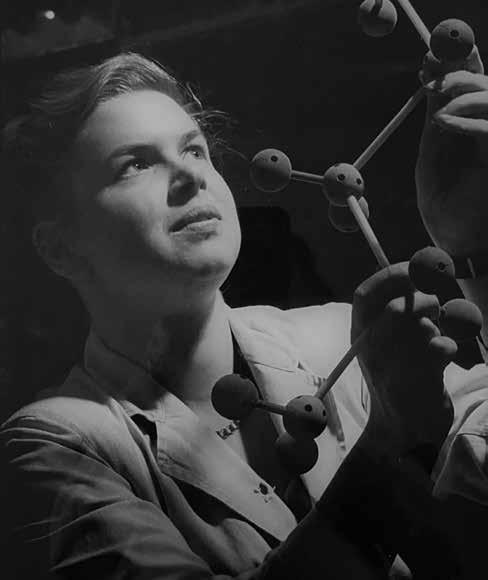
Cecily Darwin was born on 15 November 1926 in Edinburgh, where her father Charles Galton Darwin was Tait Professor of Natural Philosophy at the university. Her paternal greatgrandfather was the naturalist Charles Robert Darwin, and her grandfather was George Howard Darwin, Plumian Professor of Astronomy at Cambridge University. Through her mother Katharine Darwin (née Pember), Cecily was granddaughter of Francis William Pember, a vice-chancellor of Oxford University in the second half of the 1920s. And it was to Oxford, specifically Somerville, that she turned after completing her secondary education during the war in schools in Hertfordshire and Cambridge. She and her next brother remained in England while her parents and three younger brothers were in the United States on a British scientific mission in 1941-42.
Cecily studied Chemistry at Somerville, specialising in X-ray crystallography under the Nobel Prize-winning Dorothy Hodgkin. One of Cecily’s contemporaries in the Chemistry programme was Margaret Roberts, later Thatcher. During the 1980s we pressed Cecily for what she could tell us of Lady Thatcher’s student days, but she always claimed that they had not known each other well. She spoke more often and fondly of her great friends from Somerville, Patricia Mears (later Beesley) and Josie Hamilton (later Millar), with whom she maintained life-long friendships. Cecily also retained a great affection for Dorothy Hodgkin, mixed with a fair bit of awe. She once told us of a nightmare she had had which involved the terror of being unprepared before a meeting with her redoubtable tutor. However, Hodgkin acted as co-author to Cecily’s 1950 Letter in the journal Nature which described her thesis work.
In 1949, having graduated from Somerville, Cecily was offered a research fellowship under Arthur Lindo Patterson at the Institute of Cancer Research at Fox Chase, Philadelphia, Pennsylvania. At a New Year’s party at the end of her first year in the US she met John Littleton, a Philadelphia native and veteran of the Pacific War who had studied Jurisprudence at New College while Cecily had been at Somerville. Their paths had not crossed while they had been at Oxford together, but fortunately did in Philadelphia. They married in Cambridge in 1951 and she spent the rest of her life with John, a lawyer in a Philadelphia firm, in Wynnewood and, later, Haverford, Pennsylvania. She had her first child in 1952 and resigned from her research post in 1953 (after having published another article on her crystallographic research) to raise her growing family – a further three children between 1954 and 1963. She kept her scientific interests alive and worked as a volunteer with Louis C. Green of the Astronomy Department at Haverford College on the spectra of distant stars. She did much of this work at home, with graph paper spread across the dining-room table as she did calculations with her trusty slide rule. Gardening was her great passion. She took botany courses at the Barnes Foundation so she could work as unofficial landscape gardener at her sons’ school, The Episcopal Academy in Merion. She continued that interest when she and John moved to The Quadrangle, a retirement community in Haverford, in 2002. John died there in June 2009 and she died, peacefully in her sleep, on 14 April 2022. She is survived by her four children, seven grandchildren, and one great-grandchild. She always emphasised her English roots, and two of her descendants have in turn settled in the UK.
Charles Littleton, sonElizabeth, the only daughter of Marjorie and George Baldwin, was brought up in Northamptonshire initially, then the Fens. She went up to Somerville to read History, after a year out at the Ecole Hôtelière in Lausanne, where she learnt some of the mysteries of French cooking.
At Oxford she made life-long friends, Edna Thomas and Christian Carritt in particular, and clearly enjoyed being part of a lively crowd. She met her future husband, Tom Fortescue Hitchins of Trinity College. They married in 1951 at St Paul’s Knightsbridge. At the time she was working in an advertising agency in London, but after marriage she followed Tom in his military career.
Once Tom started to work at the Ministry of Defence in Whitehall she began her own career in the Civil Service, as a Principal in the Department of Transport, and later Assistant Secretary in the Department of the Environment. Here her portfolio included preparatory work for the Channel Tunnel. Her time at Marsham Street was particularly happy as it enabled her to drive home for lunch at First Street, after which she would frequently take her first pug Augustus back to the office in the afternoon, combining her two great interests: administration and dogs.
After she retired from the Civil Service in 1982, Elizabeth focused on her great capacity for friendship: old friends from Oxford and the Army, new friends in London and later many friends in Somerset. She was naturally sociable. She began to paint, initially attending classes in London, with frequent painting trips abroad, followed by classes in Somerset once she had moved there. She was not much interested in the technical but she was clever at painting en plein air, dashing things off before returning to base for a drink or snack or another paper plate on which to mix her colours. She loved poetry and had a formidable capacity to recall some very long poems she had learnt at school.
Elizabeth became a Roman Catholic whilst living in Tripoli in 1962. She took this very seriously, enjoying many an intense discussion. From the mid-1960s she lived close to the Brompton Oratory, and used to slip in and out of mass several times a week. She was also keenly aware of her Christian duty to help others less fortunate than she was. I remember often returning to First Street to find another hopeless couple ensconced on our sofa while my parents handed out tea and advice and usually cash too.
The Somerset years, at least twenty spent with my father, were happy ones. There were the dogs and the rescue chickens in a pen in the garden: saved from battery farms, only to be sacrificed to the jaws of local foxes, to great lamentation. And there was a life with a comforting structure, punctuated by frequent drinks or meals, in the garden whenever possible. There were shopping trips which my parents both enjoyed. After my father died she missed all this very much, particularly
as she could no longer drive. Over her last year she battled on bravely, never really believing she would not be back on the road soon, often talking about moving to London. It was brave and it was feisty, so typical of my mother, a force of nature who left this earth on the tail winds of a storm. We will all miss her terribly.
Susan was born in 1929 to novelist Antonia White and geologist Rudolph Glossop. But her relationship with her mother was not a happy one. Later she summarised it succinctly in a memoir of Antonia: ‘Antonia was not a good mother to me. She conceived me out of wedlock, put me into a home for the first year and a half of my life, and handed me over to nannies and boarding schools for much of the remainder of my childhood.’
The young Susan equally disliked London, but childhood holidays at her grandparents’ home in Binesfield, Sussex, inspired a love of horses and countryside that was to last the rest of her life. She wrote: ‘It was summer, and the dew was sparkling. I ran down the garden … along by the yew hedge. I ran with such speed and lightness that I seemed weightless. There was a taste of freshly baked bread in my mouth.’
Having attended the Godolphin School, Salisbury, where she decided that ‘rules were not for me’, she won an Exhibition to study Modern History at Somerville College. After a nervous breakdown, she left Oxford without a degree, but won the Vogue Talent Contest in 1952, and started a career in journalism, later becoming a regular contributor to radio programmes such as Any Questions and Woman’s Hour.
Eldest son Andrew was born (1952), prompting his parents’ move to Sussex. Rejecting the polluted London air and expunging memories of her own city childhood, Susan wanted a country upbringing for her children. The rural village of West Hoathly became base-camp for her and husband Thomas Chitty, an aspiring writer she had met at Oxford.
Her first novel, The Diary of a Fashion Model (1958), which drew humorously on her experiences at Vogue, came out just as the couple moved to Kenya for two years, Thomas then working in PR for Shell. Their adventures included driving 3,000 miles with the children in a Land Rover from Nairobi to Cape Town. Back in Sussex, Susan wrote two more novels: White Huntress (1963), about daring debutantes in Africa, and My Life and Horses (1966), inspired by her love of horses.
The family then lived in America between 1965 and 1971 where Thomas, now a successful novelist, taught literature. Somewhat frustrated by her role as a housewife, Susan decided they should have more children; Miranda and Jessica arrived in 1967 and 1971.
But the greatest adventure was still to come. In 1975 they set off with Jessica (then aged 3), Miranda (7), Andrew (21), two donkeys and a dog to walk 1,700 miles across Europe starting from Santiago de Compostela. The story was told in the co-authored The Great Donkey Walk . Asked later why she had agreed to go, Susan said because Thomas’s alternative suggestion – sailing a small boat around the world – seemed infinitely more dangerous.
Continuing her literary career both before and after, Susan published biographies of Anna Sewell, Charles Kingsley, Gwen John, Edward Lear and Henry Newbolt, as well as the memoir of Antonia White. Her biographies were mostly about seemingly prim Victorians, but she was always able to find some undivulged secrets about their private lives, and was never one to shy away from a good story.
A natural entertainer, she loved dressing up, charades and singing. She learned and imparted dozens of songs and revelled in her rendition of The Cruel Mother, one who murdered her two unbaptised children, using the original Sussex accent.
Another co-authored book, On Next to Nothing, taught frugality, an area on which the couple could never agree. But this did not prevent them from entertaining. Thomas cooked and Susan was the star of the show. She was flamboyant, elegant, fearless, forthright, witty, inventive, and irreverent but always great company.
Towards the end, she lived at Miranda’s home cared for by her two younger children. She died there after a short illness in July 2021.
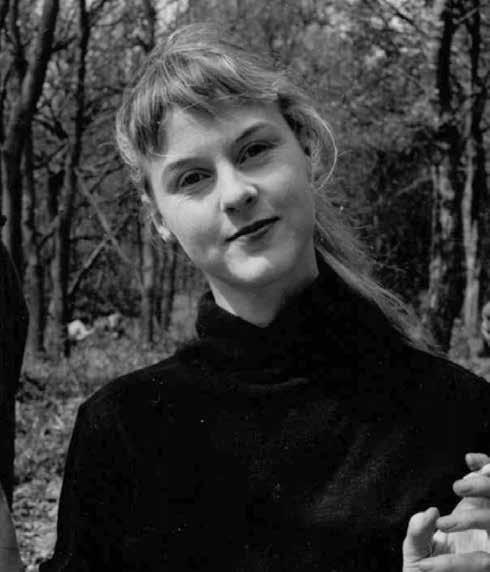
Gillian was born in Iffley in 1931, but in 1941 she moved with her mother and sister to Ship Street in the heart of Oxford. Both girls went to Greycotes School and then to Westonbirt on scholarships, as Gillian described in a memoir about her school years. In 1949 she went up to Somerville as a Powell Scholar, obtained the BA (Hons) in Zoology in 1953, and MA in 1958. She then embarked on a doctoral programme under Prof. Sinisa Stankovic in Belgrade. Her project involved the speciation of turbellarians in streams feeding into Lake Ohrid, but the thesis never came to fruition as she married her boyfriend, George Mackie, in 1955 and this was followed by the birth in Oxford of the first two of their five children. Her time in Yugoslavia was far from wasted as it left her with a fascination for the art and architecture of the great mediaeval sites of the Serbian Orthodox Church, such as the tenthcentury monastery church of Sveti Naum in Ohrid. George was appointed to a lectureship at the University of Alberta in 1956, and the couple made Edmonton their home for twelve years and had three more children. Rapid advancement and friendly people made up for the awful winters, but in 1968 George obtained a position at the University of Victoria in British Columbia, a beautiful part of the world with a climate much like that of England. Gillian was gifted in the arts and crafts, and found time to weave rugs from wool she dyed with her own home-made dyes and to make quilts and stoneware and porcelain pottery, but it was not until her children were beginning to fledge their wings that she could start taking university courses again, initially on a part-time basis. With a
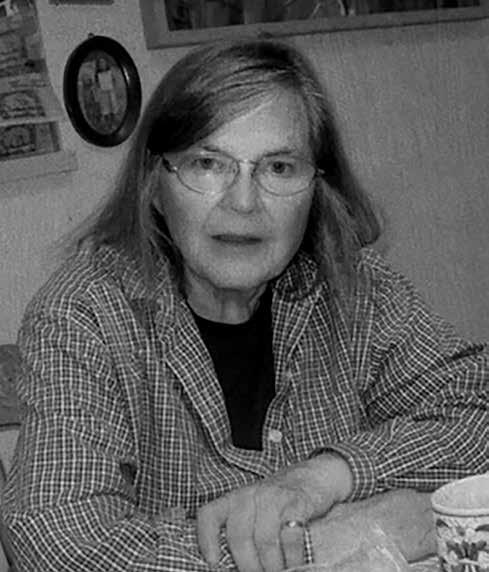
President’s Scholarship she started learning Serbo-Croatian and taking courses in art history. This led to the BA degree in 1981 and the MA in 1984. Finally, in 1991, almost forty years after her interest in mediaeval art was first aroused in Macedonia, she obtained her PhD with a brilliant doctoral dissertation on mediaeval chapels that won her the Governor General of Canada’s Gold Medal. Gillian’s focus was on late antique and early mediaeval art and her base for much of her doctoral and postdoctoral work was the British School at Rome, where rooms were available for visiting scholars and the library was richly stocked with material relevant to her work. A stream of publications over the next ten years culminated in publication of her book Early Christian Chapels in the West (University of Toronto Press, 2003). Her forte was the interpretation of mosaic images. An outstanding iconographic achievement was her identification of the ‘running saint’ in the Mausoleum of Galla Placidia in Ravenna as St Vincent of Saragossa, not St Lawrence as previously supposed. Key elements associated with St Vincent’s martyrdom can be clearly recognised in the panel mosaic. Gillian taught courses in the History in Art Department at the University of Victoria for several years and continued to travel and do research well into her seventies. Her last major paper came out in 2010. Five years later she fell ill with Alzheimer’s. She is survived by her sister Patricia, husband George, and daughters Christina and Ra.
George Mackie
Bridget was born on 6 December 1930, the daughter of Philip Taliesen Davies. Her father came up to Oxford in 1914 and one of his sisters to Somerville in 1913. Her stepfather, Herbert Freundlich, was a distinguished physicist who had been called to an atomic bomb project in Chalk River, Canada, in the Second World War, living there with his wife and stepdaughters. On returning to England, the family lived in Cambridge and Bridget attended the Perse School, coming up to Somerville in 1950 to read Physiology. Her sister Gillian followed her to Somerville in 1953. Bridget described Jean Banister as an outstanding tutor and friend and the course as challenging and exciting. But she also found time for other activities, mainly singing, politics and conversation. She made lifelong friendships, most notably with Liz McLean (Hunter, 1950).
After qualifying Bridget did jobs in obstetrics, paediatrics and general medicine before moving into psychiatry, working in and around London until 1970 when she became a consultant at St John’s Hospital, Stone, near Aylesbury, and moved to Long Crendon. Bridget described her work as ‘interesting, often humbling and exhausting. I don’t think I would have lasted until 1992 when I retired without the refreshment of music, singing in various choirs and playing my late-start cello (with more enthusiasm than skill), mainly string quartets and trio sonatas, with tolerant friends (including Liz McLean). A large untidy garden, holidays walking, particularly in Cornwall and the Lake District, and birdwatching helped too.’ She sang second soprano in the Thame Chamber Choir for many years, favouring Bach
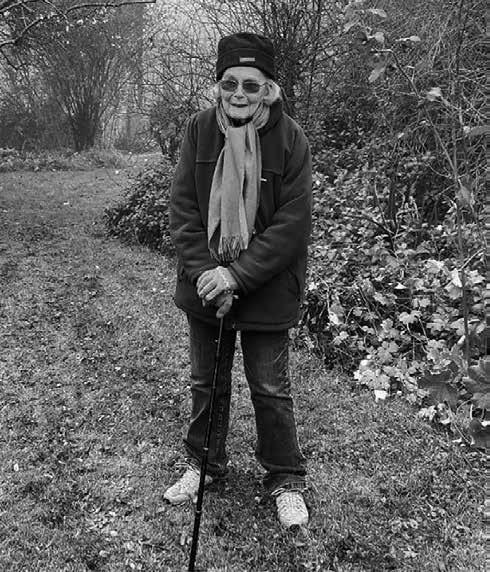
and William Byrd over more modern composers. Not really a churchgoer, she explained to the vicar that ‘Bach was so close to God as to be enough’.
Bridget is described by her friend Andre McLean as extraordinarily kind and generous with her time. ‘The long telephone discussions about politics, developments in medicine and what’s growing in the garden! She strongly believed in community action. Helping those who needed help. Making the system fairer. Her enjoyment in meeting people, her clear thinking, informed her work as a psychiatrist.’
After retirement Bridget became more involved in village activities and increased her time for music. She also travelled more, including to Israel, Chile, Peru, India, and Nepal. In the last ten years until lockdown she worked as a volunteer in the Long Crendon village library; she enjoyed that very much though sometimes challenged by the computer. According to Andre, taking out a book might have risked taking a little longer than usual as she grappled with the antiquated Buckinghamshire County Council computer system. ‘Even longer if you engaged in a conversation. She was extremely well-read and had backpacked extensively all over the world. A sharp mind, you had to applaud her prodigious knowledge and storytelling. Not a conversation for the faint-hearted.’ She conquered her technical phobia and purchased a laptop in 2010, becoming proficient at email and, during the pandemic, at Zoom.
She belonged to the Labour Party for ten years in London and after retirement re-joined as an active member, enjoying canvassing in the early days and being chair of the local Brill
branch for many years. The Secretary of the branch at the time, Professor Sir Roderick Floud, said that Bridget ‘was quietly inspiring’ and that under her leadership the branch had built up its membership and its ability to run more candidates in local elections.
Bridget never married and had no children; this was a sadness to her but she said it might have made it easier for her to concentrate on work. Her sister Jill also had no children. Jill died in 2006 but they had enjoyed many holidays together and lived only five miles apart during the last ten years of Jill’s life.
Lucia was the younger daughter of Stephen and Ethel Glanville, born in Highgate on 27 November 1932. Her sister, Catherine, remained her closest friend till she died in 2012. Lucia was sent to Channing School at the outbreak of war and in 1941 she was evacuated with her mother and Catherine to Canada (the next two liners carrying children to North America were both sunk). Those two years in Toronto, with riding in ‘The Ravine’ and summer camp at Lake Oconto, became precious memories.
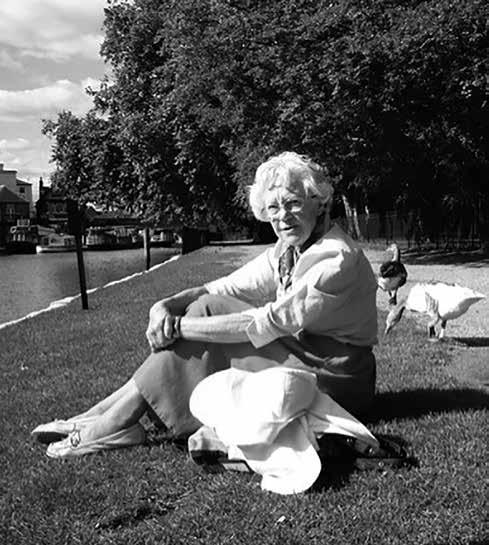
Back at Channing, Lucia won a scholarship to Somerville. Gaining a First, specialising in Middle English, she stayed up to take a BLitt with a treatise on Sir Gawain and the Green Knight. She was launched on a promising academic career. Her first employment was to be a lecturer in English literature at King’s College London. First, though, she spent a few months in Cambridge housekeeping for Stephen, who was now Provost of King’s College. Tragically, that ended abruptly in April 1956, when Stephen died suddenly.
Two years at King’s College London ended with Lucia’s appointment as a tutor in LMH, Oxford, and university lecturer in Middle English. That, however, was to be the last step in her university career. Lucia had an acute mind, an exceptionally retentive memory and a gift for clarity; but she also had a large heart, loved people, and had a strong commitment of faith as a Christian. Endowed with a superb singing voice, she had re-joined the Bach Choir, and it was there she got to know a young man from the basses whom she recognised from his tenure nine years earlier as vice-president of the Christian Union. Christopher and Lucia were engaged two months later and married the following summer.
Their first home was in Godalming, Christopher being newly appointed head of Classics at Charterhouse. In the seven years there, their three children were born. Lucia started work on a new textbook of Border ballads, but, regretfully, abandoned it in favour of being an almost full-time mother. In 1968, Christopher became head of Dean Close School Cheltenham. The children were starting school so Lucia found time to teach and to sing. In 1979, the family moved to the headmaster’s house at Stowe School. Lucia supervised girl-boarders in the house, as she had done at Dean Close. Her kind but firm care of them was remembered with gratitude. Her teaching commitment grew.
Lucia was the ideal headmaster’s wife, providing rock-like support to her husband while being a most accessible, warmhearted friend to pupils, staff and their families. Her calm, wise advice and sympathetic understanding of adolescence, leavened by her irrepressible capacity for mirth, were invaluable as the schools moved into full co-education.
In June 1989, their elder daughter, Rosalie (married in 1987), was killed in a road accident. The next morning, with unbelievable courage, Lucia spoke in the school chapel and was heard in shocked, admiring silence.
Back in 1966 the family had bought their first house, a seaside cottage in Gower. It proved to be the ideal family base for holidays, usually shared with family and friends. In 1984, that was replaced by Rosemullion in Great Rollright. It was to there that Christopher and Lucia ‘retired’. But between 1990 and 1999 they added a second, smaller house in outer Birmingham where together they spent the middle of each week as informal remedial teachers in a primary school. Meanwhile Christopher was embarking on ordained ministry in Oxfordshire at the weekends. This ministry was always a team effort as had been their work at Dean Close and Stowe. Lucia served as churchwarden for many years and was a heroic pastoral visitor. Then, as her responsibilities diminished, she found time to develop her understated skills in art and crafts. In 2012, after a year of declining health, Catherine died. Lucia’s grief was deep and silent; some of her sparkle had gone. By 2020 the ‘children’ were married with young of their own to whom Lucia was a much-loved Granny. In 2021, Lucia and Christopher celebrated their diamond wedding with a village party, gloriously released from lockdowns.
Christopher TurnerAnn Hall, an only child, was born in Derby to (Herbert) Leslie and Dora Hall on 1 May 1936. The family moved to Newcastle-under-Lyme when Ann was 15. Ann came up to Somerville in 1954 to read Geography. Her family had no academic inclinations, but Ann had many fond memories of her time at Somerville.
It was Ann’s dream to become a hospital almoner (later redesignated ‘social worker’). She trained at Bedford College, London, and spent a few years working for the Invalid Children’s Aid Association. Sadly, health issues prevented her from pursuing this career further but she remained full of compassion for those in need and, whenever possible, sought to help them.
Ann was also a lifelong, devout Christian and worked for the Bible Society, as long as her health permitted, in London and subsequently in Swindon, when the Society relocated there in the mid-1980s. The church remained a central feature in Ann’s life and she was an active member at her local ecumenical church in Swindon for many years, although faithful to her roots in the Church of England.
A remarkable woman for her modesty and her endurance of disabling health problems, she will be fondly remembered.
Avril Greig, cousinAnne was born in 1932 in Pomona, and lived her first four years in nearby Claremont, where her father, Paul Havens, taught literature at Scripps College. In 1936, Paul moved his family to Chambersburg, Pennsylvania, where he had accepted a post as president of Wilson College.
After graduating magna cum laude with a BA in English Literature from Mount Holyoke College in Massachusetts in 1953, Anne was awarded a Fulbright grant to read English at Somerville. In 1958 she completed a PhD in English at Yale.
She taught for two years at her alma mater, Mount Holyoke, then accepted a comparable position at Pomona College, in Claremont, returning thus to her birthplace. She met PhD chemist Martin Fuller at Pomona, and the two were married at St Ambrose Episcopal Church in Claremont on June 17, 1961. Children Kate and Peter followed soon after in 1962 and 1963.
She then taught at the University of Florida, the University of Denver, Prescott College in Arizona, the Colorado Rocky Mountain Prep School, and again at the University of Denver.
In 1973, she was offered and accepted the Dean of Faculty position at Scripps College. She later worked at Claremont Graduate University as assistant to the president, then moved to Sherman, Texas, where she took on the Dean of Faculty role at Austin College.
She was a gifted teacher who read voraciously and loved to learn. She instilled in her students a deep respect for English and other languages and cultures and their respective histories, as well as a love of Chaucer and other medieval literature, and Old English, including Beowulf
In 1996, the couple retired to Albuquerque, New Mexico. Martin died in 2007, and in 2014 she moved to La Vida Llena Life Plan Community, where she led an active life. She swam every morning well into her eighties, and continued to involve herself in book clubs and to share her love of literature and learning with her friends and neighbours. She will be missed by many.
Peter FullerJane came up to Somerville in 1954 to read History. Jane loved her time at Oxford, and kept in lifelong touch with the many close friends she made there.
Jane had an adventurous upbringing. She was born on 14 October 1935 in Tanga, then Tanganyika, the eldest of four children of Jack and Maureen Eyre. Jack worked for the Colonial Service advising on agriculture. Maureen, from Derbyshire, had had a strict sheltered Catholic upbringing.
Towards the end of 1944 whilst Europe and Africa were still ablaze with the horrors of the Second World War, Jack and the family were posted to Palestine. As the Palestinian situation became worse Maureen and the children were evacuated to Britain on a troop ship through the Mediterranean.
Jane had little formal schooling before the age of eleven. But she had plenty of access to books and developed a lifelong passion for literature. When the family was reposted to what was then Rhodesia, Jane was left behind in England to attend a convent boarding school in Hastings.
The convent school was not a happy place for Jane, and she would entertain with stories of her escapades and determination to experience life outside the rigid convent rules. Even Christmas, Easter and summer holidays were difficult, her parents advertising and arranging for unknown chaperones to care for Jane. She did not see her family for close to three years. Through all of this she drew solace from books and poetry.
Jane was clever, excelled at school, and fulfilled her dream of winning an Oxford place to read history. At Oxford Jane was known as lively and, in her tutor’s words, a ‘social butterfly’. The nameplate on her door, ‘Jane Eyre’, drew attention though more was not needed. Jane’s room mantelpiece was covered in invitations, and she recounted that it was not uncommon to go on two dates on one night. And Jane said that the girls always knew what they were doing on a Friday night, as the men students would always ask them out for fish suppers. Daisy and Kitty Eyre, two of Jane’s three granddaughters, commented that ‘this always sounded very glamourous!’ A friend wrote: ‘Please tell Jack that his daughter is the boon and bright light
of Somerville – no really…. – a girl who lightens the days and makes living here possible. Words cannot describe.’
The lifelong friendships formed included Anne, Lyndon, Elizabeth, Halina, Giustina and many others. She, and their families, would meet regularly over more than fifty years.
Jane married Patrick not long after leaving Oxford, twenty years older, film critic of the Daily Telegraph, and a decorated wartime torpedo Wing Commander. Patrick was not a university graduate, but had the same passion for reading, for theatre, for opera and for European holidays and culture. Jane had embarked on a career in the Civil Service and was studying law but abandoned these to support Patrick, including joining him at film festivals from Hyderabad to Chicago, and to bring up their family. Jane and Patrick had two children, Christopher and Penelope, Penelope herself going on to read History at Somerville.
The hallmark of Jane was that she got on with everybody, from a brief shop assistant or restaurant waiter encounter, to the staff at her care home, to her English-as-a-foreign-language Berlitz students, to her lifelong friends and family. She always took an interest in others, listened really well, and had an excellent memory. She could fully empathise with someone else’s story as well as tell her own vividly and engagingly.
Relationships are what matter; some of Jane’s very best were from Oxford. Jane will be much missed by friends and family.
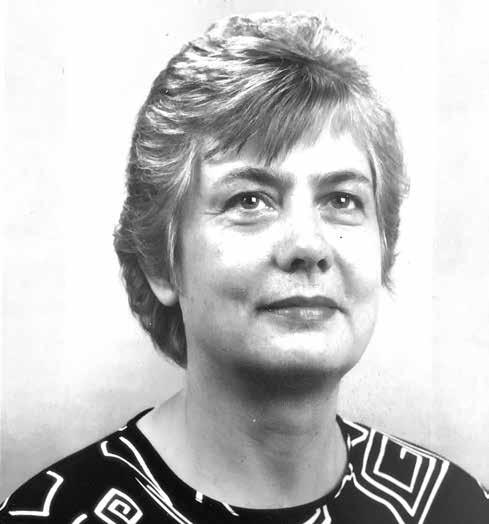
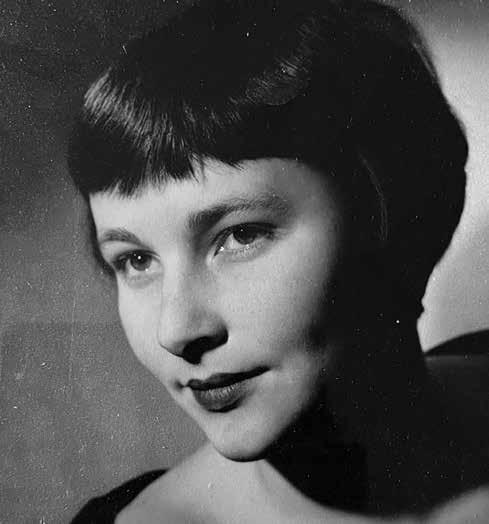
Lynden Moore, who died on 4 January 2022, graduated from Somerville with a degree in PPE, and went on to become an applied economist and author of several books on subjects including international trade, the British cotton industry, and the British economy during membership of the European Union. She was a loving mother to two children, a keen gardener, a wonderful if short-tempered cook, and throughout her life retained a passion for world politics, and above all events in South Asia, the region where she spent her first childhood years.
Moore was born to missionary parents in the northern Indian hill station of Shimla in May 1935. She spent the first ten years of her life in India, including a long stay in a hospital after contracting rheumatic fever, due she believed to wearing inappropriately light clothing for the town in the Himalayan foothills where she went to school. The experience of spending six months in a hospital flat on her back, she used to say, meant she was always able to rely on her imagination to entertain and distract her. The sights and smells of northern India left an indelible impression upon her, as did the experience of seeing poor Indian house servants working for her parents. For the rest of her life, she refused to eat sandwiches from which the crust has been cut after witnessing how leftover bread was handed to the staff of her home to supplement their diet.
Upon returning to Britain with her family in 1945, Moore found herself both excelling as a student at school in Slough and also handling multiple responsibilities at home, including caring for a brother with Down’s Syndrome and a sister with brain damage. Her skills as cook, child carer and general substitute mother – and her fierce love of her sister Daphne, who died aged 24
Penelope and Christopher Gibbswere legendary in the family by the time she was in her teens. Gaining a place to read Chemistry in Oxford provided an exit from the onus of family life, and also a chance to express her disagreement with her parents’ religious beliefs. Within the first year at Somerville she realised that her deepest longing was in fact to study real-world affairs, and as a result she managed to get permission to switch to PPE.
Her career as a professional economist began at the Agricultural Economics Research Institute in Oxford, under the stewardship of Colin Clark, and soon after she married the Latin scholar Dr John Briscoe and gave birth to two children, Celia and Ivan (her divorce came a few years later). Moving to Manchester in 1970, she took up the post of lecturer in the Department of Economics, and over the course of 25 years trained generations of economists, including postgraduate students from numerous countries. Her regular production of books, articles and lecture courses could not, however, hide her dissatisfaction with the department’s refusal to give her proper credit and promotion, or her desire to escape and rediscover the world. This she finally did after retirement, when she returned regularly to India, and, in 2006, against the advice of almost all her family, embarked on a trip to look for work as an economic adviser in Afghanistan. Until the age of 80 she continued to devote hours to studying Farsi and Spanish, and regularly attended seminars in Oxford.
Lynden’s last years were spent in the Freeland Care Home, where she received regular visits from her children and grandchildren until the pandemic struck, and could enjoy the Oxfordshire countryside that she so loved.
Ivan Briscoe, son
My mother died in April 2022. Near her house in Norfolk, beech trees spread their canopy, a glimmer above the bluebell haze in the woods where she walked. I picture her there across the years of my life.
I was born when she was newly in love with my father, George Barker. They moved to a tumbling farmhouse in Norfolk where she was a glamorous figure, in big hats and fur coats, carrying a picnic to the bluebell woods. A decade on, she rode horseback, children behind on ponies. Another decade, dogs, teenagers with her small grandchildren on the shoulders. Elspeth teaching wild flower names, Latin and vernacular, sharing her love of the countryside. Another decade, bigger grandchildren, Elspeth’s beloved Labradors, and, lo! A unicorn, created by Elspeth for her granddaughter. Elspeth lived with the magical relationship between the imagination and reality central to her existence. Her childhood was inspiration for O Caledonia. Published when she was 51, the novel depicted a painfully sensitive heroine living, and yearning for drama, in a Gothic Scottish castle.
Elspeth was born in 1940, the eldest of five children. Her family lived between Drumtochty Castle in Aberdeenshire
and Ely in Fife, and Elspeth’s upbringing was traditional. She loved the Highlands, and in O Caledonia reveals a metaphysical relationship with nature. This quality, and her passion for reading, were constants in a life that became filled with much more and, as The Times obituary said, ‘was never, ever dull.’
After St Leonard’s School, St Andrews, Elspeth read Modern Languages at Somerville. She was 17, and adopted a style, pale skin, black eyeliner, wild black hair and dramatic clothing, that would remain with her always. She was beautiful, erudite, funny, yet hopelessly impractical, had no clue about money and little interest in domestic issues. She was shy but had hundreds of friends, was always extremely short of money, but uninterested in comfort, choosing a wooden dining chair over the sofa for watching television.
From Oxford, where she fell asleep in her Finals, Elspeth moved to London and worked in Foyles bookshop and as a waitress in a Lyons Corner House coffee shop. Her friend Kate Leavis says she was ‘extraordinarily attractive to men’. Her own stories included numerous fiancés and a man who said he had married her by proxy and would take her back to his home in Nigeria.
Elspeth was 24 when I was born. She had met my father, a famous poet and womaniser, through his former partner Elizabeth Smart. My parents’ life in Norfolk was inclusive of friends and family. The parties at our house were legendary for the explosive behaviours, the poetry and the range of people present. As children in the midst of this sprawling Bohemian world, we lived enthralling lives, largely oblivious to the literary life of our father, and the pioneering spirit of our mother, who drove illegally to her job teaching Latin at a girls’ school with a blonde wig on to disguise herself from the police (she passed her driving test on the 24th attempt).
My father lived to see O Caledonia published and was proud of her. My mother couldn’t accept the finality of his death. Her
success took her to Australia and New York. When she came back, she acquired a horse and another Labrador and wrote and gardened, telling great stories to friends who came to laugh and drink at the kitchen table. She learned Russian, and Ancient Greek at summer schools in London, and taught creative writing at Norwich Art School, and on Arvon Foundation courses. She reviewed brilliantly for various newspapers and drank her friends under the table.
O Caledonia, ‘one of the best least-known novels of the 20th century’, according to Ali Smith, was reissued in 2021. By then, Elspeth lived quietly in a residential care home. As this book, rich with incidents of her childhood, became widely read, in her mind she also inhabited more often the sandy beaches of Ely in Fife, and her childhood highland haunts.
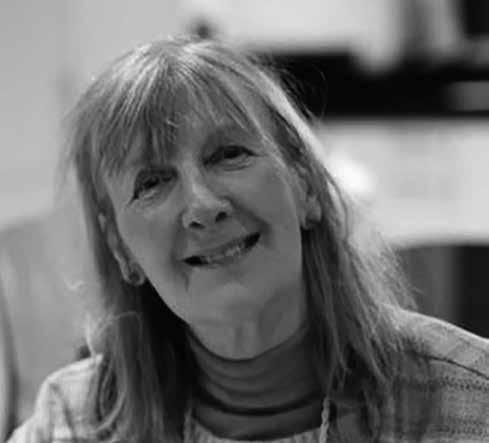
In her last days, she talked of the canopies of beech trees and the picnics in the woods she loved. She is buried in the village churchyard close to the bluebell woods. She is hugely missed, and unforgettable.
Marian was born in the Isle of Man in 1940. She and I met when we started elementary school in Douglas at the age of five. We became good friends and remained close companions till our paths diverged in 1951, when I went off to boarding school in England.
Marian continued through the Manx education system, eventually attending Douglas High School, where, in the sixth form, she specialised in Latin and Greek. She was joined there by fellow classicist Marilyn Wright, and the two of them came under the sway of a rather singular teacher called Mr Wille, who had read Greats at Oxford. Eccentric, cricket-mad Mr Wille was from Ceylon, of Dutch descent. In term time he lived in a hotel on Douglas promenade; in the holidays he joined his wife in London. For all his idiosyncrasies he was a good teacher and, recalls a fellow pupil of Marian and Marilyn, ‘never sarcastic’. They often spoke about him.
In 1960 Marian and Marilyn both came up to Somerville to read Classics. I was already there, having come up in 1959 from my boarding school. It was remarkable that, within the small set of Classicists at Somerville, three of us came from the Isle of Man; even more remarkable that two came from the same Manx high school. The 1960 Classics year were a closeknit, friendly group and constituted a cheerful, hospitable household at No 17b Woodstock Road, home to most of them during their final two years.
Marian began her working life at the Home Office in Whitehall, but her interests took her north to Granada Television in Manchester, with whom she had a 22-year career. She was increasingly involved in programme creation and production, working initially on programmes such as World in Action and What the Papers Say, and moving on to a seven-year stint in the schools department. In 1980 she moved to Granada’s
newly opened Liverpool office and produced news programmes and chat shows, one of her favourite creations being a food programme called On the Market
In 1972 Marian had met Rob Rohrer and the two became partners. Rob already had a son, Daniel, from his previous marriage, and Marian and he had three more children, two sons with the Manx names Finlo and Kerron, and a daughter, Rosa. In the late 1980s Marian took voluntary redundancy from Granada and she and Rob went into independent production. The reading series for four-to-six-year-olds called Story World was a brainchild of Marian’s. Rob directed films such as The Man from the Pru and made documentaries for Channel 4.
As the millennium and retirement approached, instead of relaxing Marian set herself academic challenges. She took an A Level in Italian and joined Liverpool University to work on an MSc that called for a complete change of direction into the realms of biology and physiology: her subject was ‘The Role of the Menopause’. Success with that led her on still further to take a PhD in evolutionary psychology.
In 2014 Rob was diagnosed with cancer of the oesophagus. He and Marian married before his death a few months later. In 2016 Marian sold their Liverpool home and bought a house in a new estate in the south of the Isle of Man, where I would visit her when I was over. In August 2021 she had become much frailer and was being looked after by a succession of carers. Her mind was sharp, but she was struggling to remember words. She died on 2 January this year. She is survived by her brother Roger, her four children, and ten grandchildren.
Marian had a strong personality and made confident decisions that led to substantial achievements. She took a pride in Manx culture, was a member of the Manx Historical Society, and learnt Manx at an early stage. She was also very good fun; even as a child she had a dry wit. She had an expressive voice, quite deep, and sounded distinctively Manx.
Anne Seaton (Vernon, 1959) Raffaella Barker, daughterMarilyn, who died last year, was born in 1941 in the Isle of Man. She showed early promise in two of her later great interests: at primary school she played piano solos in school concerts, and her poem on Julius Caesar’s invasion of Britain was published in the school magazine. At Douglas High School for Girls, she and her friend Marian Nelson were taught by an inspirational classicist, Mr Wille, and as a result both applied to Somerville to read Greats and were accepted, Marilyn being awarded the Bull scholarship. Theirs was a bumper year – there were six of them; for the last two years, four of them lived cheerfully in a ‘Classics enclave’ in the somewhat quirky 17b Woodstock Road over a newsagent’s shop, with Doreen Innes from Aberdeen University, who was actually the same age, as their ‘graduate in charge’. In the ‘great freeze’ of 1963, all their pipes froze, so Dame Janet Vaughan came to the rescue, letting them use the bathroom in the Principal’s house. In 1962 after Mods, Marilyn received a Lorimer prize, and after Greats the T. W. Greene Scholarship helped her to do the two-year Diploma in Classical Archaeology (achieved in 1966 with Distinction). I was a year ahead of her, and we spent happy hours poring over books of Greek art together and arguing for our favourite fields. Marilyn especially loved prehistoric, Minoan and Mycenaean art, and Greek architecture. During and after the Diploma, Marilyn travelled for study in Greece, staying several times at the British School of Archaeology in Athens. In 1965 she helped the veteran archaeologist Sylvia Benton, presiding genius of Room 2 in the old Ashmolean Library, in Ithaca, and in 1967 she was at Prof. Peter Warren’s Minoan dig at Myrtos in Crete. She also lived for some time in Euboea and Athens with the family of the scholar Philip Sherrard, helping with the care and education of
his two young daughters. She is remembered affectionately, and was much appreciated for her lively companionship. Marilyn then returned to the Isle of Man, which she loved deeply, and where she lived for the rest of her life. There she had a brief marriage to John Woodside. She was very knowledgeable about Manx archaeology and did notable work for Marshall Cubbon, then Director of the Manx Museum, preparing for publication the notes and finds from the excavations of the distinguished German archaeologist Gerhard Bersu (who after moving to England in 1937 was interned as an ‘enemy alien’ in the Isle of Man during the Second World War, but was allowed to dig – under armed guard, using only trowels!). His digs were at several sites, among the most important being the Celtic roundhouses at Ballacagen near Castletown. Marilyn herself published an article on Bersu’s finds at Peel Castle in Proceedings of the Isle of Man Historical and Antiquarian Society. Marilyn was a passionate advocate of the revival of the Manx language, which she and Marian Nelson both studied. She told me how much she enjoyed chatting in Manx to fellow students. She was also a talented artist, producing exquisite sketches and cards over which she took infinite care. Her love of the piano became increasingly important to her. She was a fine pianist, and made several visits to play the historic instruments at Finchcocks in Kent, and to attend music courses at Dartington. By scrimping and saving, she acquired two square pianos, which she cherished and considered superior to modern grand pianos. Marilyn’s later life was not always easy, but she never lost her passion and enthusiasm for the subjects she loved. She visited us several times and was always an interesting, fun and stimulating companion who inspired both admiration for her talents and lasting affection. I would like to thank Helen Hughes Brock and Anne Seaton for their generous help with details of Marilyn’s life in Greece and in the Isle of Man respectively.
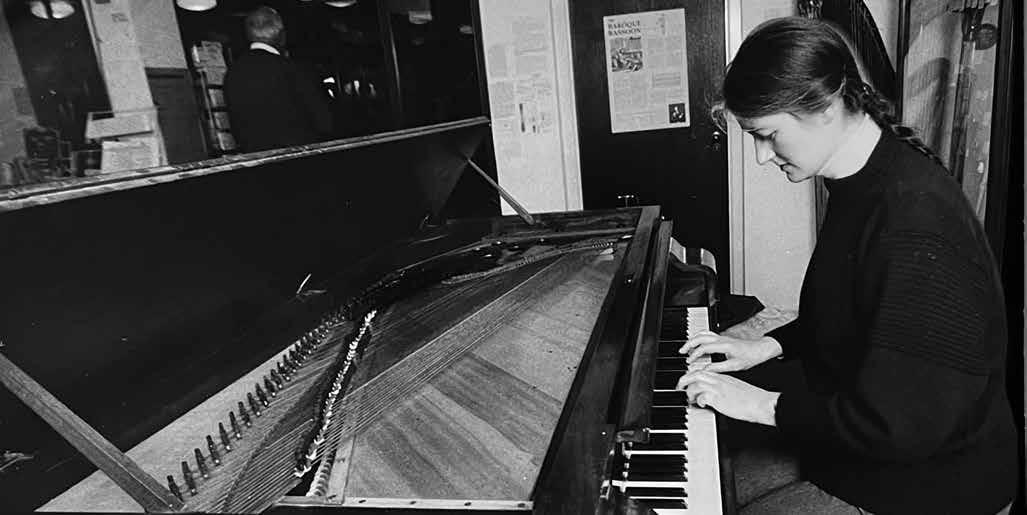 Beryl Bowen (Lodge, 1959)
MARILYN WOODSIDE IN 1988
PLAYING AN 1844 BROADWOOD SQUARE PIANO AT THE BATE COLLECTION IN OXFORD.
Beryl Bowen (Lodge, 1959)
MARILYN WOODSIDE IN 1988
PLAYING AN 1844 BROADWOOD SQUARE PIANO AT THE BATE COLLECTION IN OXFORD.
Harriet was born in Nottingham, and her family lived first in Harrogate, and then in Newcastle, where she and her younger sister Katherine grew up. She attended Central Newcastle High School for girls, and later boarded at Bedales School in Sussex, where she was an apt scholar in many subjects, particularly literature and languages. She was also a very talented artist, and she spent a lot of her free time at school sketching, painting, and working on creative projects such as sewing and weaving.
In 1961, Harriet came up to Oxford to do a degree in Medieval English and French at Somerville College. At Oxford, she made friendships that lasted her whole lifetime. She was a member of the heritage folk society, singing and playing her guitar with them at various venues around Oxford. She often used to surprise people by slipping from her usual cut-glass accent into broad Geordie at the drop of a hat; one of her party pieces was singing Geordie folk songs such as ‘Blaydon Races’ and ‘The Lambton Worm’, accompanying herself on the guitar.
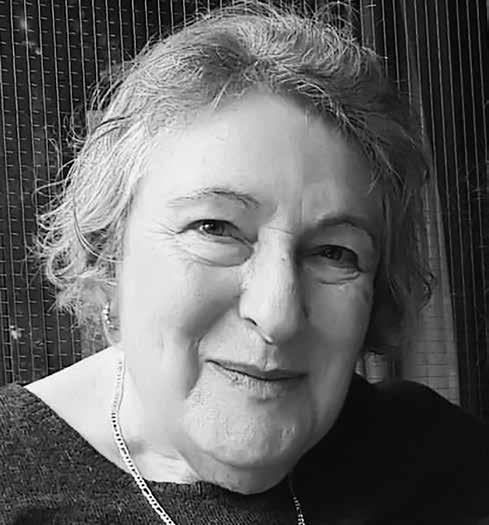
A lot of her Oxford memories seemed to consist of climbing back into college after curfew, and her social life was busy. She wrote of that time: ‘Somerville provided wonderful friends, and Oxford a magical environment of bookishness and fun, with its beautiful parks, streets and buildings, its chaotic student social life, and quirky encounters.’
After graduating, Harriet completed a teaching qualification and taught English and French at secondary level for a few years, before deciding that her very detail-oriented and process-driven approach to life would make her an excellent administrator. Her work took her to the NHS, the Law, women’s magazines, and scientific research.
Harriet married schoolmaster Morris Fishman in 1970, and they lived in London, with their son and daughter, Simeon and Rebecca. Harriet moved back to Oxford after she was widowed in the mid-90s. She continued to work as a senior administrator at the University, most notably in the Department of Materials Science, before taking early retirement. She lived happily in her little house in Jericho for 25 years, and maintained strong connections with people from her school and college days.
In later years, when her ability to see or to walk very far was much reduced, and she suffered increasingly from ill health, Harriet was even more grateful for these wonderful connections and friendships. Particularly during the pandemic, engaging with the online events and with her friends on Zoom was a real lifeline for her. Her family and friends remember her as a kind and generous woman with a keen mind and an excellent sense of humour.
Rebecca Fishman, daughter
Lesley was born on 1 June 1943 in Bedford, where her parents had been evacuated during the war. Her father Harry played the horn in the BBC Symphony Orchestra and her mother Winnie was a skilled seamstress and bicycle mechanic. Lesley was brought up in Bedford Park, Chiswick and came up to Somerville in October 1962 from Notting Hill and Ealing High School on a Beilby Exhibition to study Zoology. She very much enjoyed her time at Somerville, making many lifelong friends and keenly engaging with the many opportunities open to undergraduates. For example, she was active in the United Nations Association (Cosmos), inviting the rising political star Shirley Williams as a speaker, and in 1965 became the cox of the Oxford University Women’s Boat Club for which she gained a Full Blue by participating in the annual race against Cambridge.
Lesley won a scholarship to study for a PhD in Cell Biology at Yale University. After graduating in 1970 she married John Coggins, whom she had first met when they were undergraduates in Oxford, and they both took up postdoctoral fellowships in the Biology Department at Brookhaven National Laboratory on Long Island near New York. They returned to the UK in 1972, settling briefly in Cambridge, where Lesley was a Sara Woodhead Research Fellow at Girton College. They moved to Glasgow in 1974, Lesley to a staff position at the Beatson Institute for Cancer Research. After 22 years leading the Electron Microscopy Group at the Beatson, Lesley embarked on a new career. She was recruited to set up a Cell Biology
Laboratory at the Glasgow University Biotechnology spin-out company Q-One Biotech. Over the years the company grew and morphed, eventually becoming BioReliance. Lesley retired as the Manager of Cell Biology in 2009.
Although her career was very important, Lesley had many interests beyond work. She loved learning in new areas, especially if they were intellectually challenging. Very knowledgeable about astronomy, she owned an impressive seven-foot-high reflecting telescope. She enjoyed coaching children in the local Scout and Brownie groups for their astronomy badges. She travelled to see many solar eclipses, and in January this year was very pleased that her son arranged for her to visit the Australian National Astronomical Observatory.
Lesley had a great love for archaeology and history throughout her life, and to complement this learned to read Egyptian hieroglyphics and to speak Mandarin. Together she and John visited many archaeological sites in Turkey, Italy and China, and in 2019 joined the 14th Pilgrimage to Hadrian’s Wall. Lesley conducted extensive research into her own family history, collecting many documents and photographs stretching back to the 17th century. She enjoyed spending time at the National Archives at Kew and visited many churches in Norfolk and Devon seeking information about family members.
Lesley was very much involved with the local community in Bearsden in Glasgow where she lived for almost 40 years. She was for more than 20 years the Secretary of Bearsden East Community Council, taking an active part in promoting local issues. She was also prominent in the East Dunbartonshire Liberal Democrats, organising visits from eminent speakers such as Paddy Ashdown, Shirley Williams, and Vince Cable.
Lesley also loved travelling, a passion that grew during her time at Somerville. During her Oxford summer vacation in 1965 she backpacked through Turkey and Greece with John and a group of her university friends. She very fondly remembered this holiday, including the part when they were all very nearly arrested for illegally crossing from Turkey to Greece in a fishing boat at night! Lesley also enjoyed sailing, a hobby she took up with John when they lived on Long Island and continued to pursue on the west coast of Scotland after moving to Glasgow. She also went on countless family holidays to the Mediterranean, the United States and more recently to Indonesia, China, Tanzania, and Australia.
Lesley was immensely proud of her two children and four grandchildren (with a fifth one on the way). Her son Andrew is an Emergency Medicine Consultant in Sydney, Australia, and her daughter Julia, who lives in London, is a Patent Attorney specialising in biotechnology and pharmaceuticals. She particularly loved taking her children and grandchildren on holidays and to the museums and art galleries that she herself enjoyed.
John CogginsCordy McNeil passed away suddenly but peacefully in hospital on Thursday 14 April 2022. She had been admitted to hospital unexpectedly a few weeks before with an illness.
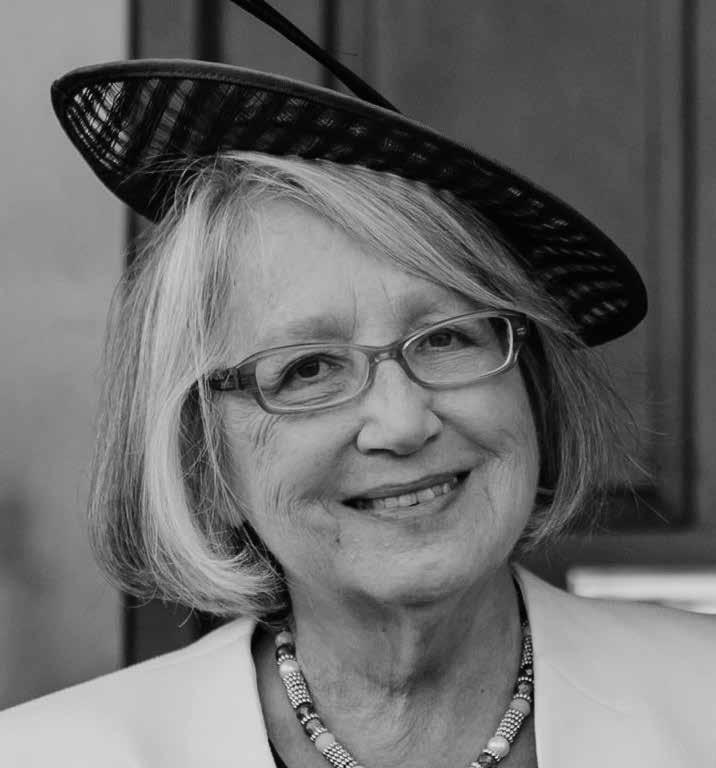
Cordy was born in 1944, in Northwood. She grew up in the Hampstead Garden Suburb, to which she always felt a strong affinity. She formed lifelong friendships at Somerville, where she was an Exhibitioner in History. Her tutor Agatha Ramm’s Germany 1789-1919: A Political History and an ever-growing library of history books were on the shelves of each home she made. She was delighted that her granddaughter Courtney, reading German at St Hilda’s, had been to seminars at Somerville. She met her husband, Andrew, performing in a play in the St Catherine’s JCR.
After graduating she joined the Foreign Office, working in the Information Research Department. But Foreign Office rules at that time meant she had to resign when she married. As a mother to Rupert, Charlotte and Emma she was full of fun and love. A love she went on to share with her grandchildren Sam, Courtney, Aodan and Owen. She would often say she was ‘just a mother’ but this was far from the truth. She taught English as a Foreign Language, was a trained counsellor* and befriended and took caring responsibilities for so many people in her family and beyond.
She was heartbroken when Charlotte died but pledged that it wouldn’t break her as it wouldn’t be fair to her memory or to her surviving children and grandchildren. When Emma moved to Northern Ireland she and Andrew decided to join her. They both enjoyed this new adventure exploring the countryside and enjoying their seaside location. During one of her final conversations with Emma she said how much love she had for the people in her life and the different phases of it.
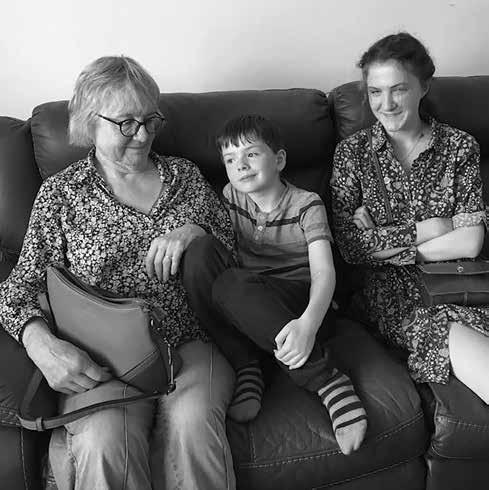
*On the first day of training the tutors asked what her husband did for a living. She told them this was irrelevant and vowed to never mention it. She didn’t. For three years. A mark of how stubborn and principled she could be.
Rupert McNeilClaire Tomlinson was the highest-rated female polo player in the world and widely regarded as the greatest female player of all time. She captained the English team and subsequently coached it. She was the Chairman of the Beaufort Polo Club and taught Princes William and Harry to play. Numerous obituaries have appeared in the national press:
https://www.thetimes.co.uk/article/claire-tomlinsonobituary-wszlgcgrm
https://www.telegraph.co.uk/obituaries/2022/01/25/ claire-tomlinson-glass-ceiling-smashing-polo-player-taughtprinces/
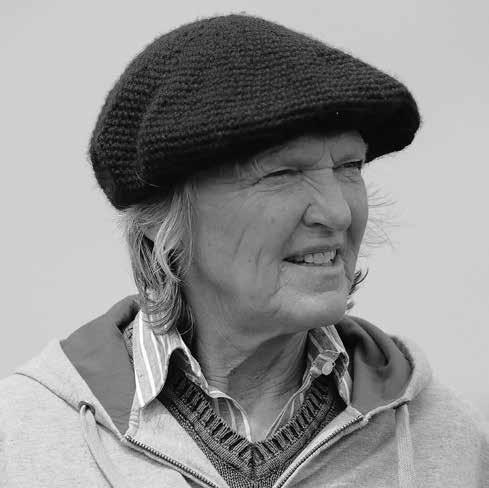
This is a personal memoir from Claire’s Somerville contemporary and friend, Dr Maggie Mills (Smith, 1963):
Claire came up to Somerville in 1963 to read Agriculture and Economics. In those days the women-only College shut its gates by 10.00pm.
My great good fortune was to sit next to Claire on the front staircase on our first night while we waited to meet the Principal, Dame Janet Vaughan. She greeted Claire, saying, ‘Yes, of course, you are our star and only polo player, and, I am told, much, much better than all the men.’ And how right Dame Janet was. Claire’s recent obituary in the Daily Telegraph called her ‘the greatest female polo player of all time’. Determination was a serious trait of Claire’s, so she got the men-only rule removed in double quick time and played her first Varsity match in summer 1964. To her chagrin, she was entered for the match as ‘Mr Lucas’. By the time she got her polo half-blue in her third year, no one doubted her formidable ability as a woman on the polo field. But none of her Somerville contemporaries knew what a talented athlete she was and that she had achieved a squash, a fencing and, extraordinarily, a ploughing blue as well. She was modest and never talked about it or drew attention to all she did. Only someone as relentlessly well-organised as Claire could have achieved her sporting successes, acquired a decent degree, and found time for so much fun and laughter with her friends. Her style reminded me of descriptions of the Thirties ‘bright young things’, always up for an escapade, including punting picnics on the river, croquet contests in college gardens which, not surprisingly, Claire usually won, and early morning exercising of polo ponies. I never knew how and when she got her academic work done. But I remember Claire marching off to an early evening tutorial, throwing me some avocado pears as she left and asking me to prepare them for our supper party later. This was the early sixties. I was not sophisticated. I had no idea. Not wanting to disappoint I telephoned the Elizabeth restaurant opposite Christ Church for help. When I told Claire later, she roared with laughter. She was generous-hearted and I owed her an education in so many ways. She was also fearsomely brave. Out with the Oxford drag
hunt, I once saw her jump a five-barred gate in three strides from a standing start – muttering as she went, ‘In for a penny, in for a pound.’ I admired the uncompromising way she always looked after the animals in her care: if you didn’t come up to standard you very quickly discovered Claire didn’t suffer fools – at all. I don’t think it ever occurred to Claire that there was anything you couldn’t do if you felt passionately enough about it. And nothing was too much trouble. And though the polo world might not seem a uniquely Oxfordian pursuit, look at all she achieved for gender equality and British polo excellence. She truly was magnificent. What I haven’t forgotten is Claire when she fenced. As well as having a blue she was seriously considered for the Olympic team. It was fierce, even alarming, but she was mesmerisingly graceful.
Kathryn (Kate) Wilson was born in Aldershot in 1948. Her parents, Harry and Eve, had grown up in Belfast, which explains why Kate associated the Belfast accent not with Ian Paisley but with ‘kind uncles who would give me half-a-crown’. Kate’s mother was a teacher and her father was a defence scientist and, after Kate started at Aldershot County High School, the family moved to his Washington Embassy posting in 1962. Kate’s three siblings, including Deirdre (Somerville 1961), were somewhat older and perhaps her feelings of isolation as a child, with a string of imaginary friends and fantasies, laid the foundations for her later writing. After three years at school in the States, Kate was sent back to England to attend the sixth form of Wycombe Abbey. Her school friend Yvonne Whiteman recalls: ‘Kate arriving at Wycombe Abbey when I was feeling particularly cheerless and friendless, bringing with her the Beach Boys, The Lord of the Rings, Nietzsche and Lawrence Durrell. Suddenly the world lit up.’ Kate and her friends were ‘like-minded teenage rebels’, attending Beatles and Stones concerts and dancing in cellar jazz clubs when they could escape ‘the 18th-century Gothic walls of our ladylike boarding school’.
At Oxford, Kate was still a party lover who always enjoyed ‘dancing my socks off’. She read PPE at Somerville; after graduation, she spent a year studying philosophy at MIT. She married Martin Cave in 1972; in 1974 they moved to Uxbridge – Martin had an economics lectureship at Brunel University – and they brought up their children Eleanor, Joe and Alice there, with spells in the USA and Australia. Kate somehow found time to become an ace tennis player as well as being a super-dedicated and loving mother.
Although she followed Martin’s career in terms of location, Kate had highly portable interests and talents – editing and, most notably, writing fiction. From 1984 onwards, she published many inspirational books for children. In 1994
Something Else, illustrated by Chris Riddell, was awarded the first UNESCO Prize for Children’s Literature. Still in print, in many languages, it has sold well over a quarter of a million copies. Maurice Lyon, her editor at Penguin Books, writes: ‘she was a very special writer with an acute eye for the way
children see the world. It was a great joy and privilege to work with her on Something Else. It’s the book I am most proud to have been associated with. Her books have that wonderful quality of being able to make you laugh out loud at the same time as being profoundly moving. Kate leaves a wonderful legacy of writing and is a real loss to children’s literature.’
While pursuing her writing career, Kate was also an editor at Frances Lincoln – Frances (Somerville 1964) was a close friend. Her most arduous achievement was editing a new edition of Wainwright’s Walks – all seven volumes – and undertaking many of the Lake District walks herself to get a closer insight. Kate loved walking, with family, with friends, or alone: she regularly walked on nearby Primrose Hill and Hampstead Heath, even during her illness.
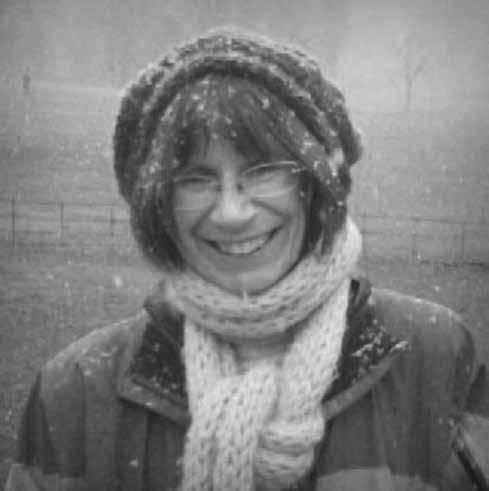
The moral of Something Else, that we should embrace difference, was central to Kate’s personal philosophy. Her compassion and hatred of injustice, cruelty and intolerance were expressed in her volunteer work for the Samaritans and for refugee charities.
Kate had exceptional inner resources and determination, qualities much needed when she was diagnosed with lung cancer in 2014. She resolutely chose a rigorous diet and alternative therapies then, later, innovative NHS treatments at the Royal Free Hospital. Thankfully, and remarkably, she was able to enjoy seven more years with family, friends and her beloved grandchildren. She died peacefully at home with her family on 3 December 2021.
Even during the worst times, Kate radiated the same, spiritual, sense of inner peace and tranquillity. But she was never solemn and she had a wickedly subversive wit. As a friend, she was the perfect companion for walks, outings to galleries and theatres and – just fun.
Dr Barbara Goodwin (1966)
Linda’s parents came from families that fled from the oppression of Jews in different parts of the world. Her father’s family came to England from Poland and her mother’s family fled Iraq to India from where descendants emigrated to England and America. People sometimes asked, seeing Linda was not of Anglo-Saxon stock, ‘Where do you come from?’ Linda replied ‘Willesden’, where she was born in 1949.
She won a scholarship to the North London Collegiate School and came up to Somerville in 1968 to read Chemistry. She subsequently trained as a social worker, and worked for several local authorities, and then as a nurse working at the Charing Cross Hospital and as a Nightingale Nurse; finally, she worked as a psychotherapist and ran her practice from her home.
From a young age Linda suffered health problems and spent spells in hospitals. She suffered from COPD, a lung condition, and she would pause when walking to regain breath every now and then. However, she decided that she would live life at a pace that suited her. She travelled in America and Europe, and in India where she spent another spell in hospital during her several months there. She had devised a method of dealing with the condition and astonishingly walked up England’s highest mountain with her partner John in 1990. Later she taught other people how to deal with breathing problems and published a pamphlet on the subject.
Linda spent her life helping and supporting many people and friends. Her mother once called her the ‘Madam of the Good Deeds’. She was involved with many organisations and causes, among them the Gipsy Council, CND, Medical Aid for Palestine, the Jewish Socialist Society, the Labour Party, the Refugee Council, Action on Disability, and Labour Heritage.
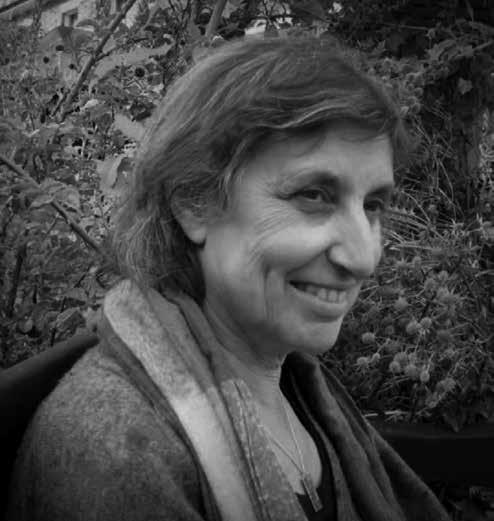
Linda loved music, was a fine pianist and was practising the violin in her final years. She and her partner attended numerous concerts together.
Linda was also a much-valued member of the Somerville London book group; her contributions to this group were always interesting and unusual and often brought a different perspective to the discussion. She was noted for her sensitive insights into character; it was clear that she was a very thoughtful and altruistic person and the group will miss her.
Catherine Elizabeth King (Cathy) was born in Buffalo New York state in May 1935. She spent her early childhood years in Pennsylvania and then moved to Detroit (Michigan). A ‘straight As’ student, she enrolled at the University of Ann Arbor, pursuing history as a major with French as a minor. She was an accomplished viola player, but had decided not to pursue this professionally, following her father’s advice that it was a risky career. She received her BA in 1956 and her MA in 1957, both
with first class honours. Cathy’s first visit to Europe followed her BA degree; she had been fascinated by Europe while growing up and chose a tour of Europe in preference to a car as a graduation present! In 1958 she won a Fulbright scholarship to pursue a DPhil in Oxford as a member of St Hilda’s College. Despite impressing her supervisor and publishing some of her work, she abandoned her studies for personal reasons a year later and returned to the United States.
After some twelve years, she decided that her future lay in academic work and, with her past supervisor’s and St Hilda’s backing, she returned to Oxford in 1972. Having fascinated her interviewers with an account of the way numismatics threw a light on the late Roman economy, she was elected to a Mary Ewart Junior Research Fellowship at Somerville, to run from 1973 to 1975. Her Junior Research Fellowship and a subsequent travel grant enabled her to submit and defend her thesis in 1976. At this point she needed to establish permanent residence in the United Kingdom; this was happily resolved by the combined efforts of Somerville and the Ashmolean.
Cathy’s first years after her return to Oxford cannot be discussed without mentioning a large friendly Samoyed dog called Tamburlaine. He had been an important part of her life in the USA and he came to Britain with her. After the required quarantine, he shared her room in St Hilda’s graduate accommodation, to the surprise of the Bursar. Sadly, large dogs were not allowed as Somerville residents so, after a short period in his own lodgings, he travelled to Scotland and a home in a convent, arranged by a friend!
The DPhil thesis only increased Cathy’s determination to pursue a career in numismatics in Oxford. The following few years saw her living rather insecurely on a succession of grants, supplemented by part-time work. She spent some time coaching preparatory school boys in Latin for their Common
Entrance examination. She was clearly a conscientious teacher as one pupil returned to tell her she had taught him all the Latin he needed for his first year in public school. She also was able to supplement her income by tutoring for the Open University’s course in Classical Civilisation. Finally a part-time research assistant position was found in the Ashmolean, a position she held until her retirement.
With residence and income secured, she was able to concentrate on her research. Her residence status enabled her to travel in Europe and she visited coin collections in Rome, Milan and Paris on many occasions. One significant visit was made to Berlin, before the wall was down, when she travelled daily to the Eastern sector where an important numismatic collection was held. Cathy wrote prolifically, publishing various papers and festschrift contributions. One of her latest works was a large volume on Roman quinarii – a denomination in circulation from before 200 BC until 294 AD. She worked on this volume for some 20 years before its final publication, some five years after she retired. This, on its own, indicated that Cathy lived to work rather than worked to live.
There was, however, time for friends, concerts and travel. While she no longer played an instrument, she took full advantage of the many concerts in Oxford. There were vacations as well as travel for work and, together, we explored much of France. On these occasions Cathy’s luggage always included academic books and papers. It also included some Penguin crime novels; she owned more than 300 of them! She always claimed that these, and The Archers, taught her a great deal about life in Britain.
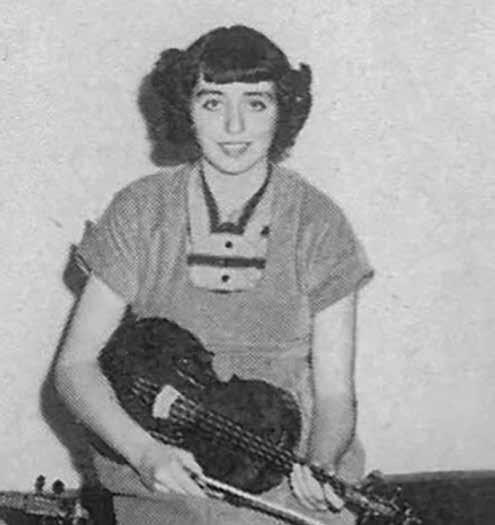
Cathy’s last few years were clouded by dementia; she suffered the inevitable problems bravely. She died on 1 January this year. She is much missed.
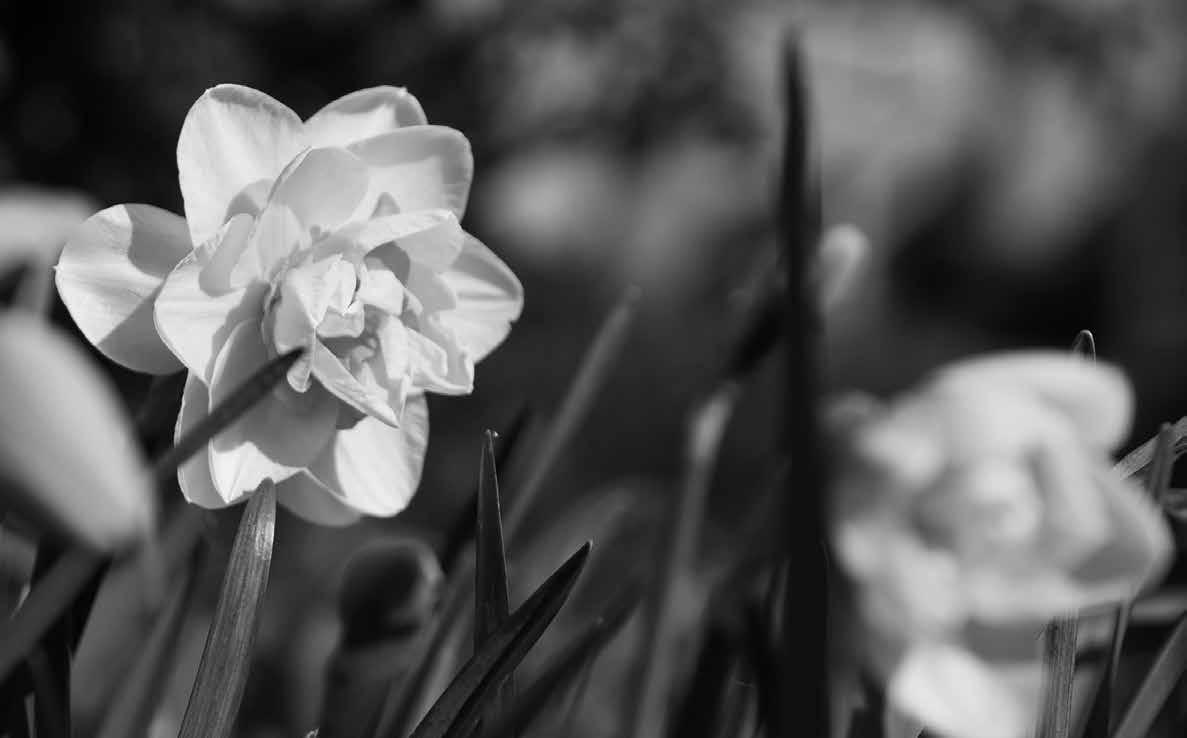 Margaret Adams, Emeritus Fellow
CATHY KING
Margaret Adams, Emeritus Fellow
CATHY KING
Examination Results
UNDERGRADUATE RESULTS
Ancient and Modern History
Class II.I Sophia Maisashvili
Frederick Quinlan
Biology (MBiol)
Class I Lauren Eddie
Ajay Patel
Natalie Said
Albert Tremlett
Class II.I Jonathan Heale
Kieran Storer
Chemistry (MChem)
Class I Ephraem Tan
Jordan Welsh
Class II.I William Hadley
Pavel Rahman
Classical Archaeology and Anthropology
Class II.I Caecilie Lotz
Classics and Modern Languages
Class II.I Cara Digby-Patel
Classics and Oriental Studies
Class I Althea Sovani
Computer Science (MCompSci)
Class II.I Minh Le Quoc
Victor-Andrei Popai
Engineering Science (MEng)
Class I Devang Sehgal
Lucy Taylor
Christopher Wheeler
Class II.I James Leader
English and Modern Languages
Class I Martha Davies
Class II.I George Wright
English Language and Literature
Class I
Emma Burberry
Rosalyn Durham
Orla Lavery
Anna Roberts
Class II.I Jay Brown
Zuleika Frost
Cara Moran
Elizabeth Perceval
Experimental Psychology
Class I Inês Andrade Castro
History
Class I Devanshika Bajpai
Reuben Cook
Magdalena Kosciolek
Selina Schoelles
Class II.I Anna Lundqvist
Victor Vallely
Emma Walker
History and Economics
Class II.I Nolan Whitcomb
History and Modern Languages
Class I Grace Taylor-West
Jurisprudence
Class I Richard Wagenländer
Class II.I Gill Berlad
Geraint Hoggan
Jaime Teo
Literae Humaniores
Class II.I Caroline Murphy Racette
Cyrus Naji
Class II.II Xiaoyi Ouyang
Mathematical &Theoretical Physics (MMathPhys)
Class I
Distinction Thomas Ashton-Key Mathematics (MMath)
Class II.I
Merit William Campbell
Mathematics and Computer Science (MMathCompSci)
Class I
Distinction Mary Adigun-Hameed
Mathematics and Statistics (MMath)
Class I
Distinction Eleanor Washington
Class II.I Baoyue Kang
Medical Sciences
Class I Abigail Punt
Class II.I
Raphaella Ridley
Kristin Hindmarch
Martha Hughes
Duncan Marsden
Bilal Qureshi
Robin Von Bonsdorff
Medicine – Graduate Entry
Distinction Alexandra Mighiu
Pass Kristie McCormick
Modern Languages
Class II.I Hannah Andrusier
Bethany Barber
Zoe Bray
William Chamberlain
Jack Mullis
Alexander Tinker
Modern Languages and Linquistics
Class I Asher Sandbach
Ari Warrington
Molecular and Cellular Biology (MBioChem)
Class I David Aitken
Merlyn Latimer Smith
Joshua Stott
Class II.I Mary McBain
Music
Class I Danielle Welbeck
Class II.I Trina Banerjee
Franco Lopez
Philosophy and Modern Languages
Class I Emily Bullock
Philosophy, Politics and Economics
Class II.I Ethan Meller
Anushka Shah
James Standfield
Class II.II Adeola Egunnike Physics (MPhys)
Class I Chuqiao Lin
Kieran Moore
Class II.I
Vishal Aurora
Nikita Ostrovsky
Psychology, Philosophy and Linguistics (PPL)
Class I Kumaravidanalage
Kumarasinghe
Class II.I Lucy Psaila
Philip Tomei
All students are offered the choice, at the start of their course, of opting out of any public list that the University or College may produce. There are therefore the following results to announce, without reference to subject or name: Class I = 8, Class II.I = 8, Pass = 2
Bachelor of Civil Law
Distinction Kevin O'Donnell
Mallika Sen
Sam Warburton
Merit Avani Agarwal
Amany Jabir
Shubrojyoti Mookherjee
Diploma in Legal Studies
Distinction Francesc Bascompte Lazaro
Clemens Christopher Mehl
Medicine – Clinical
Pass Lara Reed
MASTER OF SCIENCE:
Biodiversity, Conservation and Management
Merit Banashree Thapa
Economics for Development
Distinction Ioana-Octavia Popescu
Merit Giovanni D’Amico
Financial Economics
Merit Yaozhong Xu
Global Governance and Diplomacy
Merit Jessica Lauren Beck
Mathematical & Theoretical Physics
Distinction Kai Alexander Bartnick
Merit Saba Shalamberidze
Lucía Vílchez Estévez
Mathematical and Computational Finance
Merit Ruixuan Zhang
Mathematical Sciences
Distinction Alexandros Groutides
Jingxuan Gu
Aitor Iribar Lopez
Haobo Yuan
Pass Tommi Muller
Marina George Simonian
Modern South Asian Studies
Declared to have deserved Masters
Apoorva Malepati
Refugee and Forced Migration Studies
Pass Isabel Schmieta
Statistical Science
Pass Tara Seedher
MASTER OF STUDIES: Creative Writing
Distinction Sasha Norris
English
Pass Mary Bowen-Perkins
Anna Schechter
Greek and/or Latin Languages and Literature
Merit Devon Hood
History
Distinction Matthew Leech-Gerrard
Mason Mandell
Modern Languages
Distinction Holly Abrahamson
Rebekka Gründel
Linguistics, Philology and Phonetics
Distinction Georgia Jones
Music
Merit Ellen O’Brien
Women’s Studies
Distinction Isabel Morris
Women’s, Gender, and Sexuality Studies
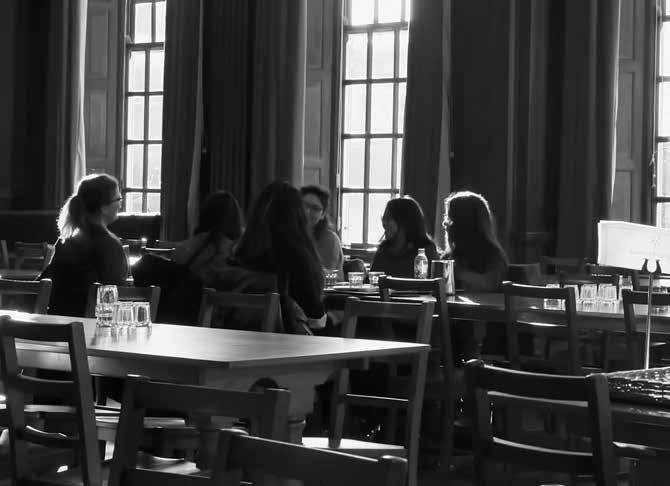
Distinction Misbah Reshi
BACHELOR OF PHILOSOPHY:
Philosophy
Pass Shixiang Lin
MASTER OF PUBLIC POLICY:
Public Policy
Merit Summia Tora
MASTER OF PHILOSOPHY:
History
Merit Grace Denton-Spalding
Modern Languages
Distinction Charlotte Geißler
International Relations
Pass Elisabeth Siegel
Linguistics, Philology and Phonetics
Distinction Frances Dowle Yiwei Si
Politics
Distinction Gabriella Cook Francis Simon Koopmann
Merit Johannes-Maximilian Glahs
All students are offered the choice, at the start of their course, of opting out of any public list that the University or College may produce. There are therefore the following results to announce, without reference to subject or name: Distinction = 1, Merit = 2
This list is accurate at the time of print and some exam results may be released after this date.
Bryant Scholarship
Tom Drayton (Chemistry), Georgia Fields (Chemistry), Emily Haasz (Chemistry), Will Hadley (Chemistry), Amaar Sardharwalla (Chemistry), Ephraem Tan (Chemistry), Mason Wakley (Chemistry), Jordan Welsh (Chemistry), Charlotte Yates (Chemistry)
David Scourse Medical Scholarship
Sarafina Otis (Medicine - Preclinical)
Gilbert Murray Exhibition
Ella Myers (History)
Jean Ginsburg Medical Exhibition
Ellie Walker (Medicine - Preclinical)
Jean Ginsburg Medical Scholarship
Lucy Thompson (Medicine - Graduate Entry)
June Barraclough Exhibition
Daisy Martin (Modern Languages), Rohan Silvestro (Modern Languages)
June Barraclough Scholarship
Rae Amosu (Modern Languages), Zoe Bray (Modern Languages), Haley Flower (Modern Languages)
Madeleine Shaw Lefevre Exhibition
Romy Patrick (History), Emma Schutze (History), Johnny Boyd (Literae Humaniores), Caroline Murphy Racette (Literae Humaniores)
Madeleine Shaw Lefevre Scholarship
Max Buckby (Ancient and Modern History), Althea Rosa Ludovica Sovani (Classics and Oriental Studies), Caitlin Kelly (English Language and Literature), Hannah Andrews (Experimental Psychology), Molly Cohen (Experimental Psychology), Parker Joly (Experimental Psychology), Thomas Stone (Experimental Psychology), Ingrid Yu (Experimental Psychology), Devanshika Bajpai (History), Katie Birch (History), Reuben Cook (History), Ella Johnson (History), Matyas Knol (History), Magdalena Kosciolek (History), Sonny Pickering (History), Selina Schoelles (History), Jemima Storey (History), Sam Thomas (History), Luca Webb (History), Michelle Chan (History and Economics), Alexander McFadzean (History and Economics), Sam Ajakaiye (History and Modern Languages), Grace Taylor-West (History and Modern Languages), Kristy Chan (Jurisprudence), Darren Leow (Jurisprudence), Giuseppe Maurino Literae Humaniores)
Sir William Bousfield Exhibition
Luca Tonelli (Engineering Science), Charlotte Arben (Mathematics), Reuben Frost (Mathematics), Dominic Miller (Mathematics), Benedek Pap (Mathematics), Maria Tasca (Mathematics), Elizabeth Lloyd-Wilson (Physics)
Sir William Bousfield Scholarship
Finian Bassford (Computer Science), Alfie Brazier (Computer Science), Alex Pay (Computer Science), Kai Pischke (Computer Science), Miles Keat (Engineering Science), James Leader (Engineering Science), Haris Saeed (Engineering Science), Devang Sehgal (Engineering Science), Lucy Taylor (Engineering Science), Jiale Wang (Engineering Science), Christopher Wheeler (Engineering Science), Alistair White-Horne (Engineering Science), George Whittle (Engineering Science), Thomas Ashton-Key (Mathematical and Theoretical Physics), Jason Bell (Mathematics), Alex Grey (Mathematics),
Charlie Kidd (Mathematics), Richard Zhang (Mathematics), Tofunmi Adigun-Hameed (Mathematics and Computer Science), River Newbury (Mathematics and Computer Science), Dimitar Oparlakov (Mathematics and Computer Science), Jessica Richards (Mathematics and Computer Science), Chuqiao Lin (Physics), Kieran Moore (Physics), John Pearce (Physics), Ylias Sadki (Physics), Kaiyun Sun (Physics)
Lowri Woollard (Ancient and Modern History), Mirren Black (Biology), Ajay Patel (Biology), Amela Sleczka (Molecular and Cellular Biochemistry), Anna Wilderspin (Molecular and Cellular Biochemistry), Trina Banerjee Music, Bobby Clark Music, Franco Lopez Music, Mar Umbert Kimura (Music), Saleh Algannin (Philosophy, Politics and Economics), Jamie Walker (Philosophy, Politics and Economics)
Lauren Eddie (Biology), Eloise Hedgecott (Biology), James Hubbard (Biology), Philippa Rolfe (Biology), Evan Slater (Biology), Emma Thornton (Biology), James Walker (Biology), Minh Le quoc (Computer Science), Ellie Washington (Mathematics and Statistics), Ismay Forsyth (Molecular and Cellular Biochemistry), Dulcie Havers (Molecular and Cellular Biochemistry), Amy Roberts (Molecular and Cellular Biochemistry), Emer Shell (Molecular and Cellular Biochemistry), Chloe Green (Music), Danielle Welbeck (Music), Susannah Ames (Philosophy, Politics and Economics), Ruby Cooper (Philosophy, Politics and Economics), Helena Holter (Philosophy, Politics and Economics), Ethan Meller (Philosophy, Politics and Economics), Isabella Mencattelli (Philosophy, Politics and Economics), Fabio Rossi (Philosophy, Politics and Economics), Maria Rotaru (Philosophy, Politics and Economics) Anushka Shah (Philosophy, Politics and Economics), Migara Kumarasinghe (Psychology, Philosophy and Linguistics), Lucy Psaila (Psychology, Philosophy and Linguistics)
This list is accurate at the time of print and some awards may be made after this date. Awards with an * were not listed in the 2020-21 report, and are therefore included here.
Alyson Bailes Prize
Sonny Pickering (History)
Archibald Jackson Prize
Kevin O'Donnell (Civil Law), Mallika Sen (Civil Law), Sam Warburton (Civil Law), Vlad Lungu (Computer Science)*, Sasha Norris (Creative Writing), Octavia Popescu (Economics for Development), Michael Goode (History), Matthew Leech-Gerrard (History), Mason Mandell (History), Alexandra Boothroyd (History of Science, Medicine and Technology)*, Frances Dowle (Linguistics, Philology and Phonetics), Georgia Jones (Linguistics, Philology and Phonetics), Yiwei Si (Linguistics, Philology and Phonetics), Kai Bartnick (Mathematical and Theoretical Physics), Wenqi Zhu (Mathematical Modelling and Scientific Computing)*, Alexandros Groutides (Mathematical Sciences), Jingxuan Gu (Mathematical Sciences), Aitor
Iribar Lopez (Mathematical Sciences), Haobo Yuan (Mathematical Sciences), Sorana Mighiu (Medicine - Graduate Entry), Holly Abrahamson (Modern Languages)*, Charlotte Geißler (Modern Languages), Rebekka Grundel (Modern Languages), Abhishek Matta Manjunath (Modern South Asian Studies)*, Gabriella Cook Francis (Politics)*, Simon Koopmann (Politics), Luke Reeves (Psychological Research)*, Zhiyuan Cheng (Radiation Biology)*, Kyra Bartolo (Sleep Medicine)*, Isabel Morris (Women's Studies)*, Misbah Reshi (Women's, Gender, and Sexuality Studies)
Caitlin Kelly (English Language and Literature)
Mirren Black (Biology), Eloise Hedgecott (Biology), Alice Penrose (Biology), Philippa Rolfe (Biology), Evan Slater (Biology), Tom Drayton (Chemistry), Louis Govani (Chemistry), Emily Haasz (Chemistry), Chengxuan Liang (Chemistry), Amaar Sardharwalla (Chemistry), Harry Sherratt (Chemistry), Hengyi Zhang (Chemistry), Mei Whattam (Classical Archaeology and Ancient History), Alex Pay (Computer Science), Kai Pischke (Computer Science), Sam Broadhurst (Engineering Science), Haris Saeed (Engineering Science), Alistair WhiteHorne (Engineering Science), George Whittle (Engineering Science), Laurie Yin (Engineering Science), Eleanor Harvey (English Language and Literature), Daisy Hawkins (English Language and Literature), Christina He (Experimental Psychology), Ingrid Yu (Experimental Psychology), Anna Roizes (History), Naomi Hyde (Jurisprudence), George Seager (Literae Humaniores), Alex Grey (Mathematics), Reuben Hillyard (Mathematics), Dominic Miller (Mathematics), John Wortley (Mathematics), Richard Zhang (Mathematics), Wuyang Chen (Mathematics and Computer Science), Miranda Conn (Mathematics and Computer Science), River Newbury (Mathematics and Computer Science), Dimitar Oparlakov (Mathematics and Computer Science), Jessica Richards (Mathematics and Computer Science), Jason Bell (Mathematics and Statistics), Reuben Frost (Mathematics and Statistics), Charlie Kidd (Mathematics and Statistics), David Schramm (Medicine - Graduate Entry), Lucy Thompson (Medicine - Graduate Entry), Amy Moynihan (Medicine - Preclinical), Sarafina Otis (Medicine - Preclinical), Ellie Walker (Medicine - Preclinical), Holly Cobain (Modern Languages), Isabella Hind (Modern Languages), Anna Hull (Modern Languages), Lizzy Abel (Modern Languages and Linguistics), Amy Roberts (Molecular and Cellular Biochemistry), Angie Wyatt (Music), Zoe Campbell (Philosophy, Politics and Economics), Cameron Hodgkinson (Philosophy, Politics and Economics), Isaac Tay (Philosophy, Politics and Economics), Vivek Thakrar (Philosophy, Politics and Economics), Haibei Li (Physics), Elizabeth Lloyd-Wilson (Physics), John Pearce (Physics), Ylias Sadki (Physics),
Emma Stratford (Physics), Yuancheng Xu (Physics), Ying-Di Ying (Physics), Johannes Keil (Psychology, Philosophy and Linguistics), Emily Shurmer (Psychology, Philosophy and Linguistics)
Mary Somerville Prize
Will Norton (Biological Sciences)*, Lauren Eddie (Biology), Ajay Patel (Biology), Natalie Said (Biology), Albert Tremlett (Biology), Ephraem Tan (Chemistry), Jordan Welsh (Chemistry), Aivin Gast (Classical Archaeology and Ancient History), Althea Rosa Ludovica Sovani (Classics and Oriental Studies), Max Bowman (Engineering Science)*, Devang Sehgal (Engineering Science), Lucy Taylor (Engineering Science), Christopher Wheeler (Engineering Science), Martha Davies (English and Modern Languages), Emma Burberry (English Language and Literature), Rosalyn Durham (English Language and Literature), Orla Lavery (English Language and Literature), Anna Roberts (English Language and Literature), Lucy Thynne (English Language and Literature), Ines Andrade Castro (Experimental Psychology), Claire Yun (Experimental Psychology), Devanshika Bajpai (History), Reuben Cook (History), Magdalena Kosciolek (History), Selina Schoelles (History), Luca Webb (History), Grace TaylorWest (History and Modern Languages), Wesley Ding (Jurisprudence), Richard Wagenländer (Jurisprudence), Francesc Bascompte Lazaro (Legal Studies), Clemens Mehl (Legal Studies), Thomas Ashton-Key (Mathematical and Theoretical Physics), Tofunmi Adigun-Hameed (Mathematics and Computer Science), Ellie Washington (Mathematics and Statistics), Abigail Punt (Medical Sciences), Raphaella Ridley (Medical Sciences), Asher Sandbach (Modern Languages and Linguistics), Ari Warrington (Modern Languages and Linguistics), David Aitken (Molecular and Cellular Biochemistry), Merlyn Latimer Smith (Molecular and Cellular Biochemistry), Josh Stott (Molecular and Cellular Biochemistry), Chloe Green Music, Danielle Welbeck (Music), Emily Bullock Philosophy and (Modern Languages), Susannah Ames (Philosophy, Politics and Economics), Fabio Rossi (Philosophy, Politics and Economics), Chuqiao Lin (Physics), Kieran Moore (Physics), Migara Kumarasinghe (Psychology, Philosophy and Linguistics)
Devang Sehgal (Engineering Science)*, Eleanor Thompson (Engineering Science)*, Ned Ashcroft (History)*,
Benjamin Kotlov Mathematics*,
Anurag Choksey (Medical Sciences)*,
Laura Packham (Modern Languages and Linguistics)*, Michelle Huang (Philosophy, Politics and Economics)*, Matt Jennings (Physics)*
Sarah Smithson Prize
Betty Barber (Modern Languages)
Somerville Lawyers Group Prize
Jaime Teo (Jurisprudence), Jamie Chen (Jurisprudence with Law in Europe)
Alice Horsman Scholarship
Ellie Cooper (2018), Oliver Quinn (2017), Helen Rice (1995), Talitha Slabbert (2017), Shree Thapa (2017)
Alcuin Award
Jack Kerslake (History), Ella Myers (History), Lily Sheldon (History), Jemima Storey (History), Beto Wetter (History), Aleksandra Rutkowska (History of Art)
Alice Horsman Grant
Megan Chester (Creative Writing), Frances Dowle (Linguistics, Philology and Phonetics), Bilal Qureshi (Medicine - Preclinical)
Ann Cobbe Travel Grant
Siobhan Tobin (Condensed Matter Physics), Ylias Sadki (Physics)
Literature), Beto Wetter (History), Andrew Wood (Interdisciplinary Bioscience - Zoology), Summia Tora (International Human Rights Law), Tristan I'Anson-Sparks (Music), Caroline Yuk (Neuroscience), Maria Rotaru (Philosophy, Politics and Economics), Rui Huang (Population Health), Hakmin Mun (Women's and Reproductive Health)
Carmen Blacker Travel Grant
Luca Ricci (Ancient History), Ryden Nelson (Classical Archaeology and Ancient History)
Catherine Hughes Grant
Anne Clements Travel Grant
Alice Penrose (Biology), Emma Thornton (Biology), Nikhil Gowd (Development Studies), Isabella
Fergusson (English Language and
Holly Kembrey (Biodiversity, Conservation and Management), Connor Forsyth (Biology), Bethany Smith (Biology), Claudia Zagami (Clinical Medicine), Alfie Brazier (Computer Science), Meesha Williams (Creative Writing), Martha Davies (English and Modern Languages), Zuleika Frost (English Language and Literature), Agnes Halladay (English Language and Literature), Hannah Andrews (Experimental Psychology), Parker Joly (Experimental Psychology), Trisha Gopalakrishna (Geography and the Environment), Romy Patrick (History), Lily Sheldon (History), Beto Wetter (History), Andrew Wood, (Interdisciplinary Bioscience - Zoology), Summia Tora (International Human Rights Law), Benjamin Freeborn (Jurisprudence), Richard Wagenländer (Jurisprudence), Steph Garrett (Literae Humaniores), Cyrus Naji (Literae Humaniores), Duncan Marsden (Medicine - Preclinical), Gwendy Davenport (Modern Languages), Lauren Hazel Keane (Modern Languages), Dona Josh (Molecular and Cellular Biochemistry), Amela Sleczka (Molecular and Cellular Biochemistry), Julia Talarek (Molecular and Cellular Biochemistry), Tristan I'Anson-Sparks Music, Ellen O'Brien Music, Susannah Ames (Philosophy, Politics and Economics), Fabio Rossi (Philosophy, Politics and Economics), Maria Rotaru (Philosophy, Politics and Economics), Chuqiao Lin (Physics), Nikita Ostrovsky (Physics), Tongyu Sun (Physics), Joseph Ward (Politics), Katrina Kalcic Public Policy, Hakmin Mun Women's and Reproductive Health)
Layla Sklar (Biology), Evan Slater (Biology), Charlotte Perry (Classical Archaeology and Ancient History), Jack Parsons (Engineering Science), Caitlin Kelly (English Language and Literature), Lucy Thynne (English Language and Literature), Lucas Jones (European and Middle Eastern Languages), Thomas Stone (Experimental Psychology), Ingrid Yu (Experimental Psychology), Alec Joad (History), Matyas Knol (History), Enes Morina (History), Paddy Ryce (History), Beto Wetter (History), Maisie Witherden (History), Sam Ajakaiye (History and Modern Languages), Kate Dorkins (History and Modern Languages), Benedict Hamlyn (International Relations), Darren Leow (Jurisprudence), Emma Toner (Jurisprudence), Richard Wagenländer (Jurisprudence), Dominic Miller (Mathematics), Richard Zhang (Mathematics), Ellie Washington (Mathematics and Statistics), Sarafina Otis (Medicine - Preclinical), Oliver Greaves (Modern Languages), Dulcie Havers (Molecular and Cellular Biochemistry), Julia Talarek (Molecular and Cellular Biochemistry), Emily Bullock (Philosophy and Modern Languages), Zoe Campbell (Philosophy, Politics and Economics), Fifi Leather (Philosophy, Politics and Economics), Calum Holker (Physics), John Pearce (Physics), Shine Park (Psychology, Philosophy and Linguistics), Roshan Melawni (Public Policy)
Benjamin Freeborn (Jurisprudence)
Holly Kembrey (Biodiversity, Conservation and Management), Mirren Black (Biology), Connor Forsyth (Biology), Philippa Rolfe (Biology), Evan Slater (Biology), Matilda Trueblood (Classical Archaeology and Ancient History), Flora Symington (English Language and Literature), Ryah Thomas (History), Gill Berlad (Jurisprudence), Helena Holter (Philosophy, Politics and Economics), Adriana Mordente (Zoology)
Dr Stephanie Dalley Internship AwardHansell Travel Grant
Miguel Berbeira Santana (Biochemistry), Alfie Brazier (Computer Science), Alex Pay (Computer Science), Kai Pischke (Computer Science), Hannah Andrews (Experimental Psychology), Oliver Harmson (Experimental Psychology), Shelley Castle (History), Raphael Reinbold (Interdisciplinary Bioscience - Chemical Biology), June Sang Lee (Materials), Federico Trinca (Mathematics), Kristie McCormick (Medicine - Graduate Entry), Dona Josh (Molecular and Cellular Biochemistry), Vincent Luscombe (Molecular Cell Biology in Health and Disease), Edward Brewer (Physical and Theoretical Chemistry), Rui Huang (Population Health), Francesca Dakin (Primary Health Care)
Janet Treloar Travel Grant
Grace Bostock Westland (Modern Languages)
Luedecke Award
Daisy Martin (Modern Languages), Lis Hill Modern Languages and Linguistics)
Maria and Tina Bentivoglio Travel Grant
Annabella Meech Astrophysics, Divya Choudhary (Biochemistry), Tom Hickling (Engineering Science), Hazim Azghari (History), Martin Fellermeyer Medical Sciences, Sarah Peters MedicineClinical, Lara Reed Medicine - Clinical, Nandana Syam Medicine - Clinical, Julia Talarek (Molecular and Cellular Biochemistry)
Monica Britton Travel Grant
Rebekka Gründel (Modern Languages)
Olive Sayce Travel Grant
Autumn Clarke (English Language and Literature), Gwendy Davenport (Modern Languages), Maya Szaniecki (Modern Languages), Lauren Hazel Keane (Modern Languages and Linguistics)
Rhabanus Maurus Award
Grace Taylor-West (History and Modern Languages), Holly Bostock (Modern Languages), Lis Hill (Modern Languages and Linguistics)
Rita Bradshaw Travel Grant
Hannah Ugboma (Biology), Mason Wakley (Chemistry), Tom Sanders (Creative Writing), Meesha Williams (Creative Writing), Benjamin Freeborn (Jurisprudence)
Other Awards
Chloe and Helen Morton Choral Scholarship
Steph Garrett (Literae Humaniores), Hannah Andrusier (Modern Languages)
Daphne Robinson Language Award
Connor Forsyth (Biology), Bethany Smith (Biology), Pavel Rahman (Chemistry), Ella Myers (History), Lily Sheldon (History), Caroline Murphy Racette (Literae Humaniores), Ellie Washington (Mathematics and Statistics), Tristan I'Anson-Sparks (Music)
Margaret Irene Seymour Music Award
George Whittle (Engineering Science), Amy Moynihan (Medicine - Preclinical), Trina Banerjee (Music), Chloe Green (Music), Tristan I'Anson-Sparks (Music), Mar Umbert Kimura (Music)
Medical Fund Scholarship
Sarah Peters (Medicine - Clinical), Chloe Freeman (Medicine - Graduate Entry), Huiyuan Xiao (Medicine - Graduate Entry), Anna Yakovleva (MedicineGraduate Entry)
Olive Sayce Language Award
Aleksandra Rutkowska (History of Art)
Pat Harris Spirit of Somerville Award
Martin Fellermeyer (Medical Sciences), Katie Walker (Physics)
Sports and Wellbeing Award
Katie Driver (Biology), Alice Penrose Biolog, Tariq Saeed (Biology), Evan Slater (Biology), Wolfstan Doel (Chemistry), Phoebe Makin (Chemistry), Hengyi Zhang (Chemistry), Kevin O'Donnell (Civil Law), Siobhan Tobin (Condensed Matter Physics), Megan Chester (Creative Writing), Tom Sanders (Creative Writing), Charlie Simpson (Creative Writing), Chen Chen (Engineering Science), Haris Saeed (Engineering Science), Lucy Taylor (Engineering Science), Luca Tonelli (Engineering Science), Alistair WhiteHorne (Engineering Science), Isabella Fergusson (English Language and Literature), Amy Brazier (Experimental Psychology), Keziah Carlier (Experimental Psychology), Christina He (Experimental Psychology), Trisha Gopalakrishna (Geography and the Environment), Hui Min Tay (Inorganic Chemistry), Summia Tora (International Human Rights Law), Sarah Hussan (Jurisprudence), Naomi Hyde (Jurisprudence), Ray Zhang (Mathematical and Computational Finance), Marina Simonian (Mathematical Sciences), Maria Tasca (Mathematics), Jessica Richards (Mathematics and Computer Science), Lucy Thompson (Medicine - Graduate Entry), James Atkinson (Medicine - Preclinical), Oliver Greaves (Modern Languages), Julia Talarek (Molecular and Cellular Biochemistry), Vincent Luscombe (Molecular Cell Biology in Health and Disease), Emily Bullock (Philosophy and Modern Languages), Helena Holter (Philosophy, Politics and Economics), Isabella Mencattelli (Philosophy, Politics and Economics), Linus Milinski (Physiology, Anatomy and Genetics), Shine Park (Psychology, Philosophy and Linguistics), Katrina Kalcic (Public Policy), Nicola Jennings (Statistical Science), Diego Martinez Taboada (Statistical Science), Joe Richardson (Statistical Science), Hakmin Mun (Women's and Reproductive Health)
Ancient and Modern History
Annabel Thomas, Parmiter's School
Peter Wheeler, King Edward VI Grammar School, Chelmsford
Biology
Amy Lovewell, North Halifax Grammar School
Matthew Morecroft, St Bartholomews School
Amritha Raghavan, Watford Grammar School for Girls
Tariq Saeed, Wheatley Park School
Layla Sklar, JFS
Hannah Ugboma, Oaklands Catholic School
Chemistry
Wolfstan Doel, Sir John Deanes College
Louis Govani, King Edward VI School, Staffordshire
Chengxuan Liang, Guangdong Country Garden School
Phoebe Makin, Winstanley College
Harry Sherratt, St Thomas More Catholic School and Sixth Form College, Nuneaton
Lantao Xie, Shanghai Guanghua College
Hengyi Zhang, Chengdu Experimental Foreign Languages School
Chengle Zhou, Ulink College of Shanghai
Classical Archaeology and Ancient History
Weronika Glinka, Barnsley College Higher Education
Ryden Nelson, Greenshaw High School, Sutton
Mei Whattam, The Grammar School at Leeds
Computer Science
Daisy Brown, John Kyrle High School
Eason Kamander, Rye High School, USA
Dip Legal Studies
Francesc Bascompte Lazaro, ES Universitat Pompeu Fabra Spain
Clemens Mehl, Rheinische FriedrichWilhelms-Universitat Bonn Germany
Engineering Science
Clara Baines, Jersey College for Girls
Lewis Blake, Chenderit School
Shaniah Da Costa, St Gregory's Roman Catholic Science College
Alie French, The Perse School
Luke Mulholland, The King's School, Chester
Laurie Yin, Shenzhen College of International Education
English Language and Literature
Beth Bond, Winstanley College
Lauren Davies, Bexhill College, Bexhill on Sea
Thomas Farmer, Gunnersbury Catholic School, Brentford
Eleanor Harvey, International School of Los Angeles
Daisy Hawkins, Lady Margaret School
Oli Jupe, Peter Symonds College
Jo Rich, Merchant Taylors' School
Flora Symington, Peter Symonds College
Gabrielle Thompson, The High School of Dundee
Jude Torpey-Aldag, St Mary's Catholic College
Ursula White, Kineton High School
Libby Wilcox-Pearce, St Margaret Ward Catholic Academy
Noah Wild, Kineton High School
Experimental Psychology
Amy Brazier, Portsmouth College
Keziah Carlier, Bradfield College
Christina He, United World College of Changshu China
Tiago Oliveira E Costa, Wyke Sixth Form College
History
Diya Badami, Ecole Jeannine Manuel, Paris
Aneira Farrelly, Camden School for Girls
James Heesom, The Judd School, Tonbridge
Ella Lowry, Carterton Community College
Aidan Manley, Aylesbury Grammar School
Enes Morina, Central Foundation Boys School, London EC2A
Esme Rhodes, Grey Court School, Richmond
Anna Roizes, Redland Green School
Paddy Ryce, Reading College
Theo Saitch, Whitgift School, South Croydon
Decarno Wallace, Woodbridge High School, Woodford Green
Natasha Bogod, South Hampstead High School
Asif Salarzai, London Academy of Excellence
Thomas Houghton, Lincoln Christ's Hospital School
Sarah Hussan, Central Foundation Girls School
Naomi Hyde, Cleeve School
Ryan Jacobs, The Hong Kong Chinese Christian Churches Union Logos Academy
Henry Paton, German International School, Sydney
Emma Toner, Prestwick Academy
Literae Humaniores
Anya Biletsky, Nonsuch High School for Girls
Caitlin Morgan, Westminster School
Audrey Raynes, Hills Road Sixth Form College
Shaan Sidhu, The Tiffin Girls School
Beau Swallow, Eton College
Reuben Hillyard, Tadcaster Grammar School
MacKensie Kim, American School in London, NW8
Ai Li, Suzhou North America High School
Flynn Pankow, Weston College
Izzy Wilson, Hills Road Sixth Form College
John Wortley, St Georges College, Addlestone
Mathematics and Computer Science
Wuyang Chen, Dunman High School
Miranda Conn, Royal Masonic School for Girls
Medical Sciences
Minshu Gupta, Torquay Grammar School for Girls
Jem Jiang, Hills Road Sixth Form College
Clara MacCallum, Sir William Borlase's Grammar School
Kaiser-Chiedozie Obi, Dartford Grammar School for Girls
Rufaro Tom, King Edward VI Handsworth School
Lily Wei, Raffles Junior College, Singapore
Medicine - Graduate Entry
Fee Benz, University College London
Ruben Pohle, University College London
David Schramm, The University of Oxford
Modern Languages
Holly Cobain, Enniskillen Royal Grammar School, Lough Shore
Sana Dar, Nonsuch High School for Girls
Isabella Hind, Matthew Arnold School
Anna Hull, Bedford Girls' School
Emilie Jung-Andersson, North London Collegiate School
Dina Kamal Shahreen, Surbiton High School
Niamh Robinson-Wakefield, St Aidans & St John Fisher Associated Sixth Form, Harrogate
Lyndsay Weatherall, South Craven School
Hannah Williams, Kensington Park School
Modern Languages and Linguistics
Lizzy Abel, Withington Girls' School
Holly Cobb, Comberton Sixth Form (Comberton Village College)
Molecular and Cellular Biochemistry
Tarka Abraham, Highcliffe School, Christchurch
Ellie Baird, Queen Mary's College
Alice Bentley, St Mary Redcliffe and Temple School
Jade Carlin, Lymm High School
Music
Jack Abbott, The London Oratory School
Ben Giblin, St Marys Music School, Edinburgh
Michelle Stanley, Backwell School, Bristol
Briana Williams, London Academy of Excellence Tottenham
Angie Wyatt, Ardingly College
Philosophy, Politics and Economics
Joe Bradshaw, Harris Westminster Sixth Form
Zoe Campbell, Gillingham School
Cameron Hodgkinson, Peter Symonds College
Mehvish Khan, Coombe Girls' School
Fifi Leather, Truro and Penwith College
Aarthee Parimelalaghan, The Tiffin Girls School
Sadaf Rahman, Woodhouse College, Finchley
Isaac Tay, Hwa Chong Institution, Singapore
Vivek Thakrar, St Paul's School, London
Kaia Cochran, Wellington College, Crowthorne
Haibei Li, Raffles Junior College, Singapore
Zac Parry, Lord Williams's School
Emma Stratford, Waldegrave School
Yuancheng Xu, HD Ningbo Secondary School
Siyun Yang, Hangzhou Foreign Language School
Psychology, Philosophy and Linguistics
Ben Delf, Winchester College
Shine Park, Gyeonggi Academy of Foreign Languages
Emily Shurmer, The Jewish Community Secondary School
Martha Wells, Hockerill Anglo-European College
Bachelor of Civil Law
Avani Agarwal, National Academy of Legal Studies and Research University, India
John Choi, University College London
Amany Jabir, The University of Leicester
Shubrojyoti Mookherjee, West Bengal National University of Juridical Sciences
(NUJS), Kolkata, India
Kevin O'Donnell, University College Dublin
Mallika Sen, National Law School of India University Bangalore India
Sam Warburton, The University of Oxford
Bachelor of Medicine and Bachelor of Surgery
Josephine Carnegie, The University of Oxford
Anurag Choksey, The University of Oxford
Wilf Jenkins, The University of Oxford
Maya Mellor, The University of Oxford
Robert Temple, The University of Oxford
Bachelor of Philosophy
Crystal Lam, University of Durham
Cancer Science
Tara Seedher, The University of Oxford
DPhil Biochemistry
Rachel Jones, The University of Cambridge
DPhil Chemistry
Hayato Tsuji, Tokyo Institute of Technology, Japan
Zhuxin Zhang, The University of Warwick
DPhil Clinical Neurosciences
Yuhao Wang, The University of Cambridge
DPhil Computational Discovery
Will Rochira, The University of York
DPhil Economics
Juliette Caucheteux, Ecole Nationale des Ponts et Chaussees, Paris, France
Emmet Hall-Hoffarth, The University of Oxford
DPhil Engineering Science
Radostin Stoyanov, The University of Aberdeen
DPhil English
Reyam Rammahi, University of Baghdad, Iraq
DPhil International Relations
Salma Daoudi, Al Akhawayn University / Universite Al Akhaway
DPhil Law
Jonas Atmaz al-sibaie, The University of Oxford
Swapnil Tripathi, The University of Oxford
DPhil Medical Sciences
Katie Thomas, King's College London
DPhil Pharmacology
Wenzheng Xiong, Xiamen (Amoy) University Fujian China
DPhil Physics
Maggie Chen, University College London
Snigdha Lal, Indian Institute of Technology, India
Colette Levens, Mary Baldwin College VA, USA
DPhil Politics
Mario Aguiriano, The University of St Andrews
DPhil Population Health
Rui Huang, Nankai University China
DPhil Primary Health Care
Francesca Dakin, The University of Cambridge
Shuranjeet Takhar, The University of Oxford
Gina Wren, University of Durham
DPhil Psychiatry
Rebecca Murphy, The University of Oxford
Master of Public Policy
Katrina Kalcic, University of Wisconsin Madison, USA
Roshan Melwani, London School of Economics and Political Science
MPhil Development Studies
Nikhil Gowd, University of Western Ontario, CA
MPhil History
Allie Trice, University of South Carolina, USA
Beto Wetter, Bowdoin College ME
MPhil International Relations
Benedict Hamlyn, Amsterdam University College, Netherlands
MPhil Politics
Joseph Ward, The University of Exeter
MSc Advanced Computer Science
Maëlys Solal, Ecole Polytechnique, France
Huihan Yao, Peking University, China
MSc Biodiversity, Conservation and Management
Holly Kembrey, The University of Oxford
MSc Clinical and Therapeutic Neuroscience
Esraa Sha'Ban, Philadelphia University, Jordan
MSc Economics for Development
Giovanni D'Amico, The University of Nottingham
Octavia Popescu, London School of Economics and Political Science
MSc Environmental Change and Management
Brendon Tankwa, The University of Oxford
MSc Financial Economics
Yaozhong Xu, New York University, Abu Dhabi AE
MSc Global Governance and Diplomacy
Jessica Beck, New York University, USA
MSc Integrated Immunology
Eleanor Sherlock, The University of Cambridge
MSc Law and Finance
Sarvatrajit Singh Jajmann, National Law University, Delhi, India
MSc Mathematical & Theoretical Physics
Kai Bartnick, Universitat Fridericiana Karlsruhe Germany
Saba Shalamberidze, The University of Oxford
MSc Mathematical and Computational Finance
Ray Zhang, The University of Cambridge
MSc Mathematical Sciences
Alexandros Groutides, University College London
Jingxuan Gu, Dalian University of Technology (DUT) China
Aitor Iribar Lopez, The University of Oxford
Tommi Muller, University of British Columbia, CA
Marina Simonian, McGill University, Canada
Haobo Yuan, The University of Nottingham
MSc Modern South Asian Studies
Sumedha Chakravarthy, The School of Oriental and African Studies, UK
Mrinalini Mitra, Denison University OH, USA
MSc Neuroscience
Caroline Yuk, University of Alabama, USA
MSc Pharmacology
Setare Torkieh, Georg-August Universitat Gottingen Germany
MSc Radiation Biology
Neele Haxel, Technische Universität Darmstadt, Germany
Ziye Lu, University College London
MSc Refugee and Forced Migration Studies
Isabel Schmieta, New York University, USA
MSc Sleep Medicine
Laura Bartuseviciute, Vilnius University Lithuania
Wendy Douglas, Glasgow Caledonian University
Jose Garza Marichalar, Universidad
Autonoma de Nuevo Leon, Mexico
Colette Jackson, University of Ulster
Hilary Johnson, The University of Leicester
Martin Jones, University of Gloucestershire
Kalai Karthikeyan, Royal College of Physicians, London
Farrah Saiyed, Gujarat University, Ahmedabad, India
Katie Usher, Royal College of Physicians
Glasgow
Monika Vaclavkova, University of Utrecht, Netherlands
Sarah Waicus, University of Toronto, Canada
Hannah Wisniewska, The University of Leicester
MSc Sleep Medicine (PGDip conversion)
Rachana Bodani, The University of Oxford
Jonathan Crawford, The Queen s University of Belfast
Persefoni Papatheodosiou, National and Capodistrian (Kapodistrian) University of Athens Greece
Nicholas Witton, The University of Oxford
MSc Statistical Science
Stephanie Armbruster, Friedrich Alexander Universitat Erlangen-Nurnberg, Germany
Nicola Jennings, The University of Bath
Diego Martinez Taboada, Universidad de Santiago de Compostela Spain
Joe Richardson, The University of Warwick
MSc(Res) Clinical Neurosciences
Sejal Kapoor, King's College London
MSc(Res) Inorganic Chemistry
Karthik Ganesh, Vellore Institute of Technology, India
MSt Creative Writing
Emily Green, University of Durham
Niall Holohan, The University of East London
Elan Maier, DePaul University Chicago, USA
MSt Diplomatic Studies (Fulltime)
Nabila Nowshin, University of Dhaka Bangladesh
Charlie Simpson, The University of Newcastle-upon-Tyne
MSt English
Mary Bowen-Perkins, University of Wales Trinity Saint David
Anna Schechter, Sarah Lawrence College NY, USA
MSt Greek and/or Latin Languages and Literature
Devon Hood, University of Texas at Austin, USA
MSt History
Matthew Leech-Gerrard, The University of Oxford
Mason Mandell, Wesleyan University, USA
MSt in Modern Languages
Rebekka Gründel, Universitat Bayreuth Germany
MSt International Human Rights Law
Summia Tora, The University of Oxford
MSt Linguistics, Philology and Phonetics
Georgia Jones, McGill University, Canada
MSt Medieval Studies
Kelli Anderson, San Jacinto College, USA
MSt Music
Ellen O'Brien, The University of Oxford
MSt Women's, Gender, and Sexuality Studies
Misbah Reshi, The University of Oxford
Visiting Matriculated Non-Award Programme
Wouter Gerritsen, University of Leiden Netherlands
Visiting Non-Matriculated Programme
Pauline Ghielmi, Sorbonne Université, France
Elizabeth Bingham (Loxley, 1957)
Kay Brock (Stewart Sandeman, 1972)
Ginny Covell (Hardman Lea, 1973)
Charlotte Morgan (1969)
Karen Richardson (1972)
Sue Robson (Bodger, 1966)
Virginia Ross
Susan Scholefield (1973)
Eleanor Sturdy (Burton, 1984)
Judith Unwin
Mai Yamani
as of March 2022
Co-Chair
Sybella Stanley (1979)
Co-Chair
Ayla Busch (1989)
Basma Alireza (1991)
Judith Buttigieg (1988)
Sophie Forsyth (Wallis,1989)
Lynn Haight (Schofield, 1966)
Niels Kröner (1996)
Vicky Maltby (Elton, 1974)
Nicola Ralston (Thomas, 1974)
Somerville Campaign Board Members
Omar Davis (1997)
Emma Haight (1999)
Dan Mobley (1994)
Sundeep Sandhu (1994)
Honorary Development Board Members
Tom Bolt
Doreen Boyce (Vaughan, 1953)
Paddy Crossley (Earnshaw, 1956)
Clara Freeman (Jones, 1971)
Sam Gyimah (1995)
Margaret Kenyon (Parry, 1959)
Nadine Majaro (1975)
Harriet Maunsell (1962)
Hilary Newiss (1974)
Roger Pilgrim
Sian Thomas Marshall (Thomas, 1989)
For full details see the college website at www.some.ox.ac.uk/alumni/the-development-board
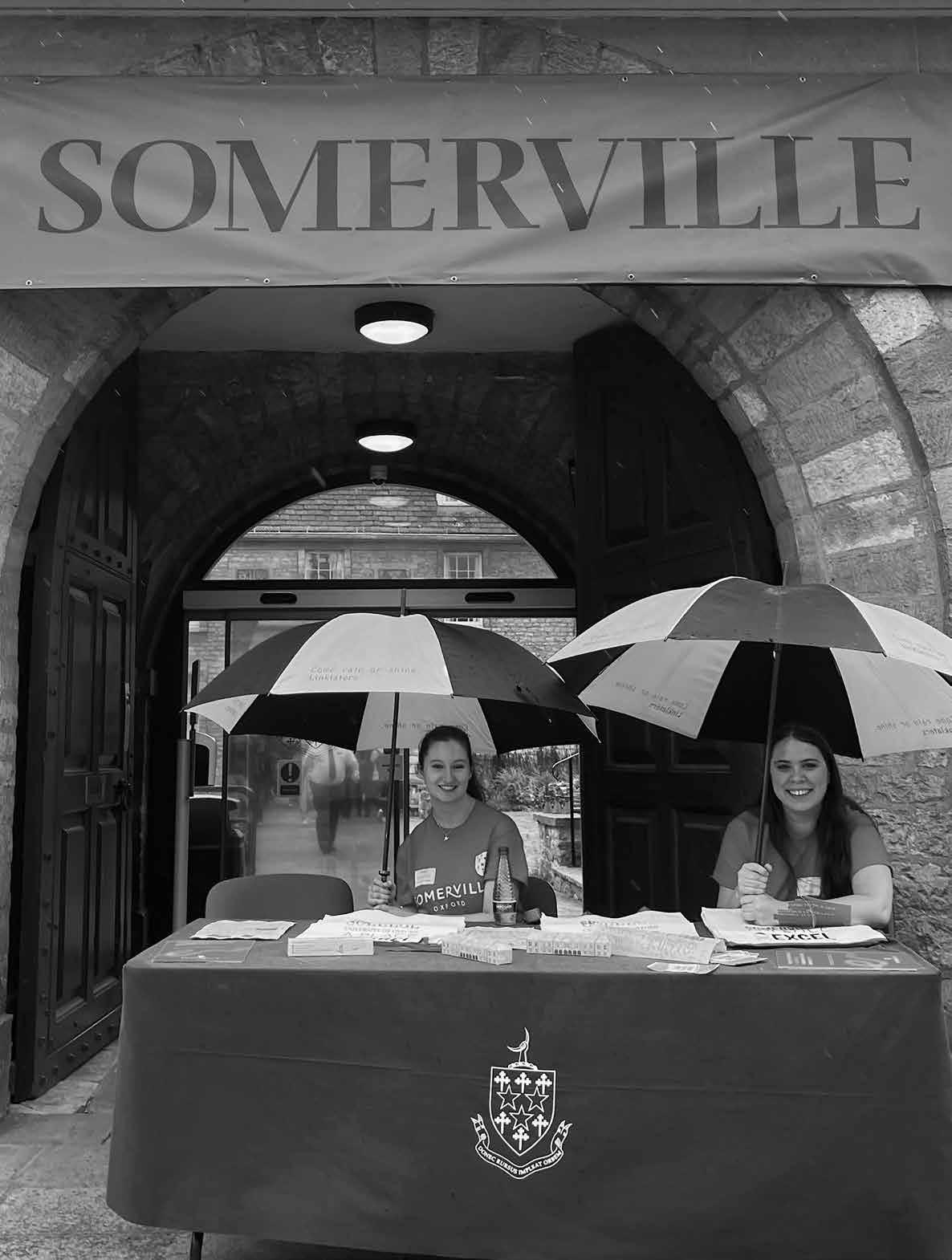
Legacies are a vital source of support for the College’s activities and a deeply meaningful way to help ensure its continued success. Here we record our thanks to all of those who have left legacies to support Somerville and we honour four of the Somervillians whose recent legacies have made a lasting and significant difference.
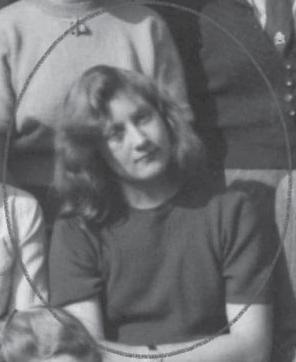
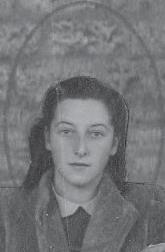
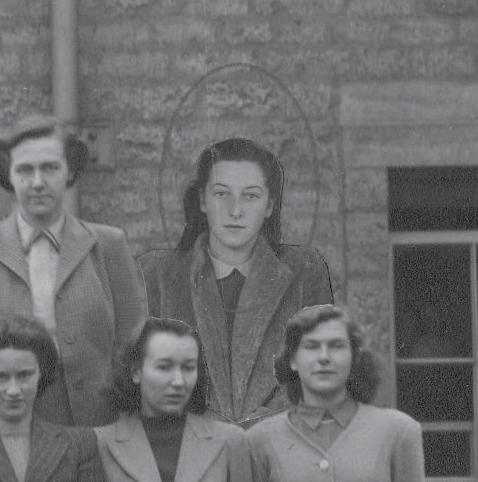
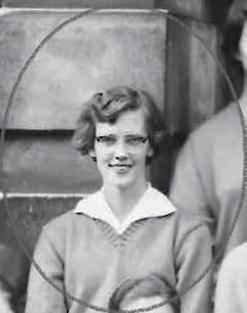
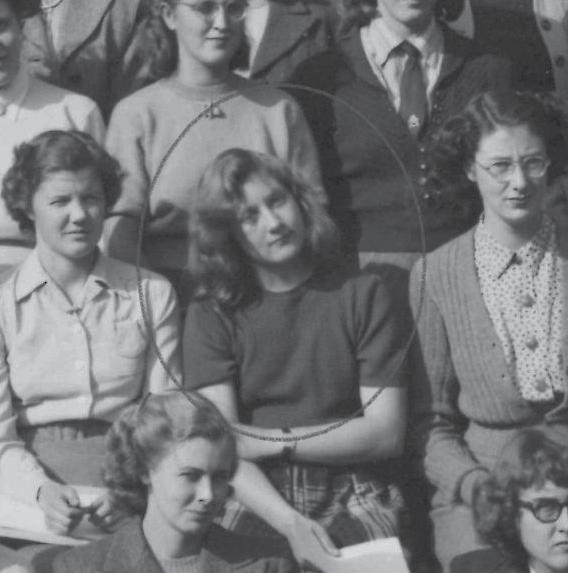
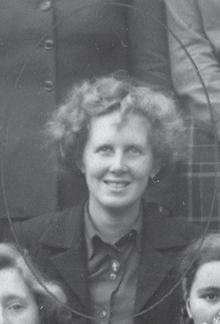
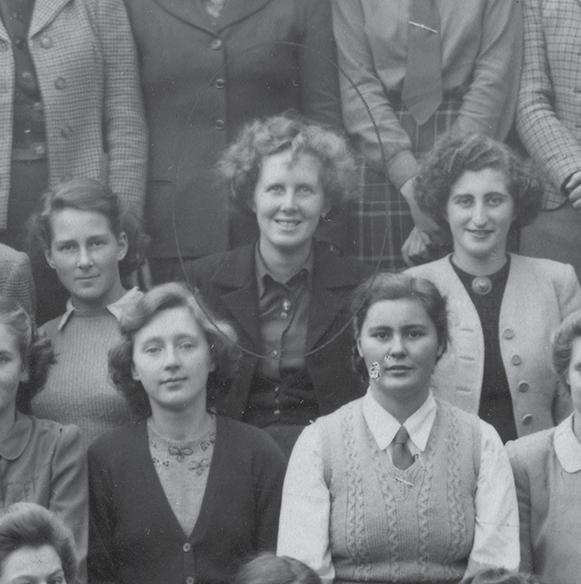
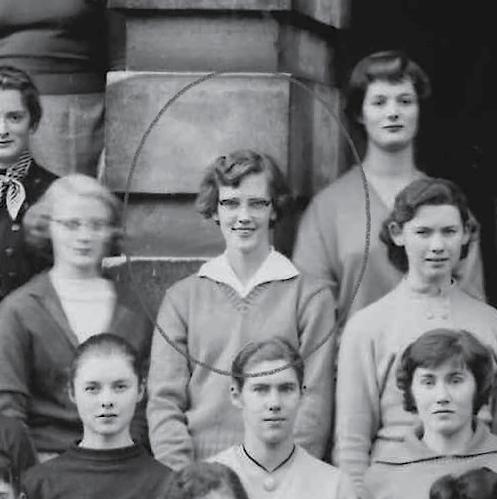 Juliet Stockwell (Butler, 1958)
Audrey Faber (Thompson, 1944)
Shirley Williams (Catlin, 1948)
Juliet Stockwell (Butler, 1958)
Audrey Faber (Thompson, 1944)
Shirley Williams (Catlin, 1948)


(events in Somerville unless otherwise stated)
2023
FEBRUARY
4 Supporters’ Lunch
MARCH
4 Medics Day
11 Parents’ Lunch
18 Spring Meeting
JUNE
DECEMBER
8 Alumni Carol Concert in Oxford
9 Alumni Carol Concert in the Temple Church, London
10 Commemoration Service
SEPTEMBER
16-17 Gaudy 1992-1999
23 Alumni Formal
22-24 Meeting Minds
We hope to organise several regional events during 2022-23. If you might like to help organise an event in your area, or have any suggestions for venues, please contact us: elizabeth.cooke@some.ox.ac.uk or lisa.gygax@some.ox.ac.uk
Woodstock Road, Oxford OX2 6HD
T: +44 (0) 1865 270600
www.some.ox.ac.uk
Exempt charity number 1139440